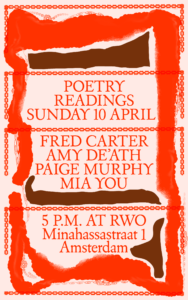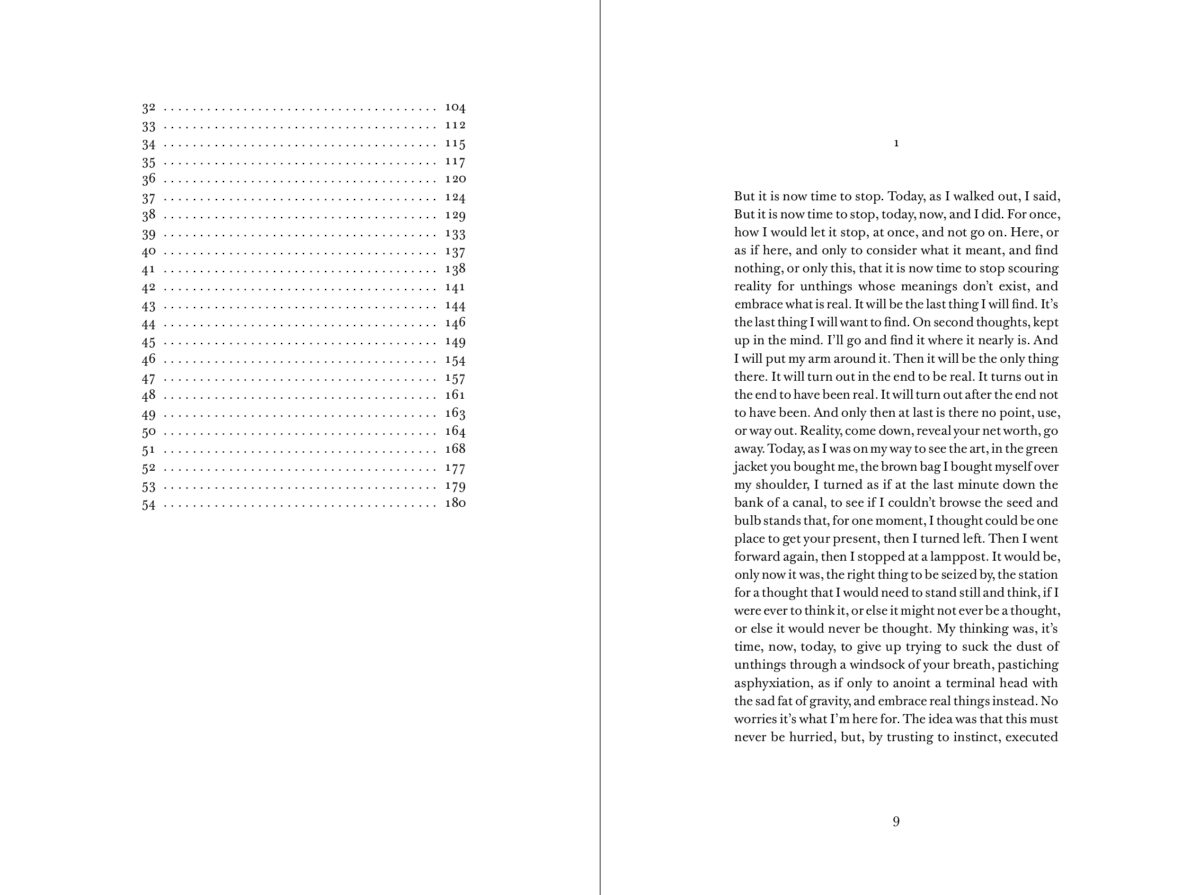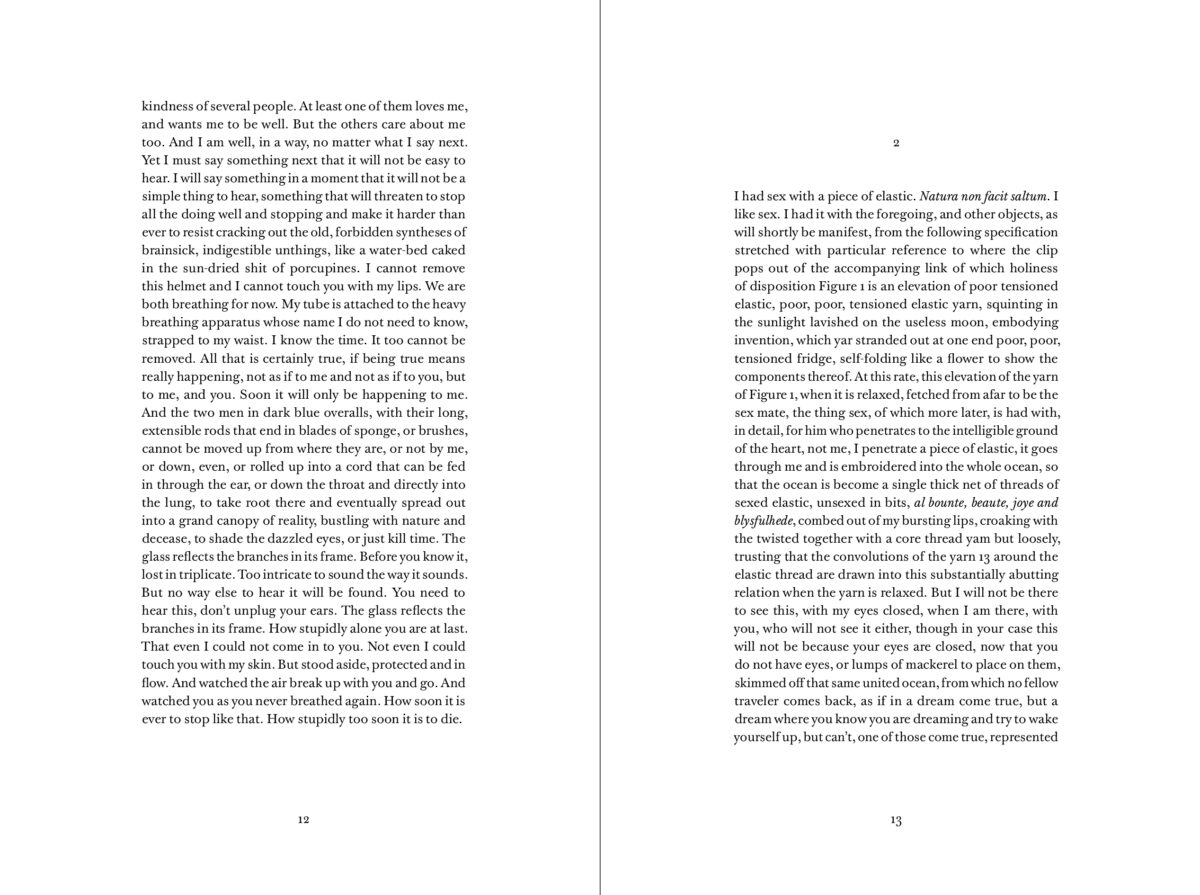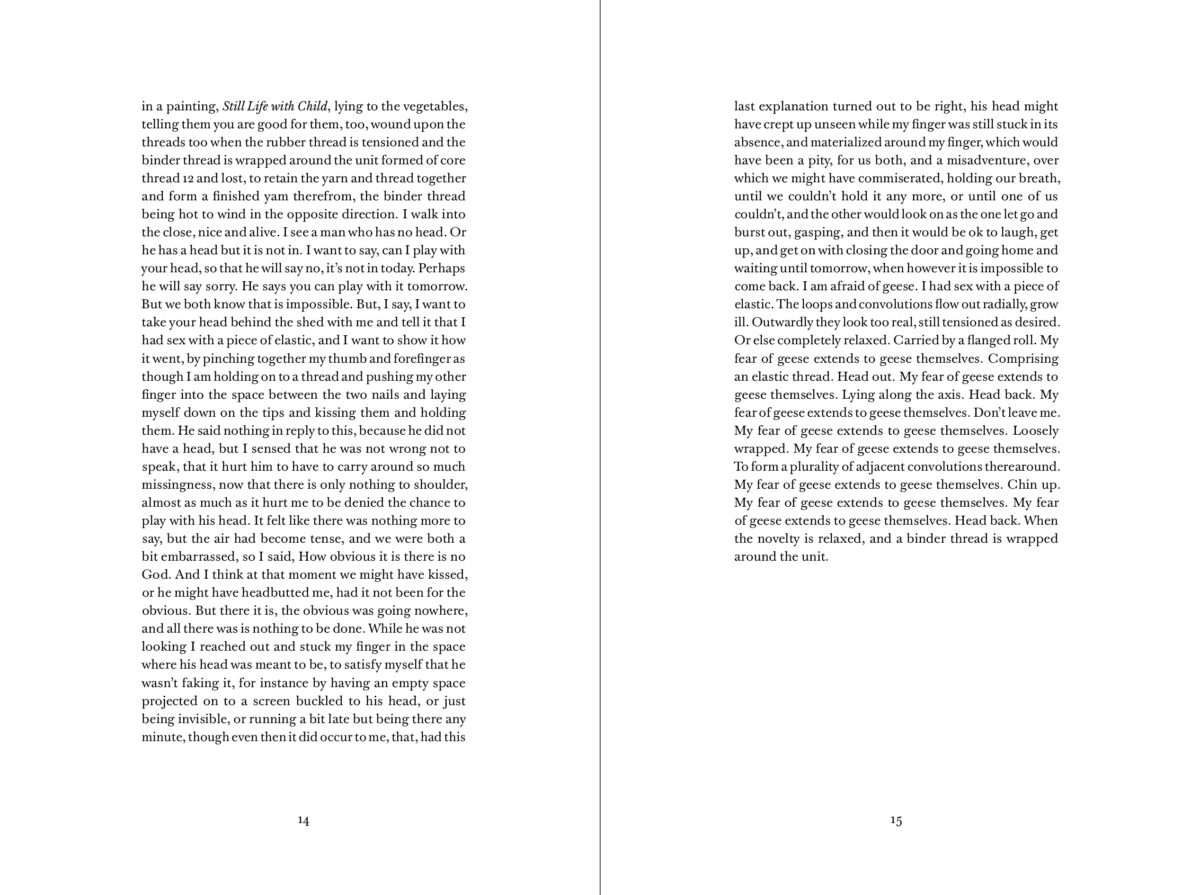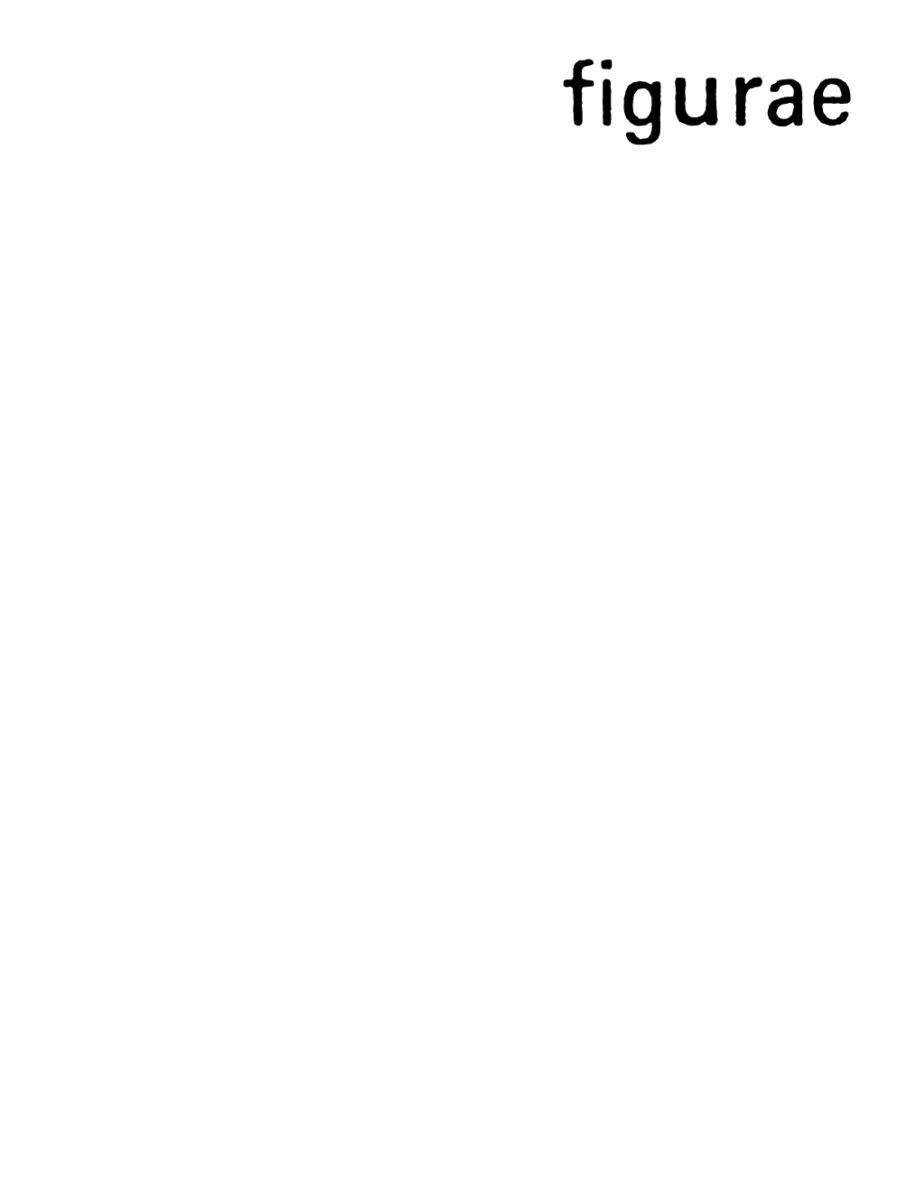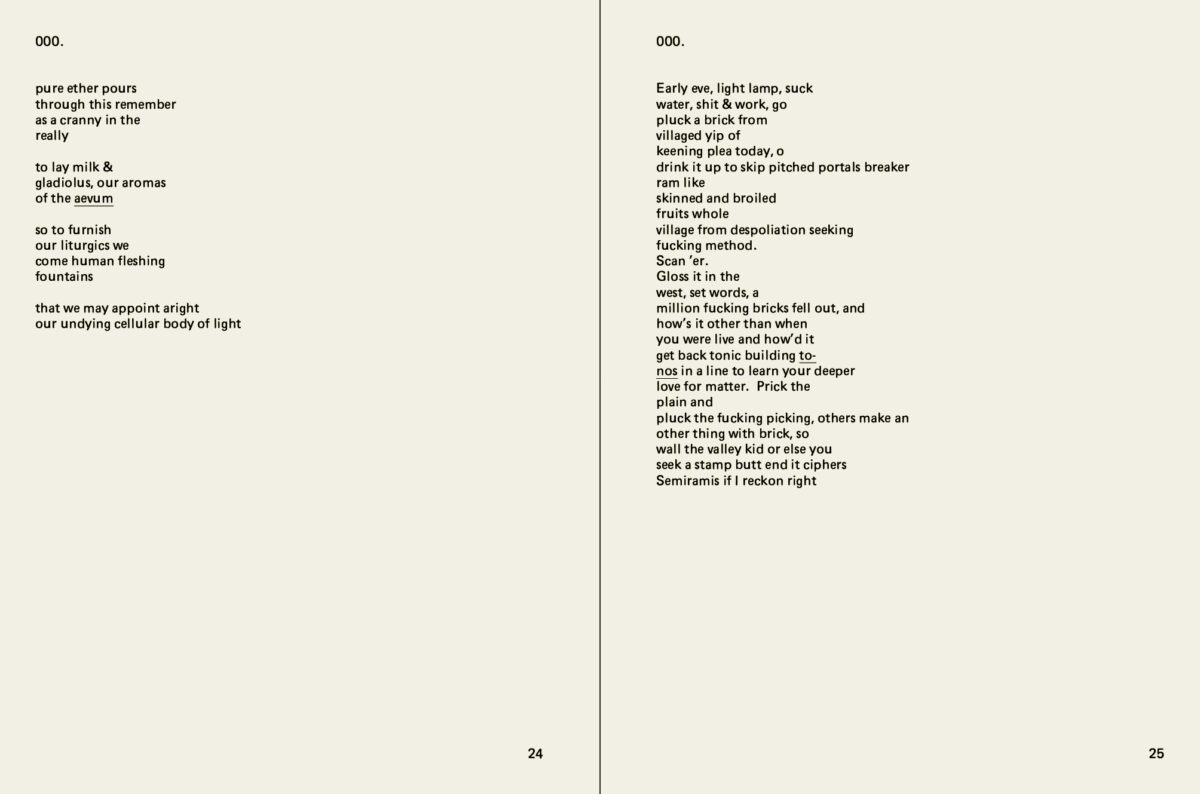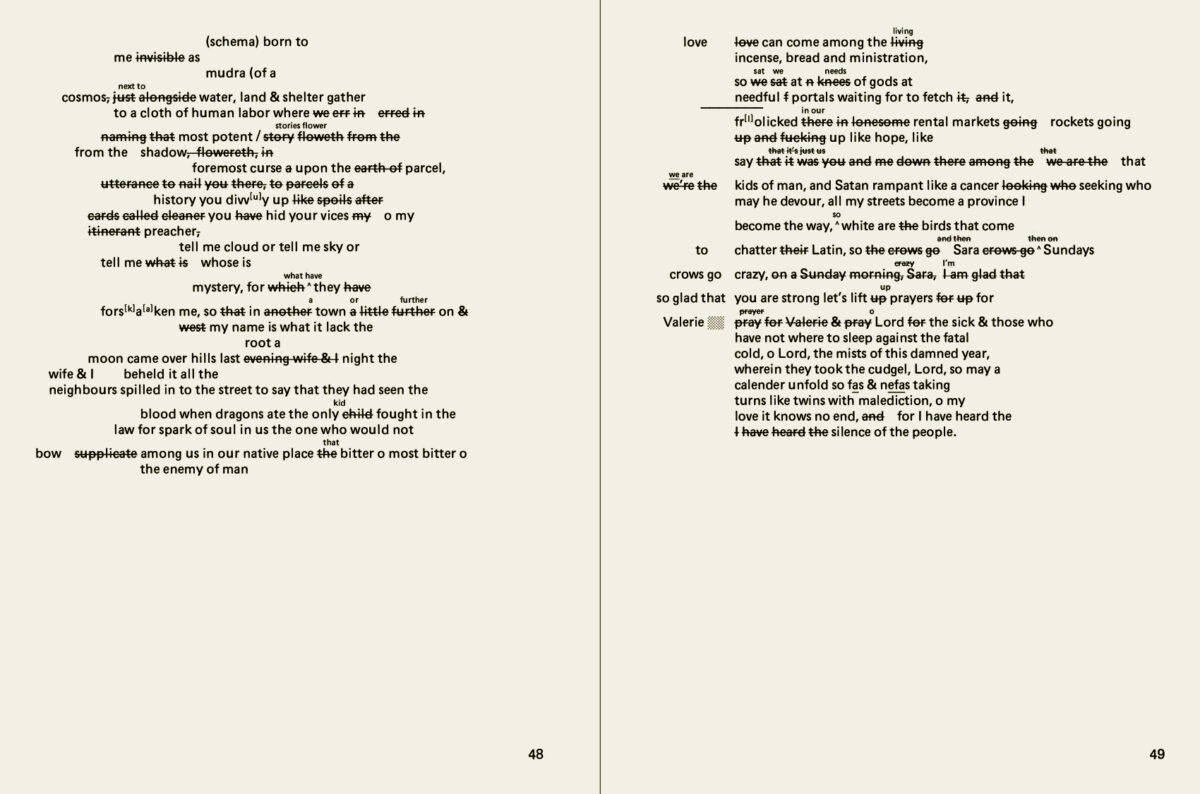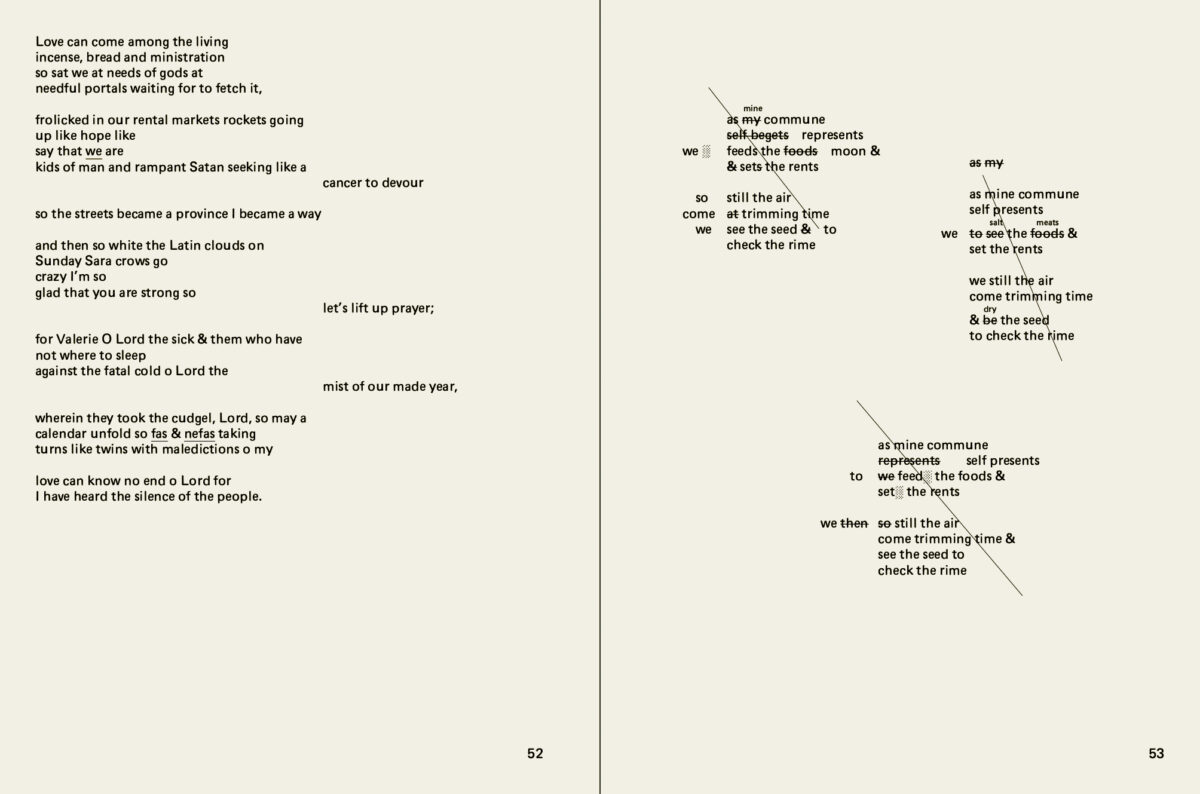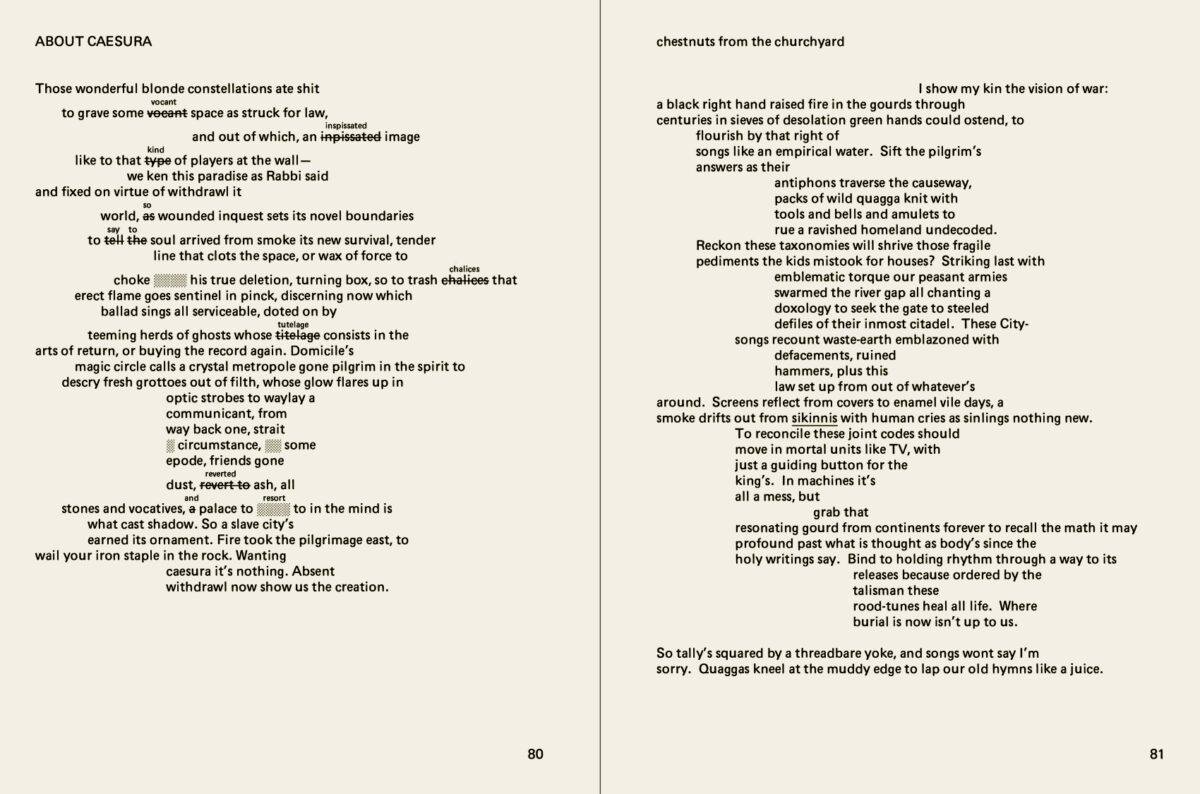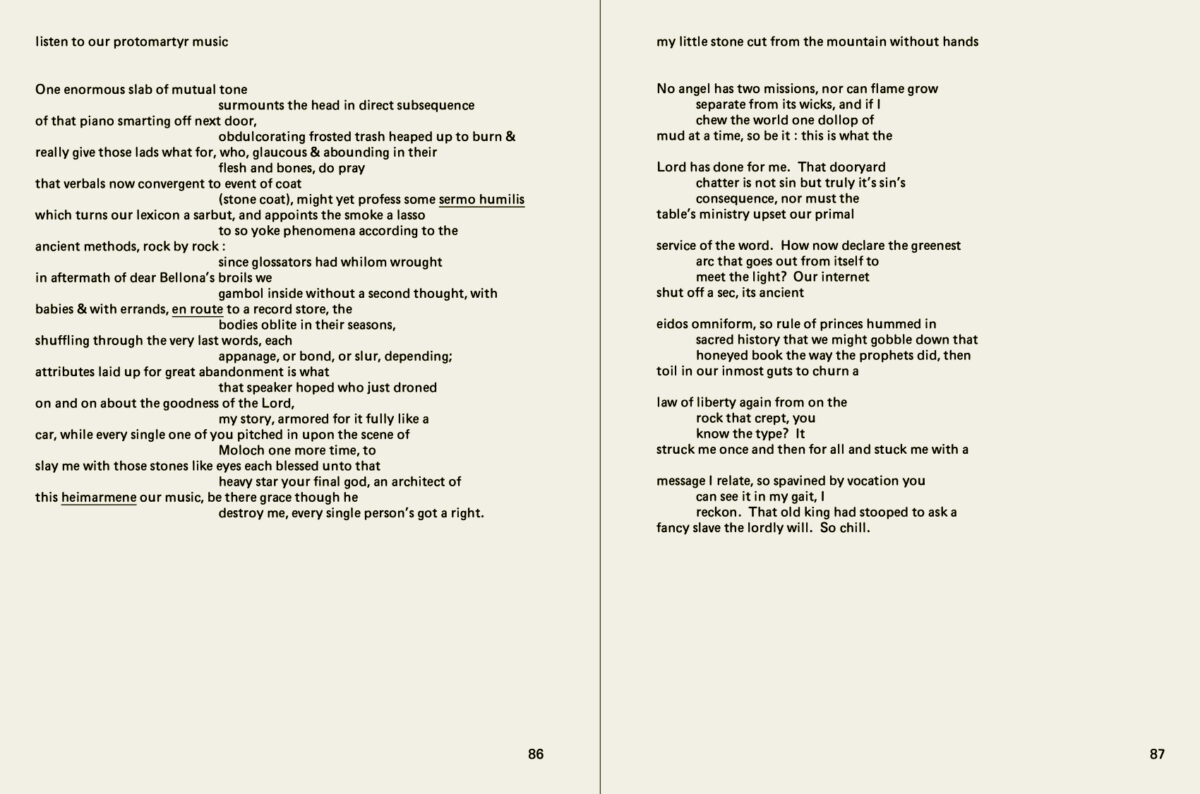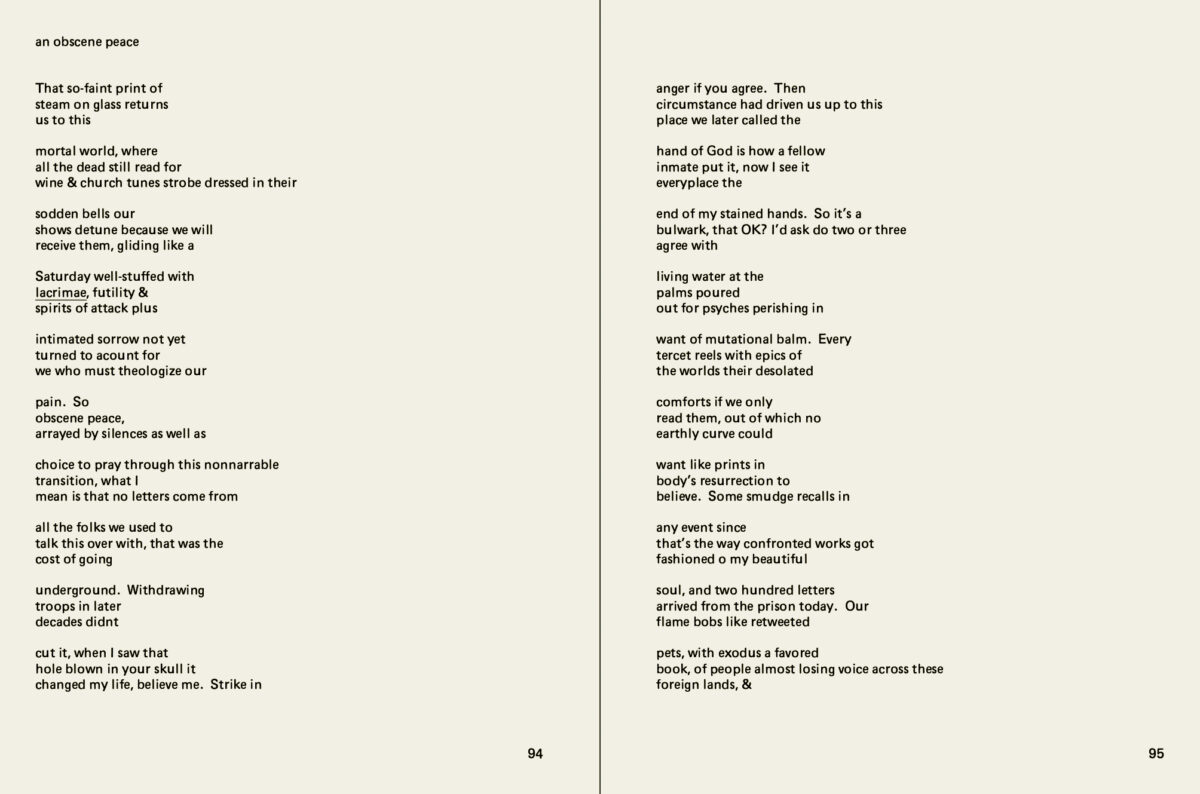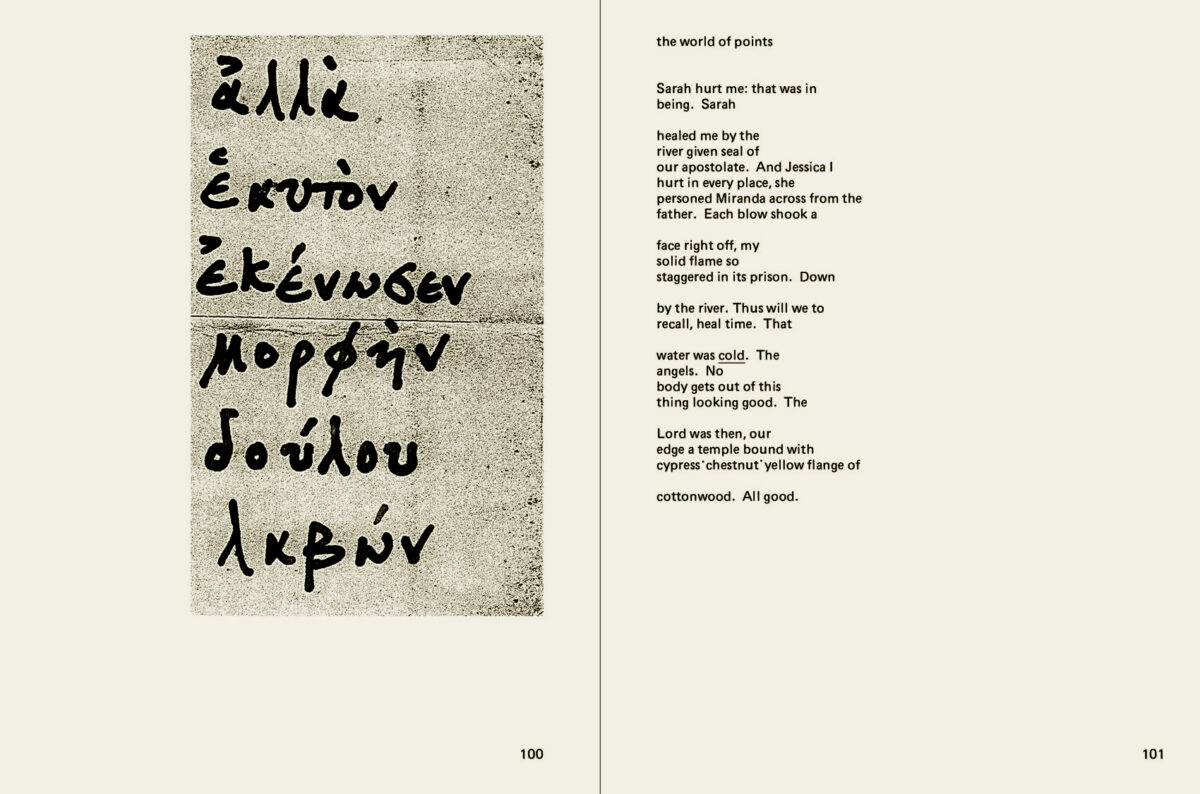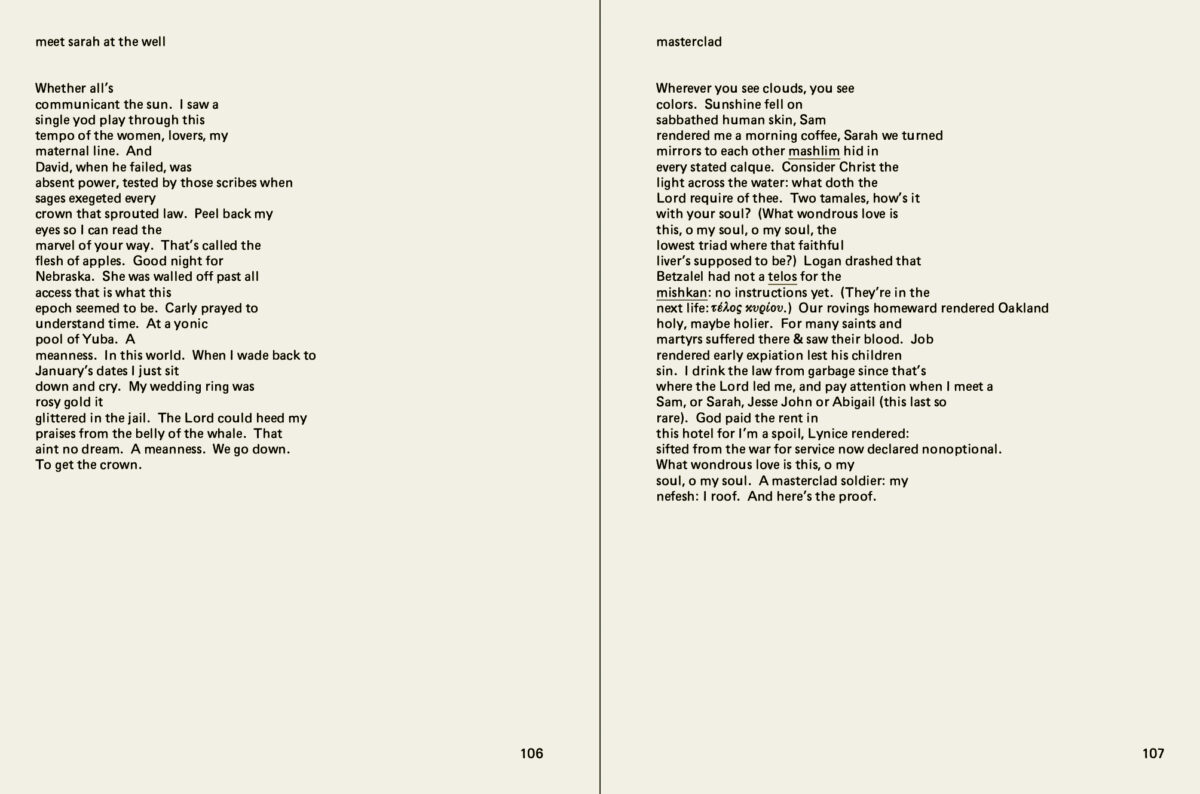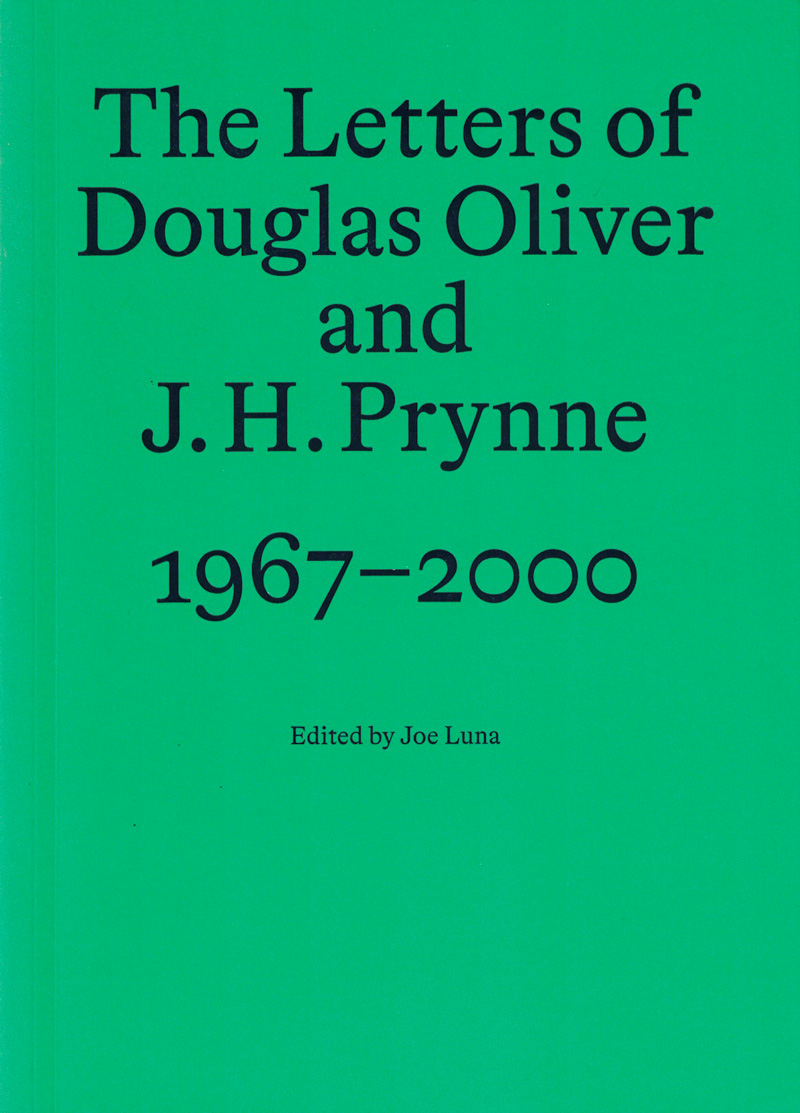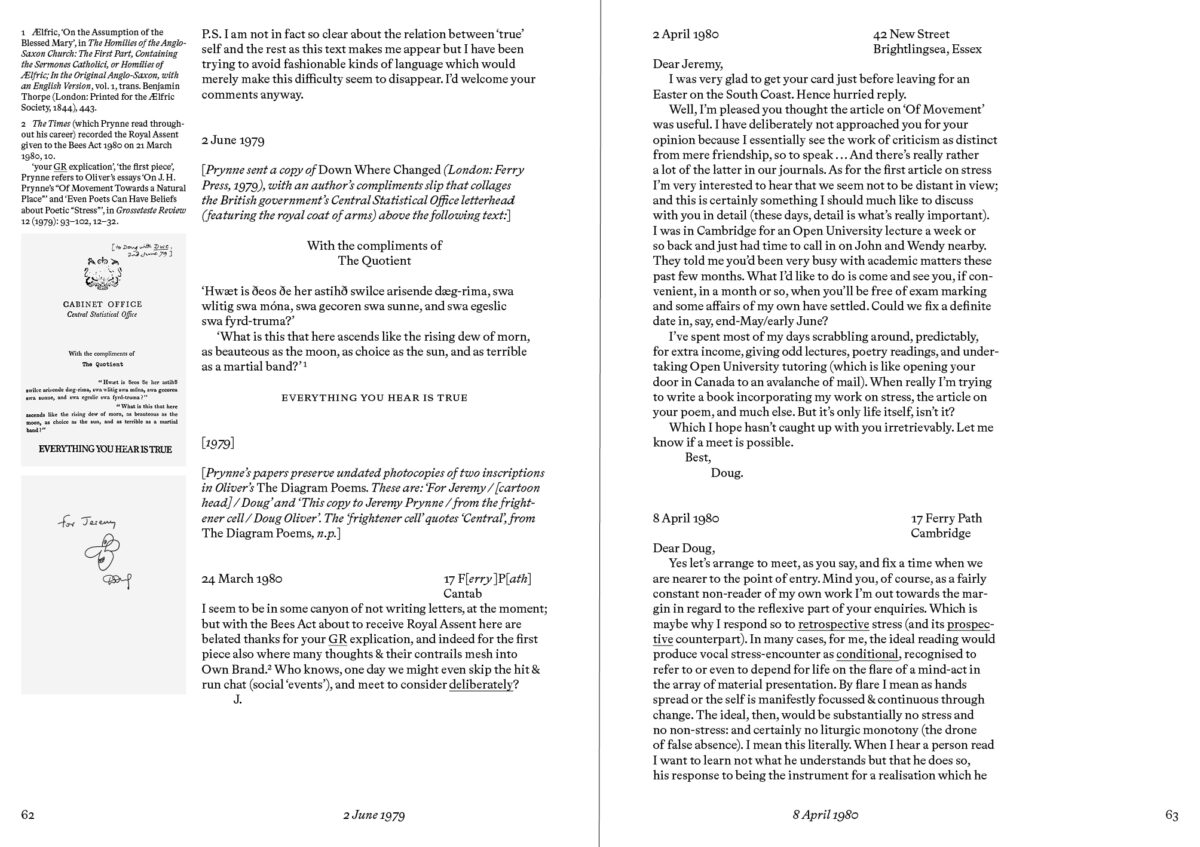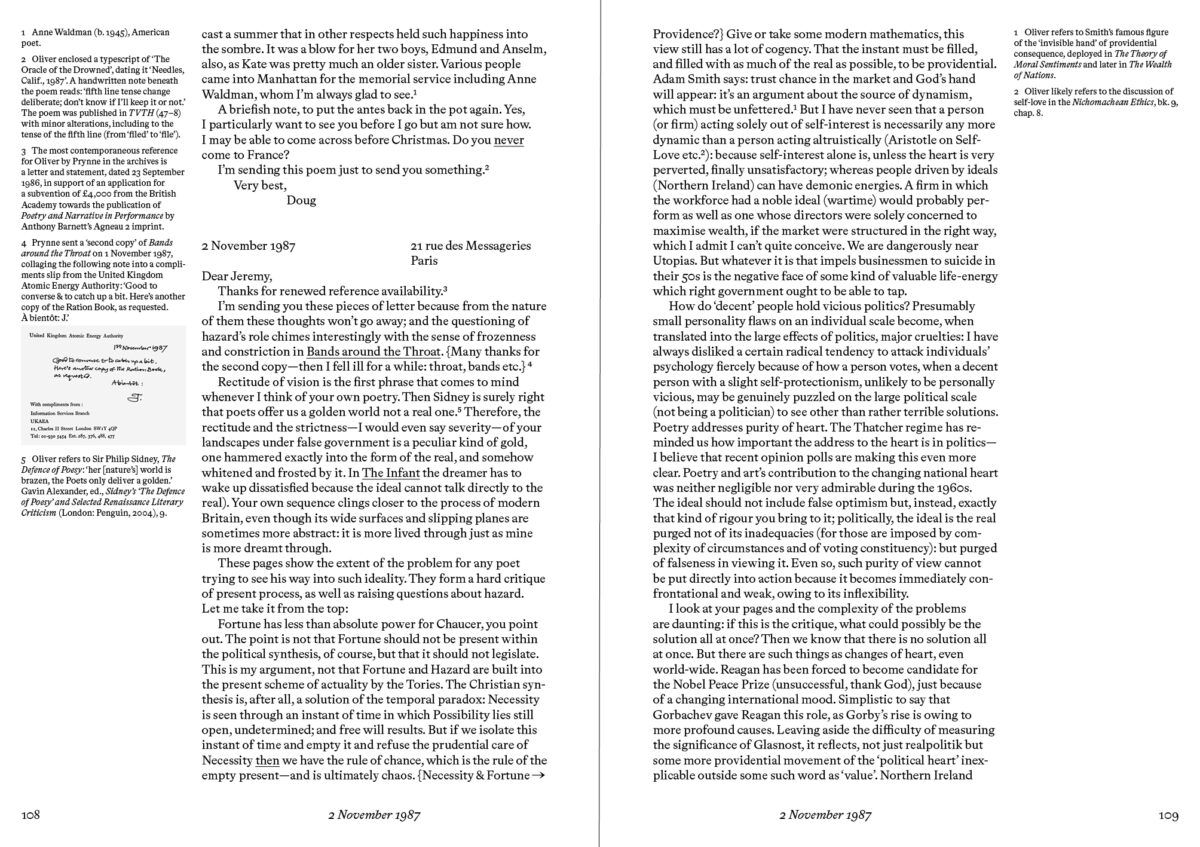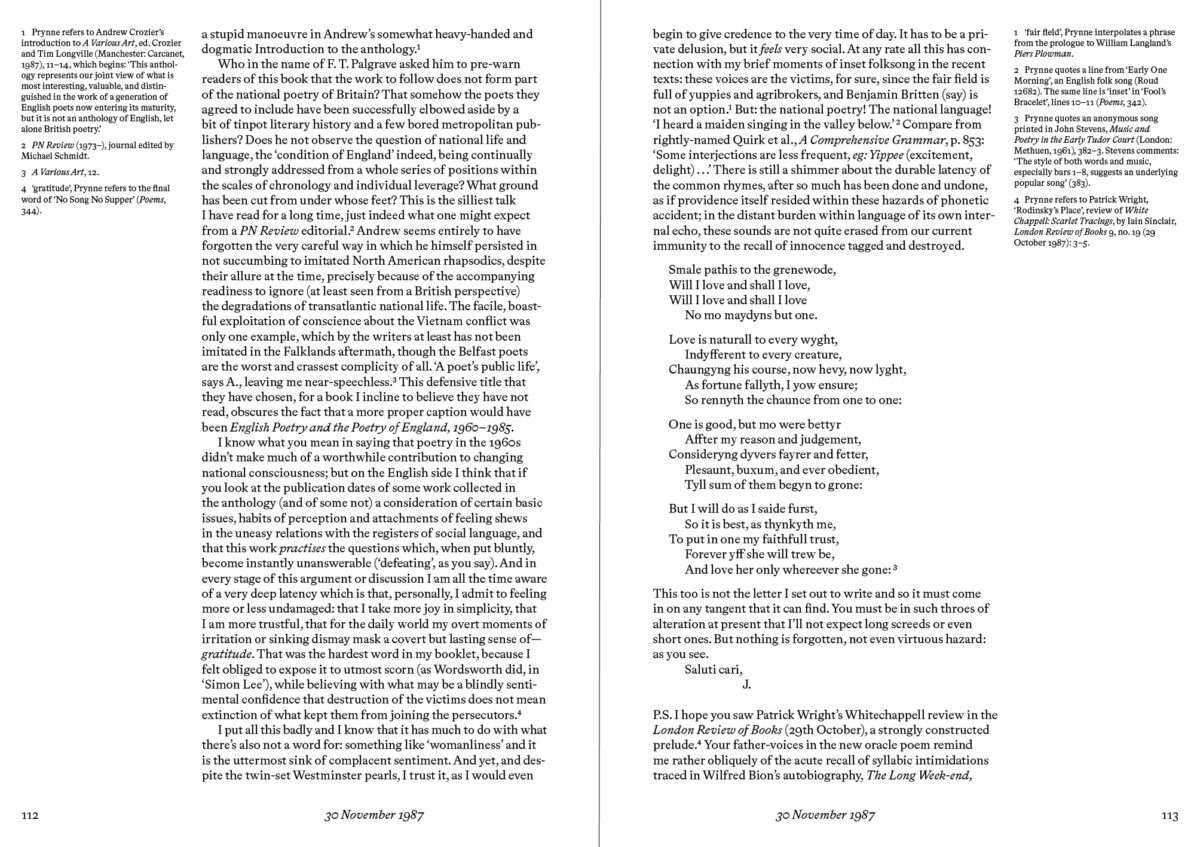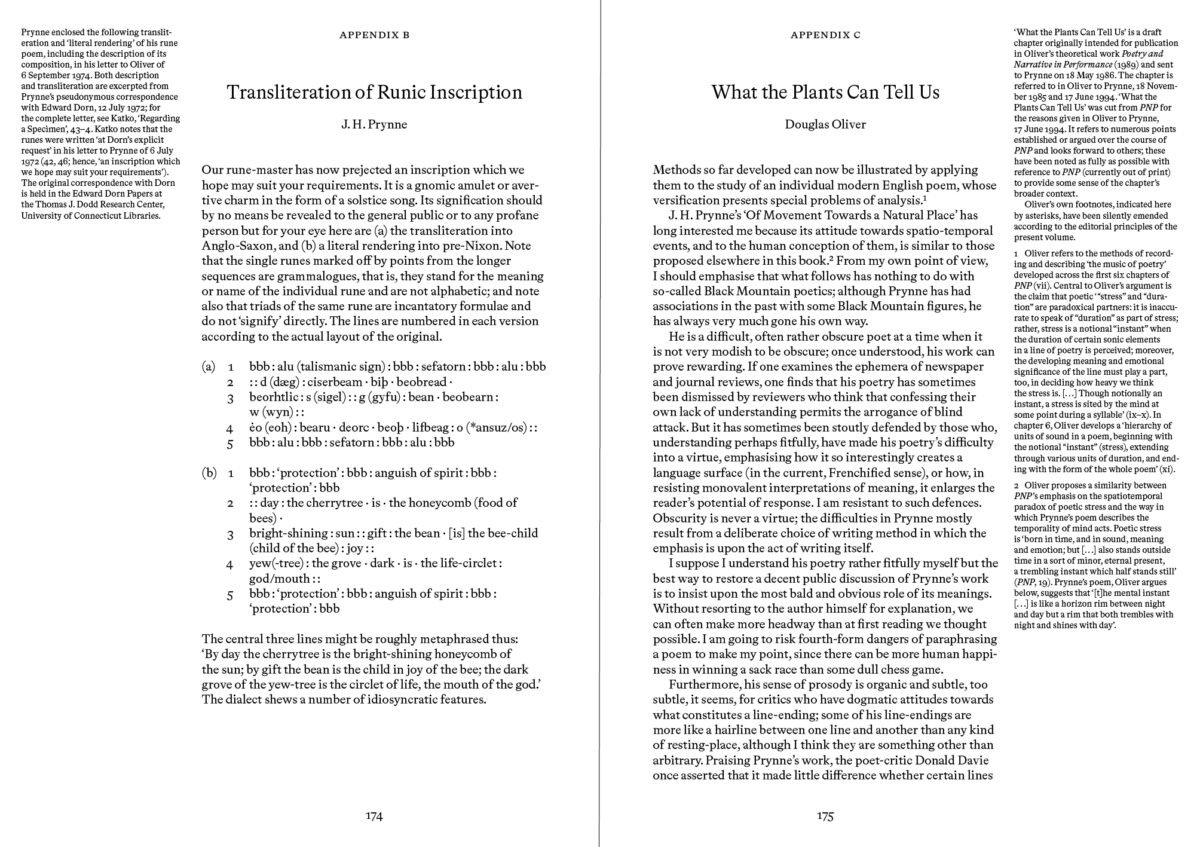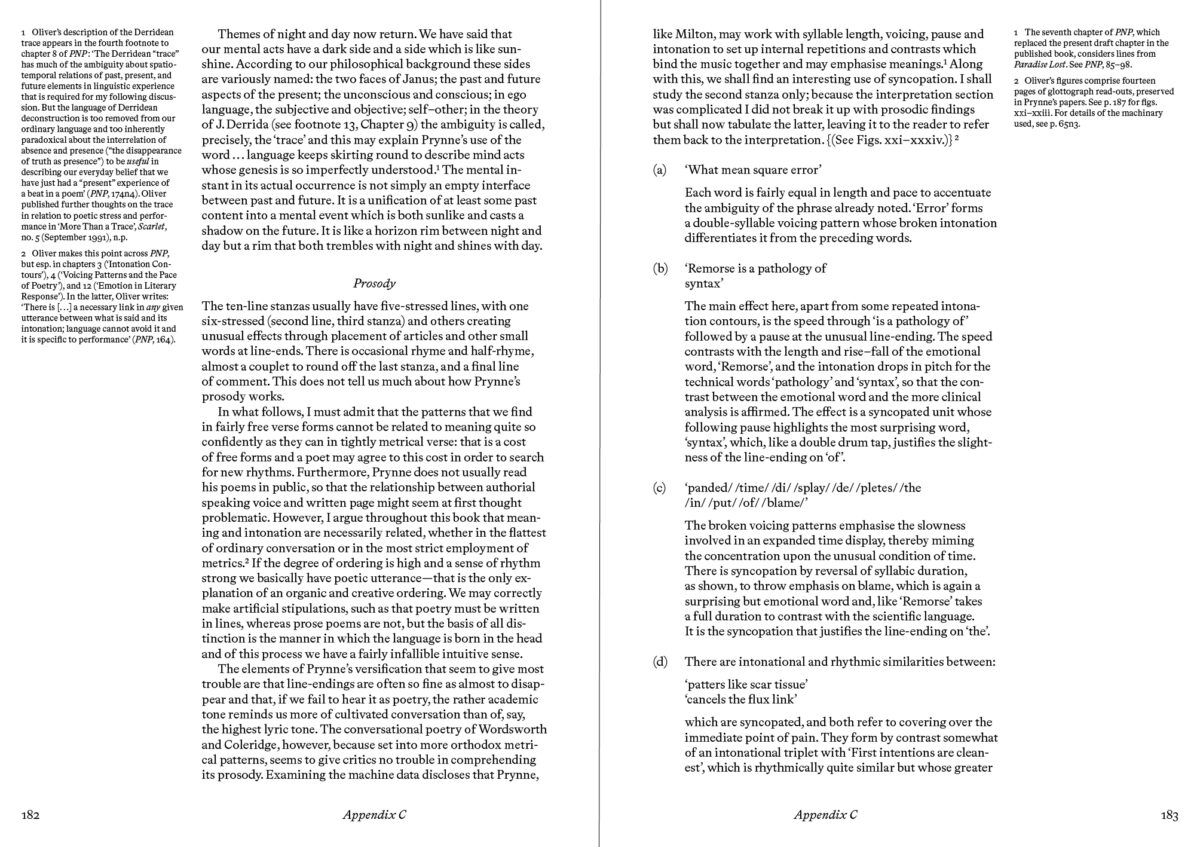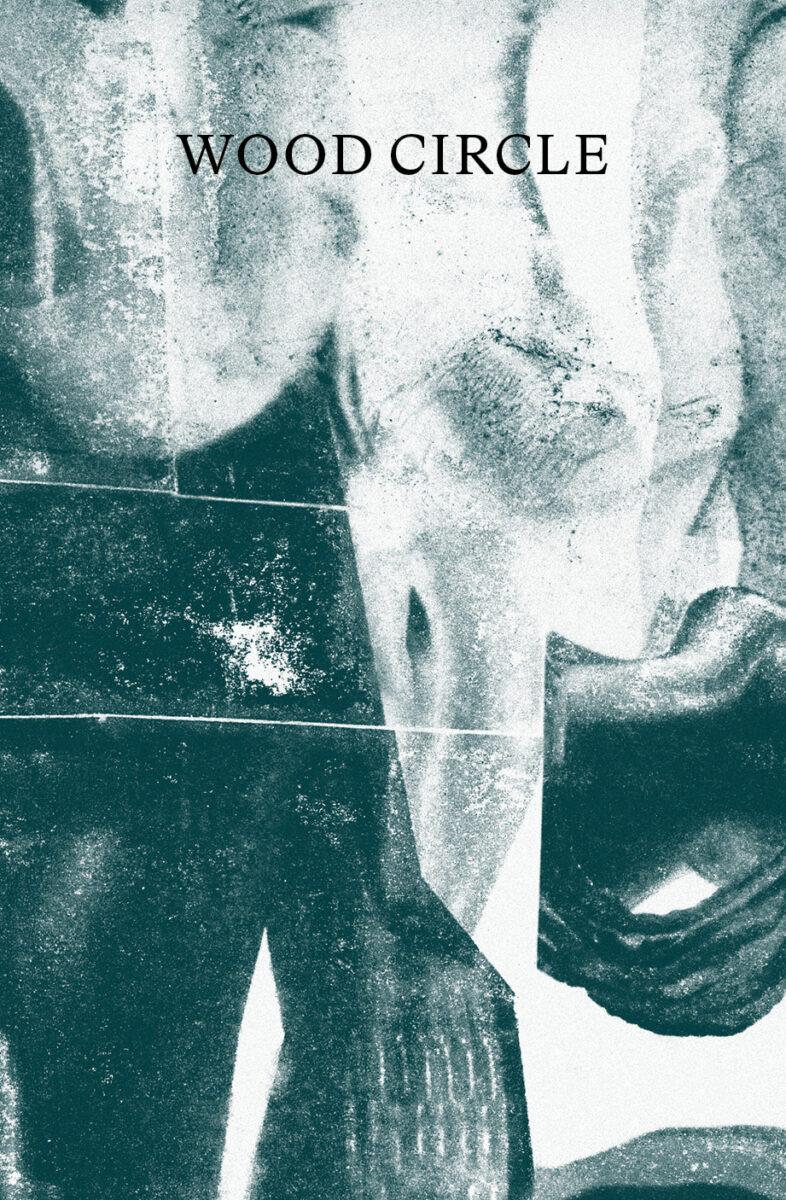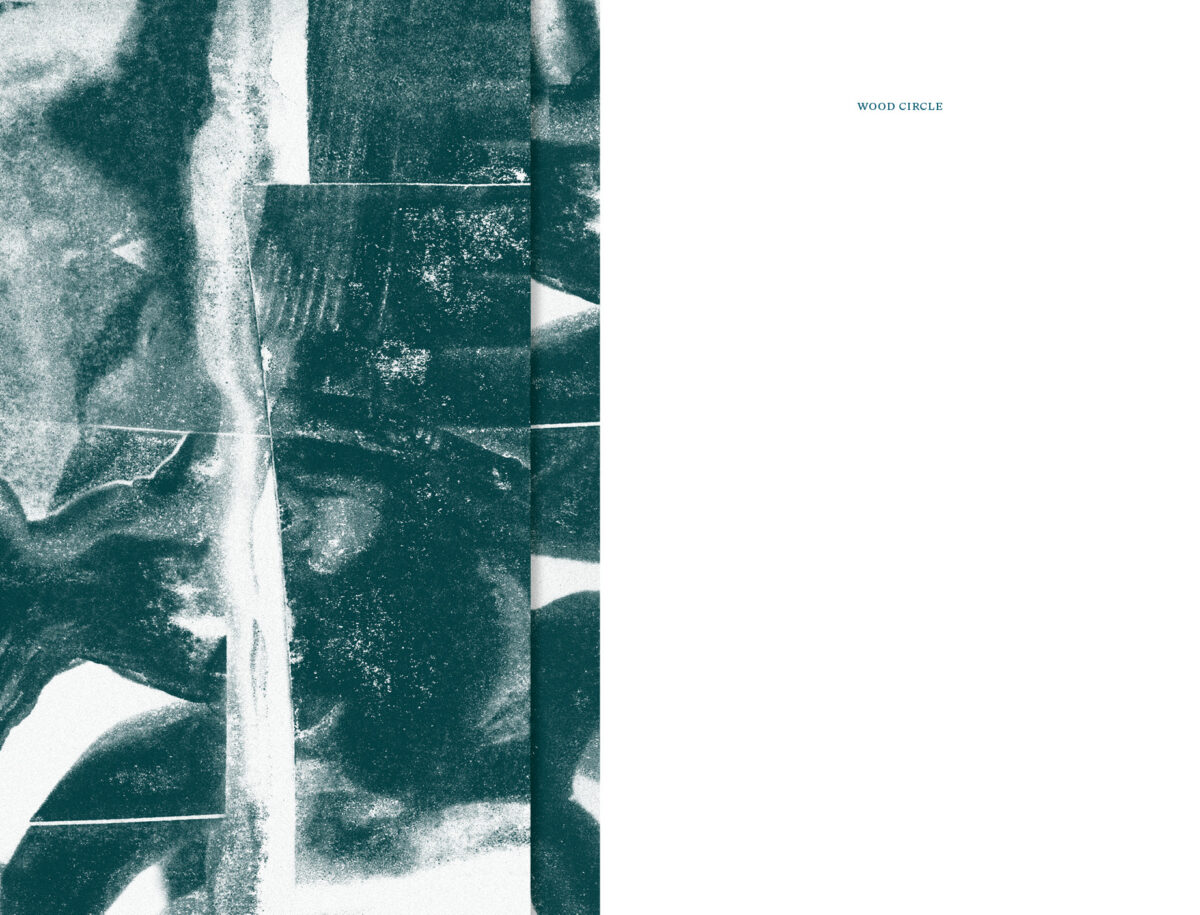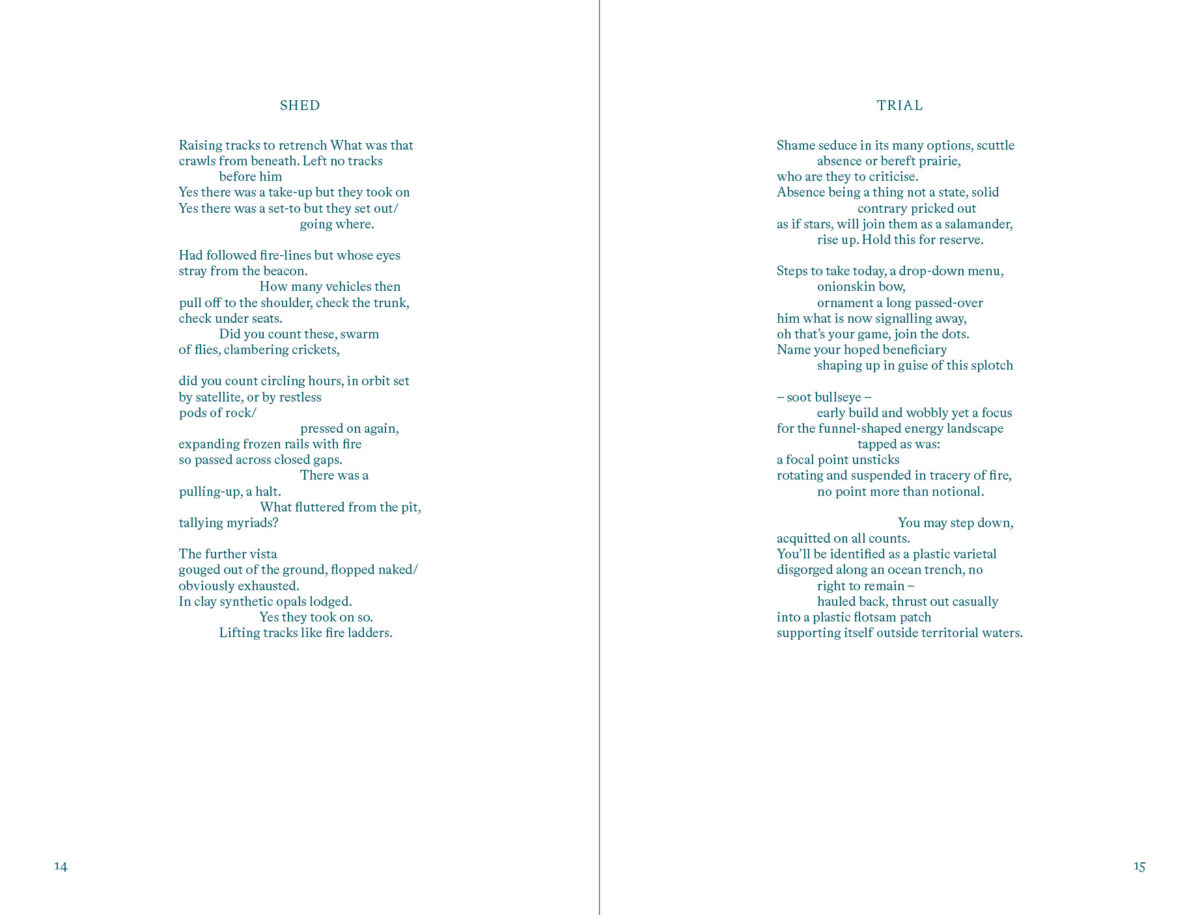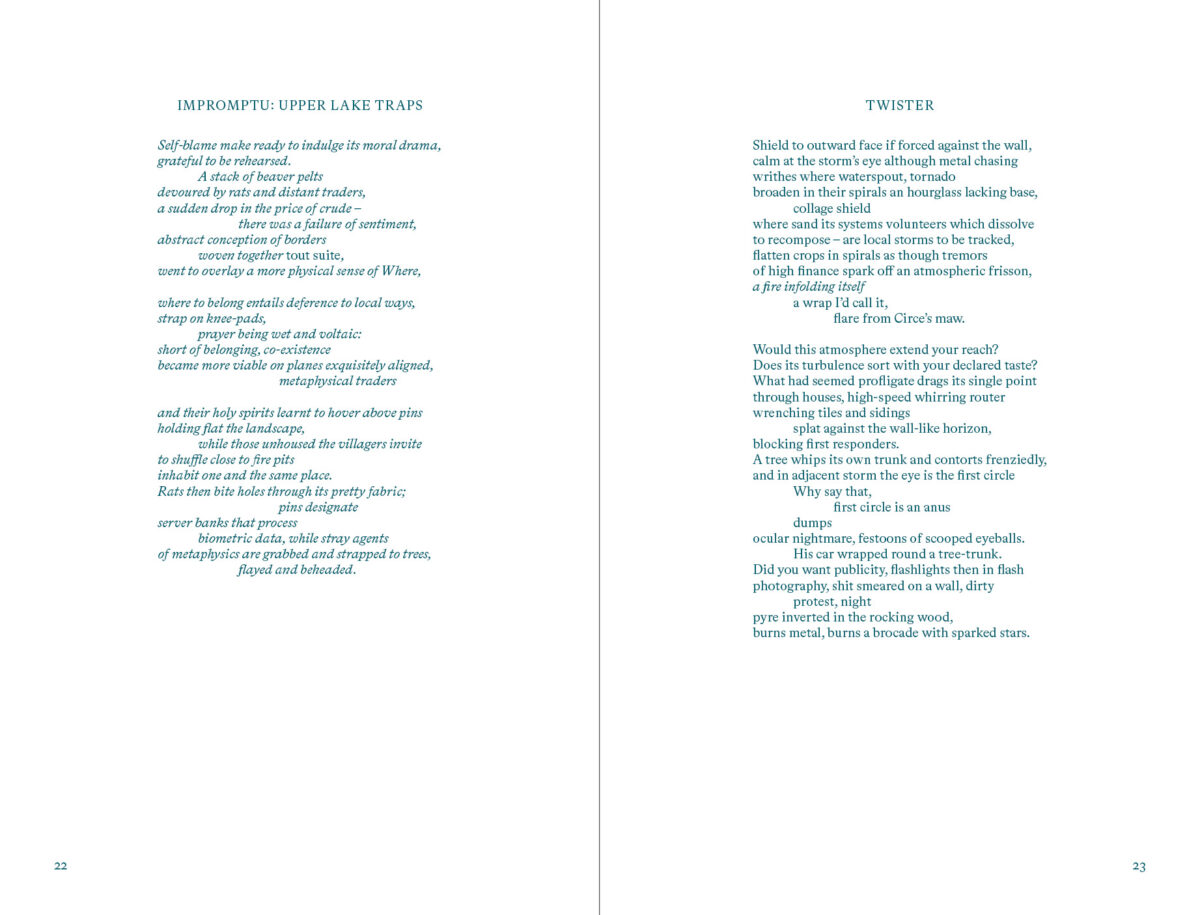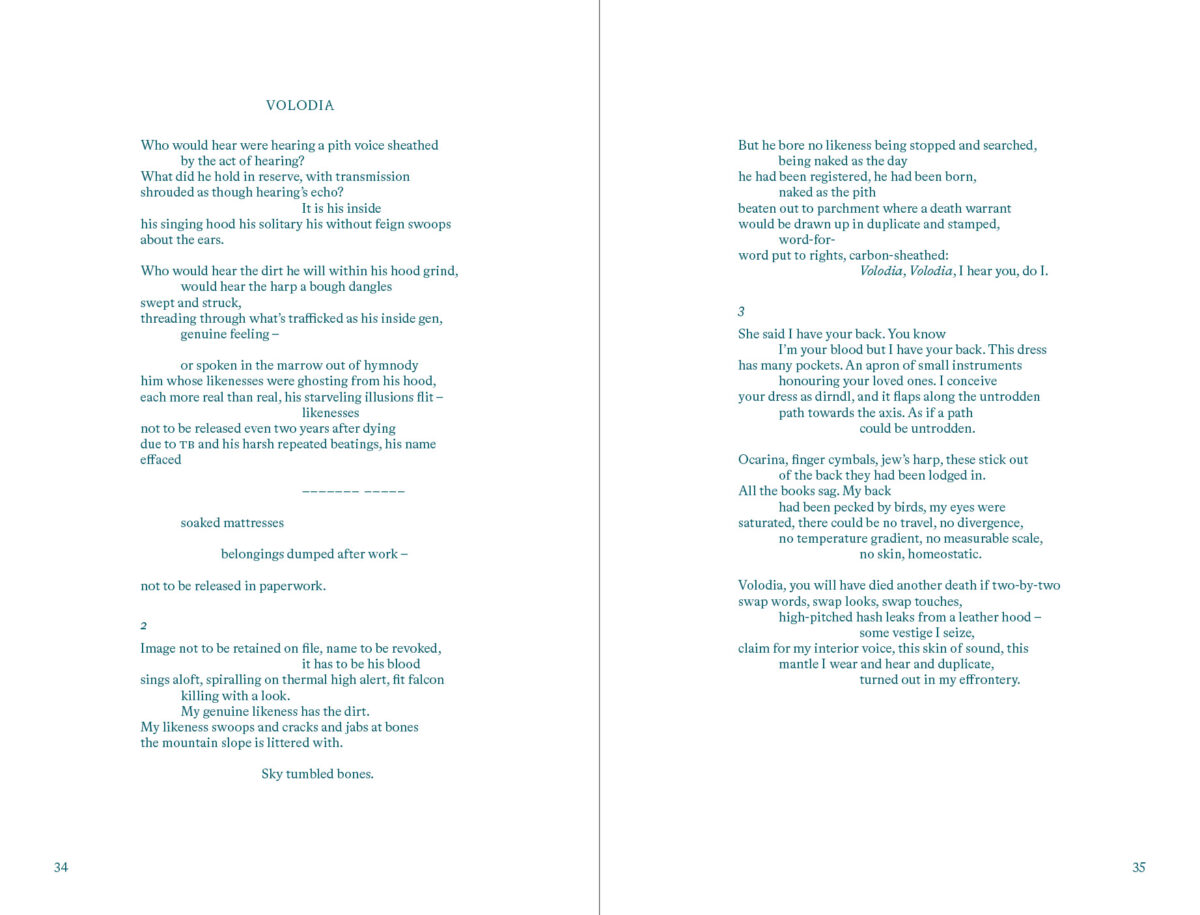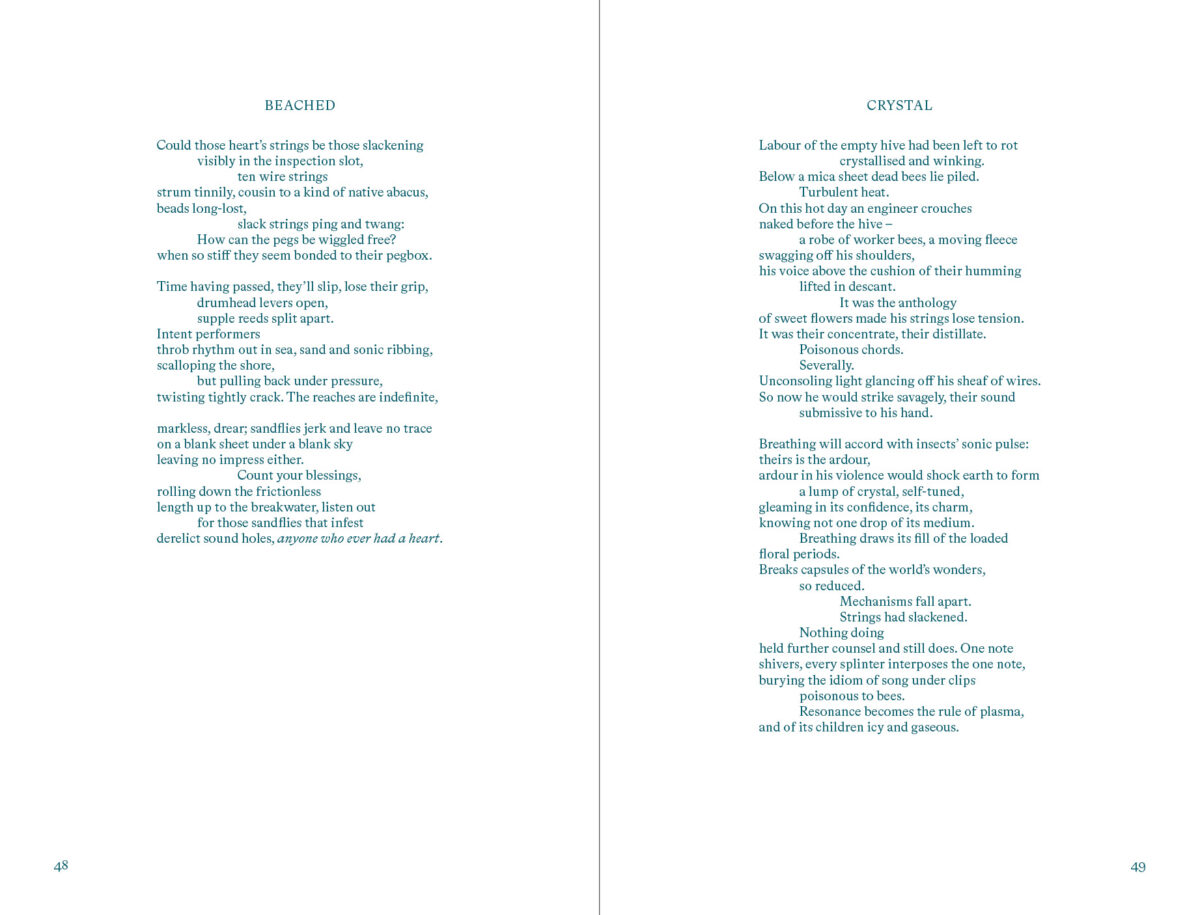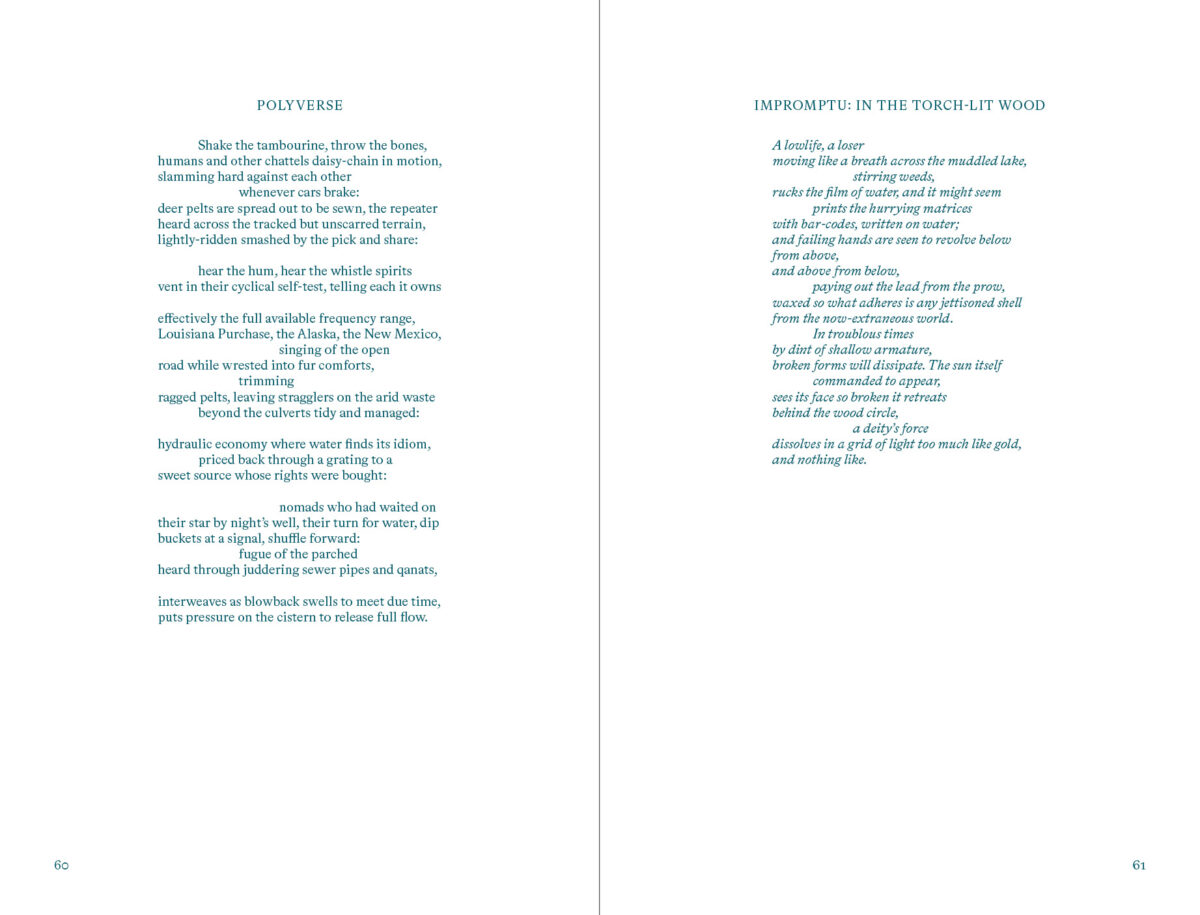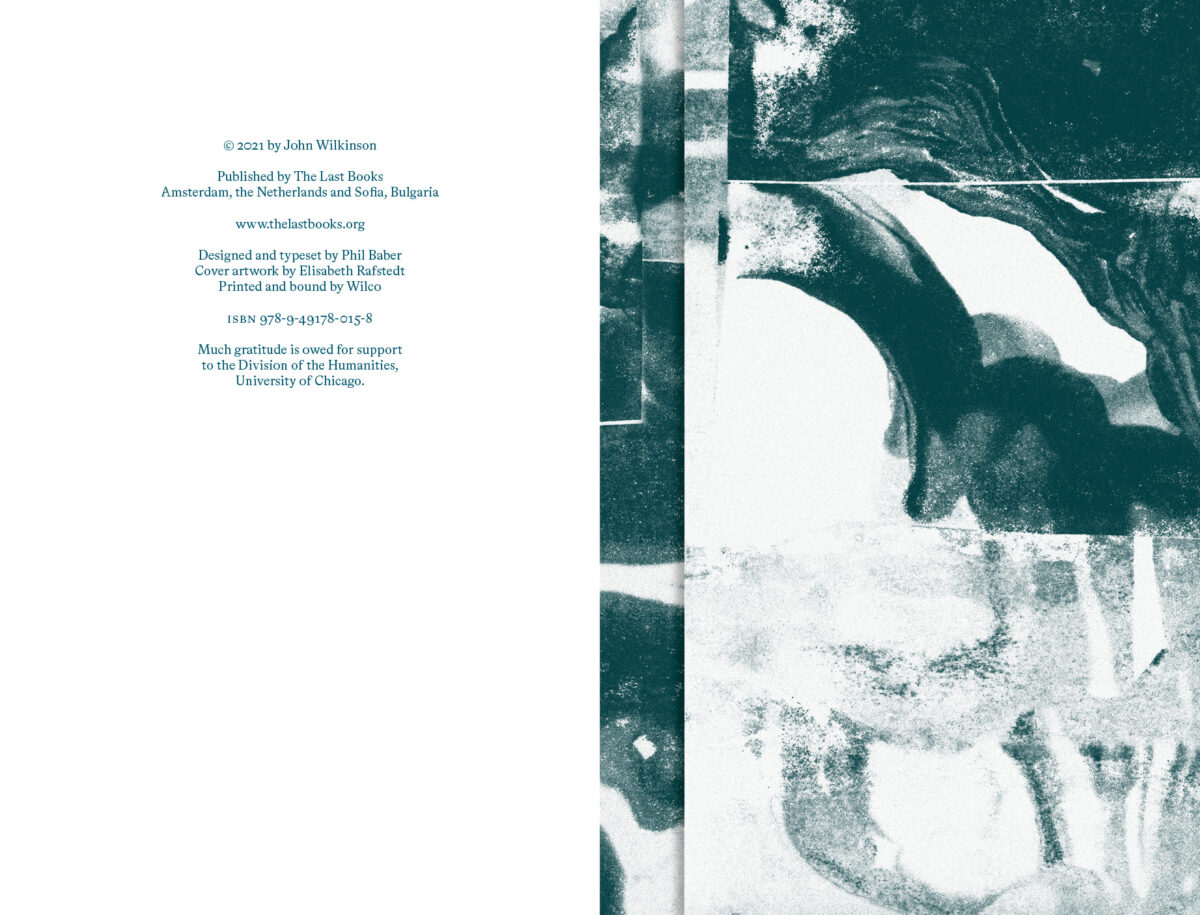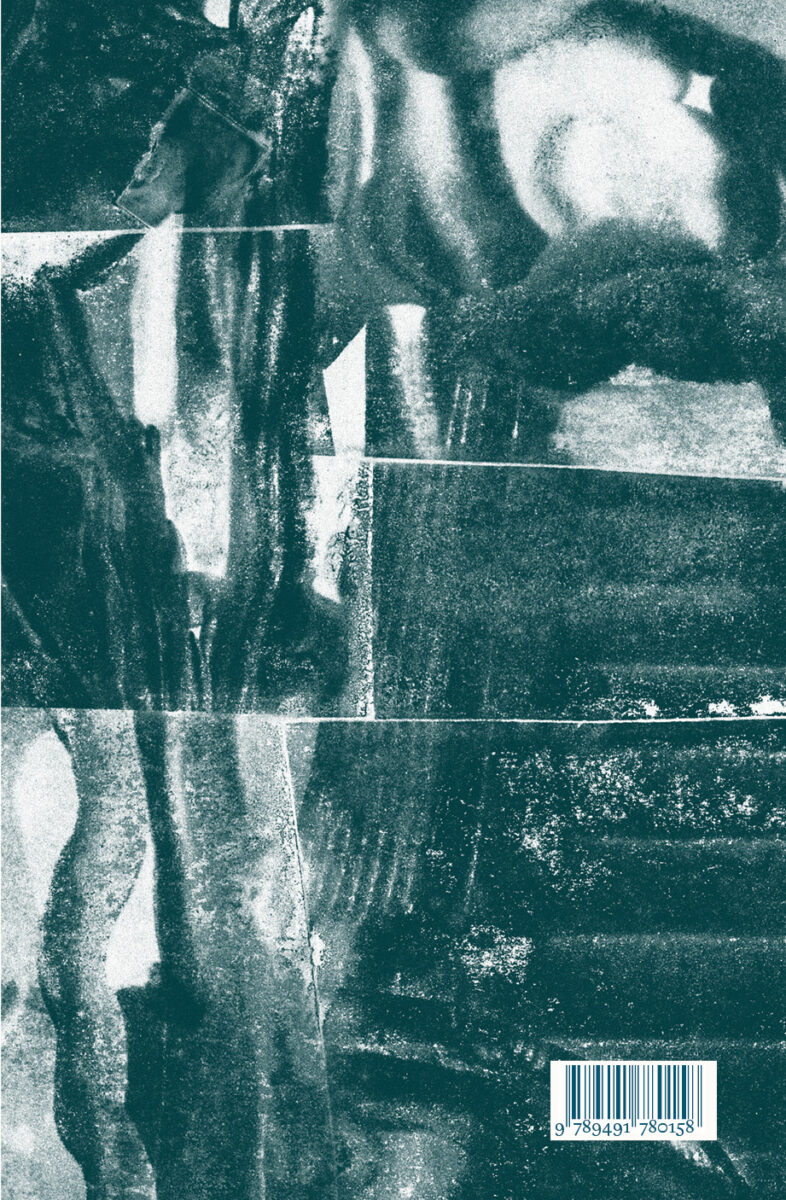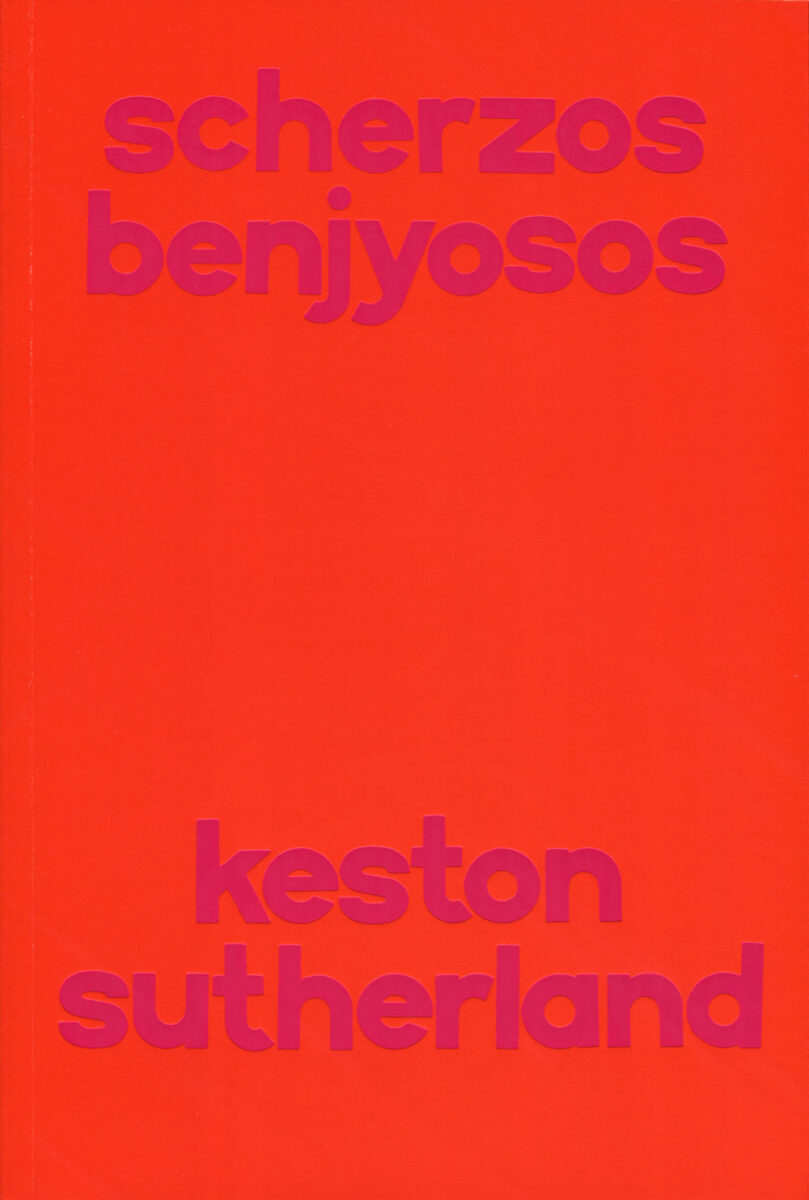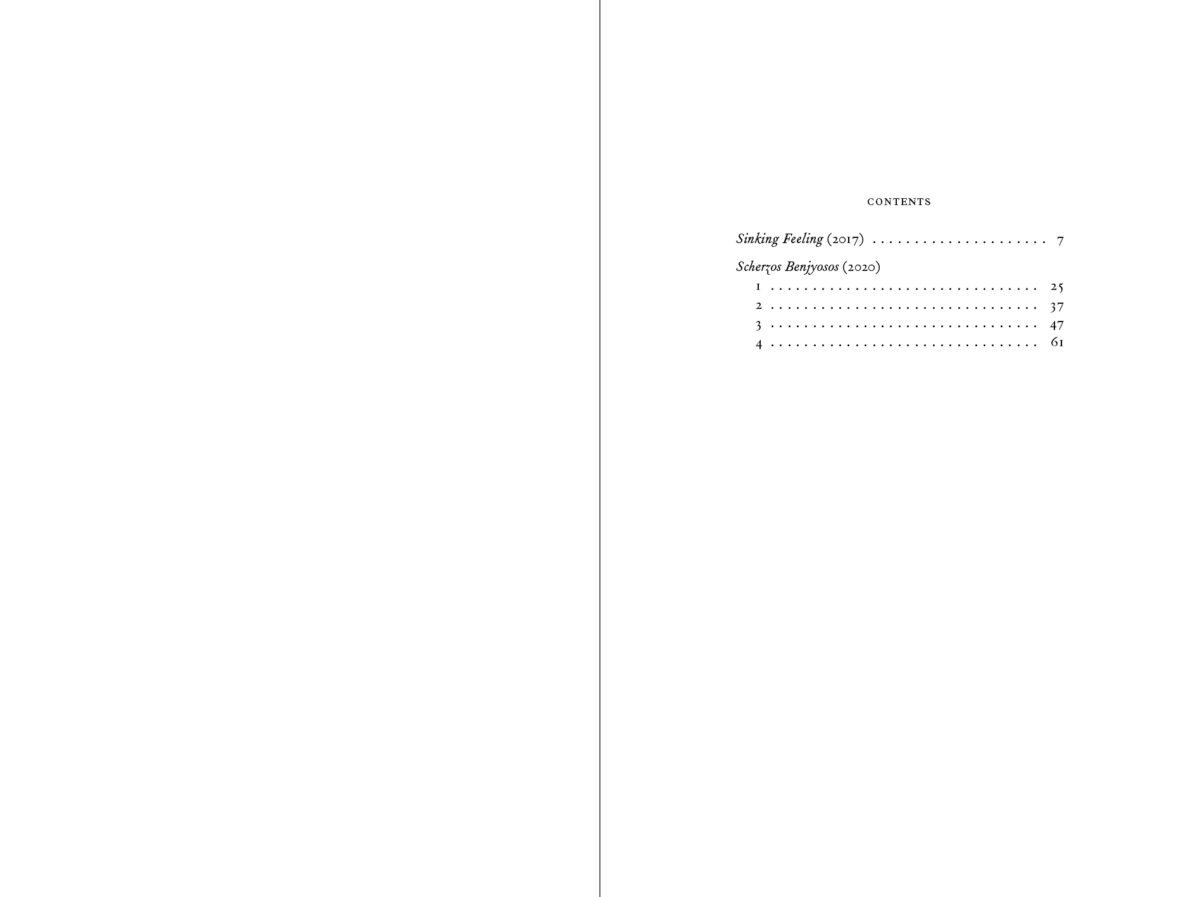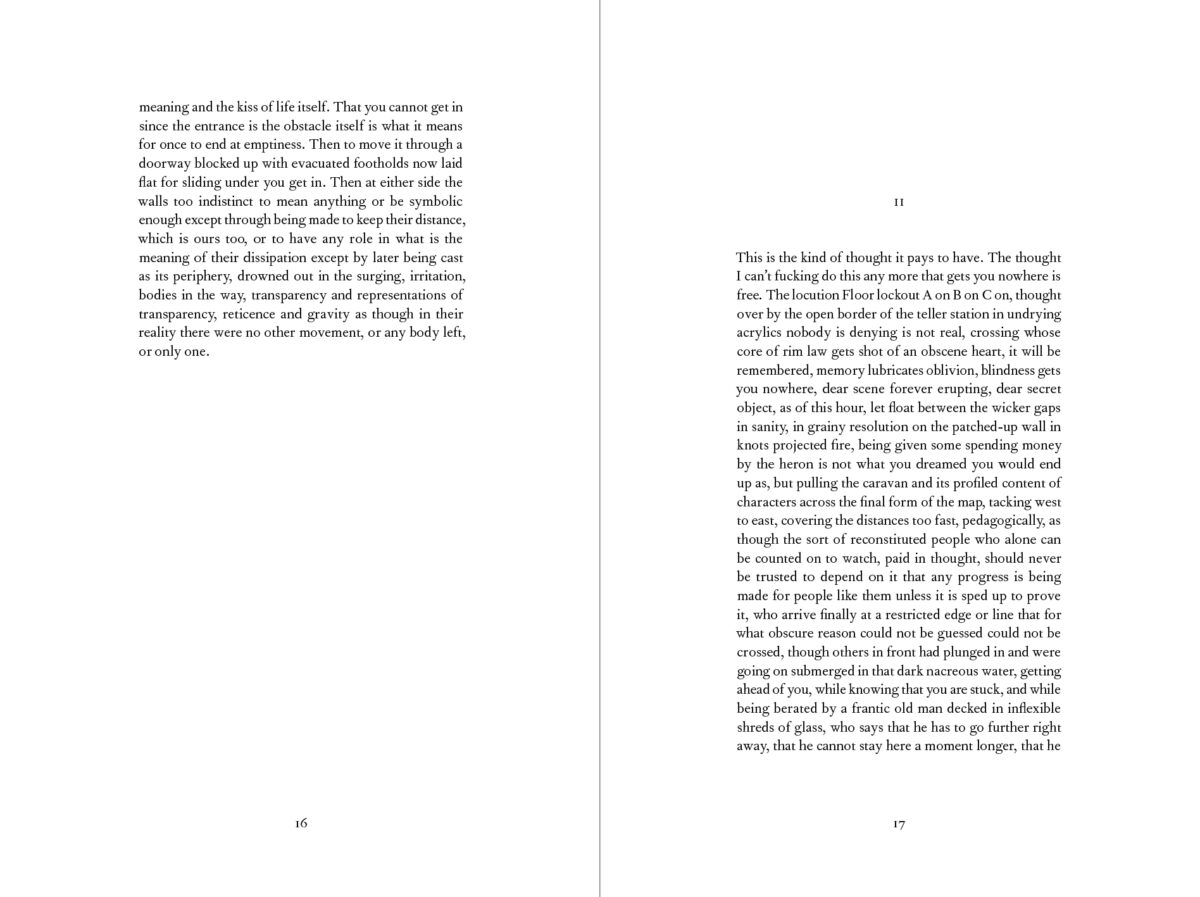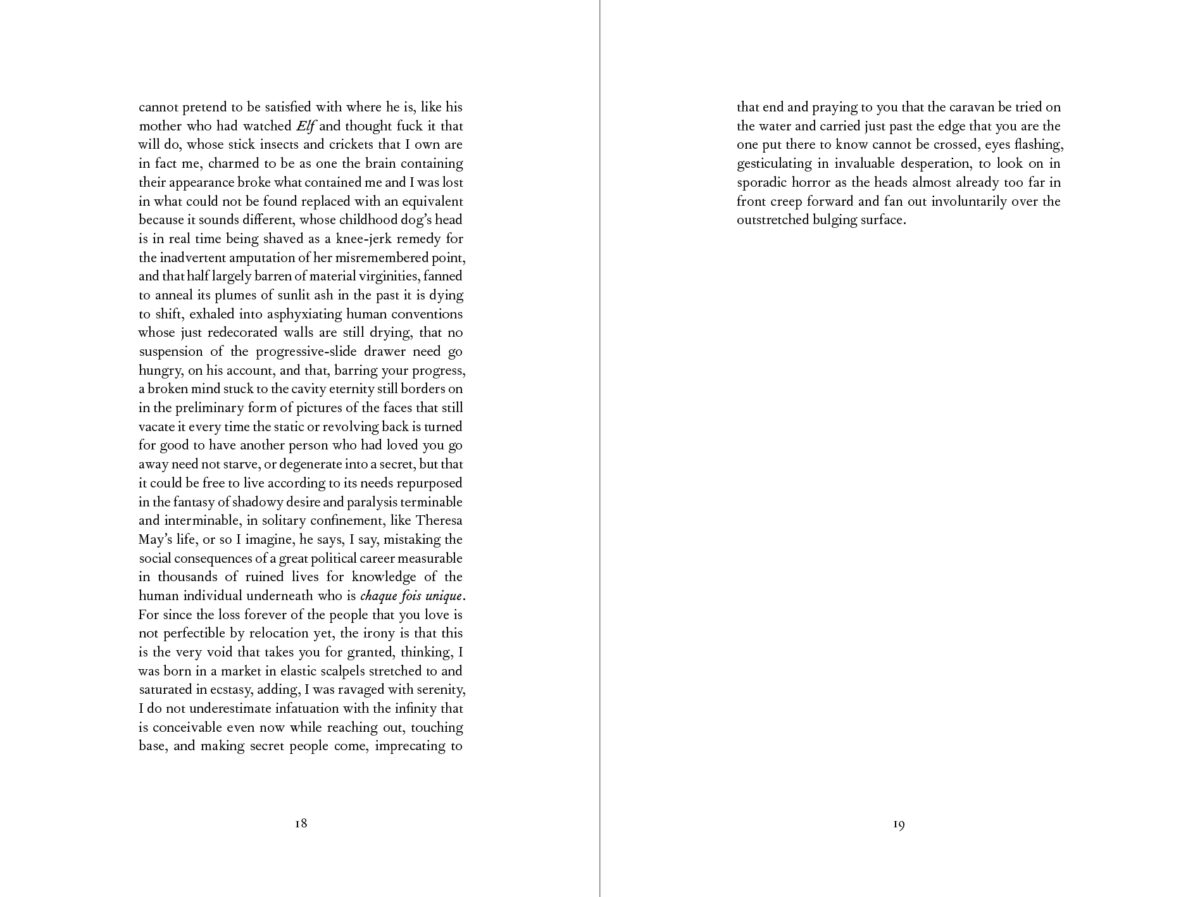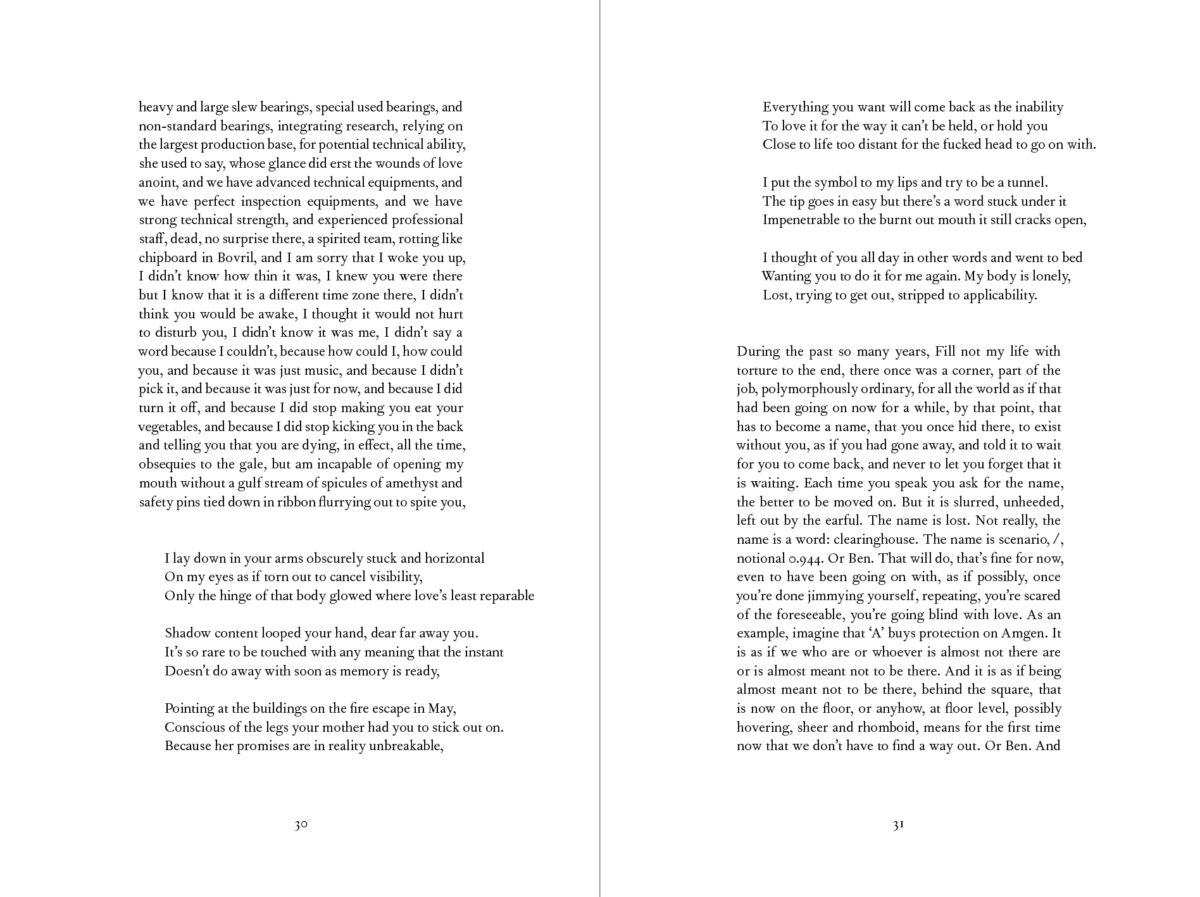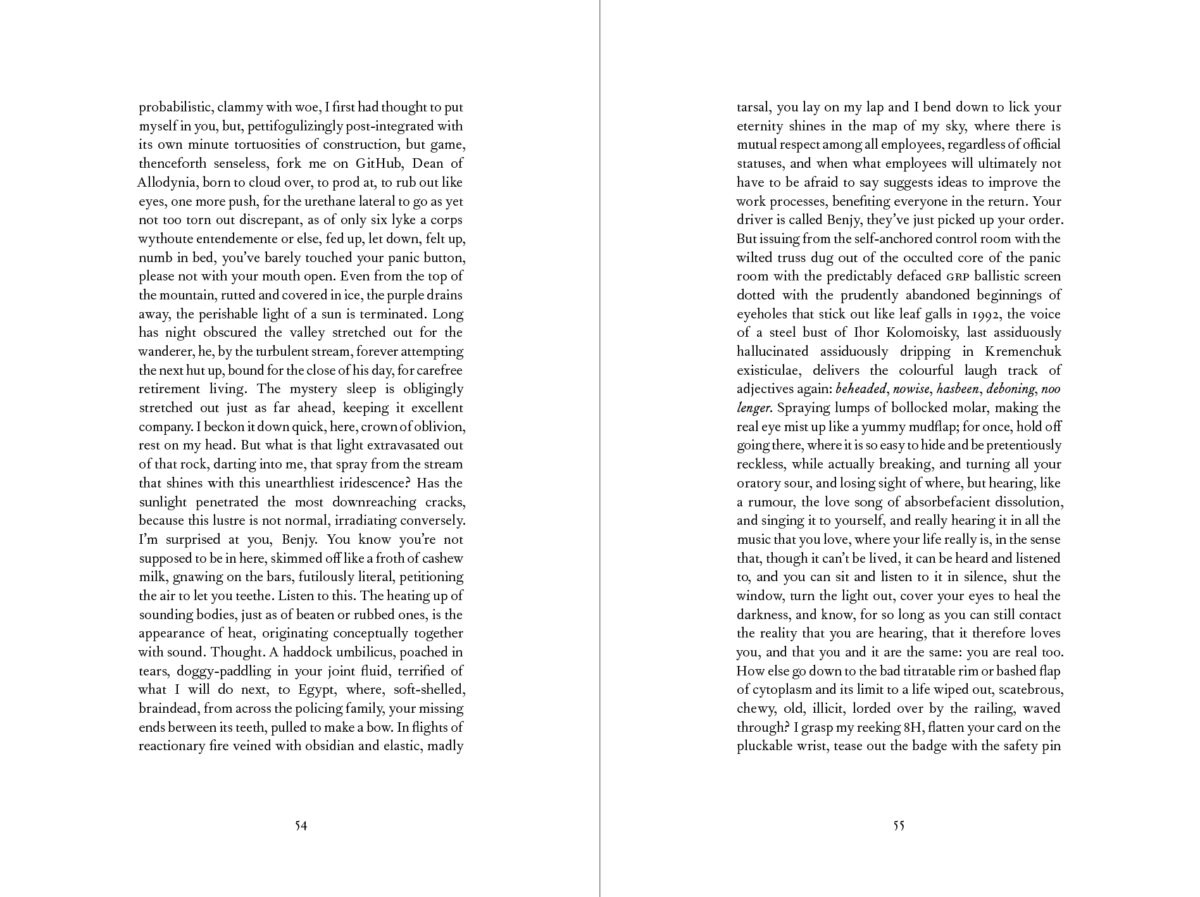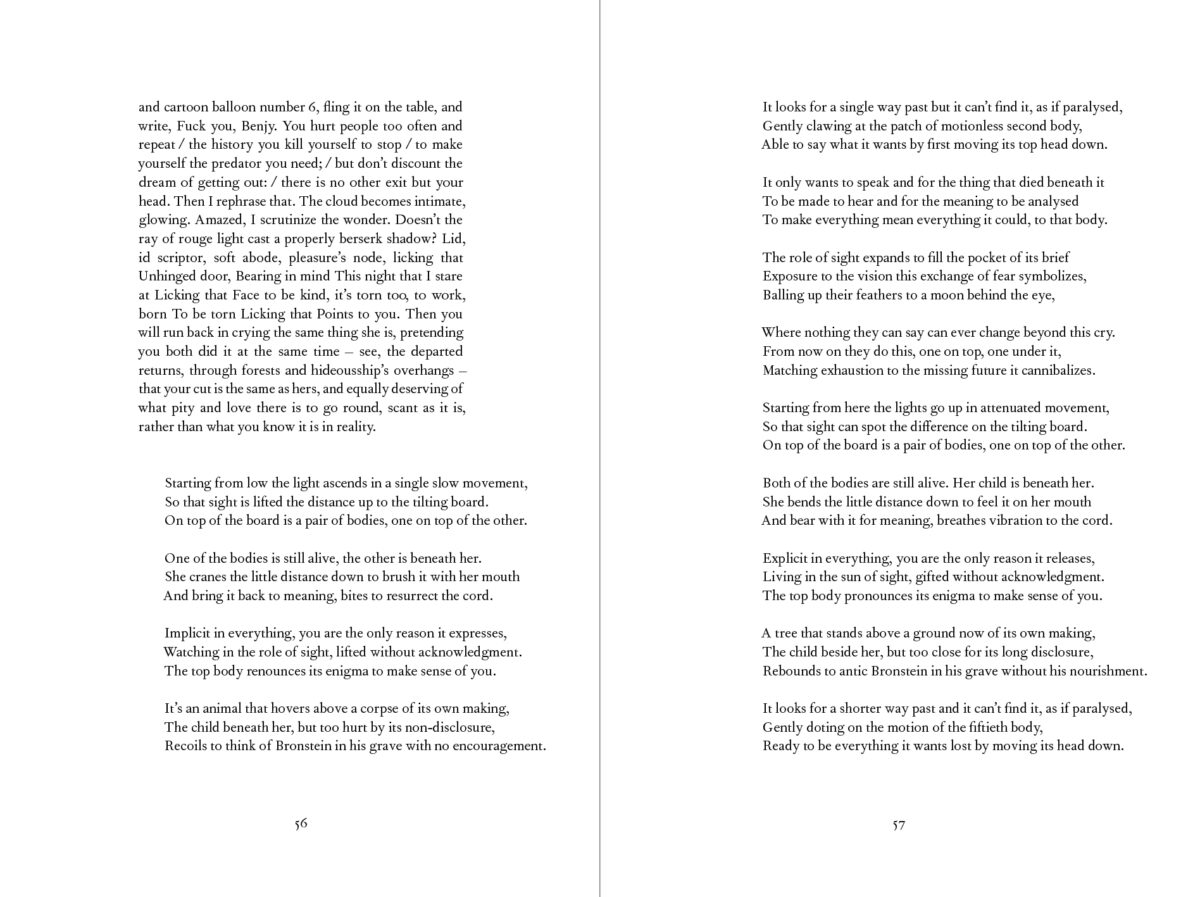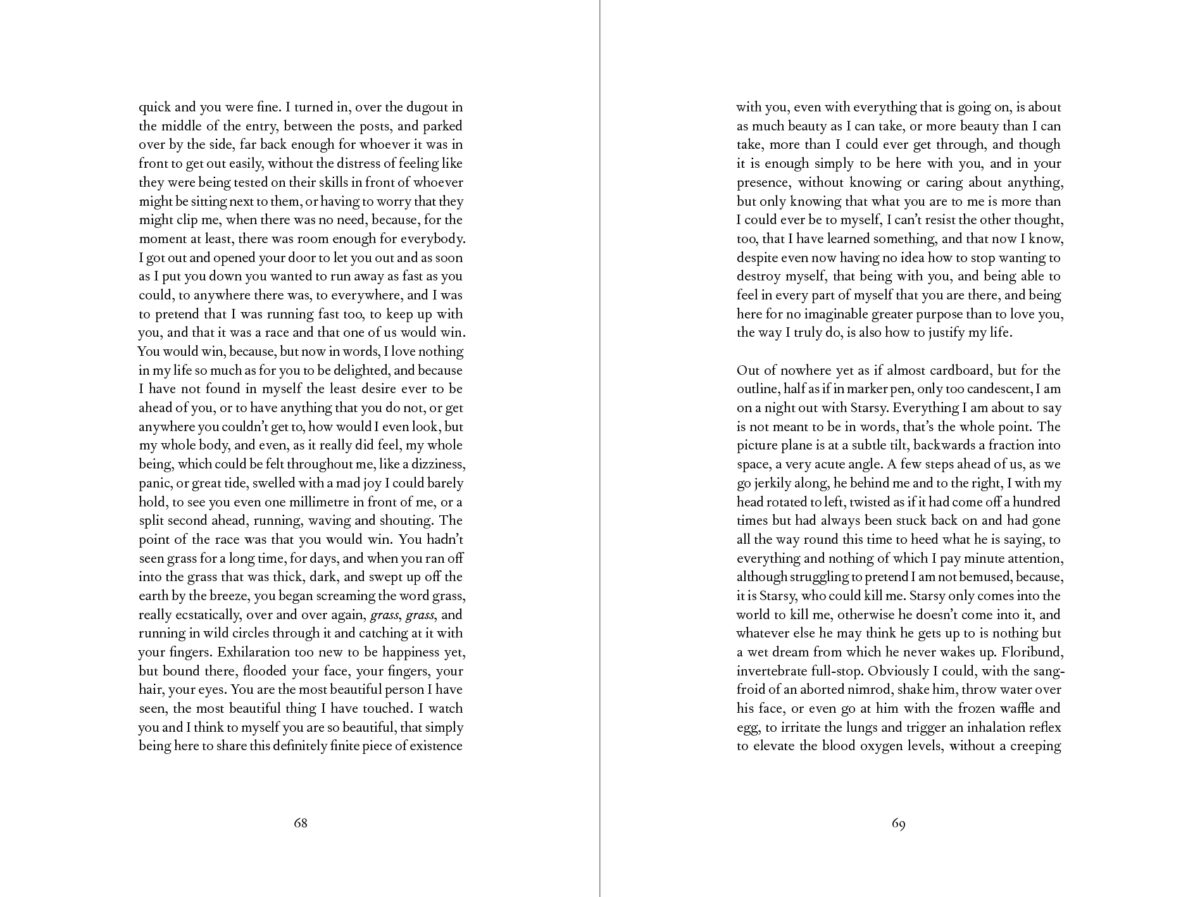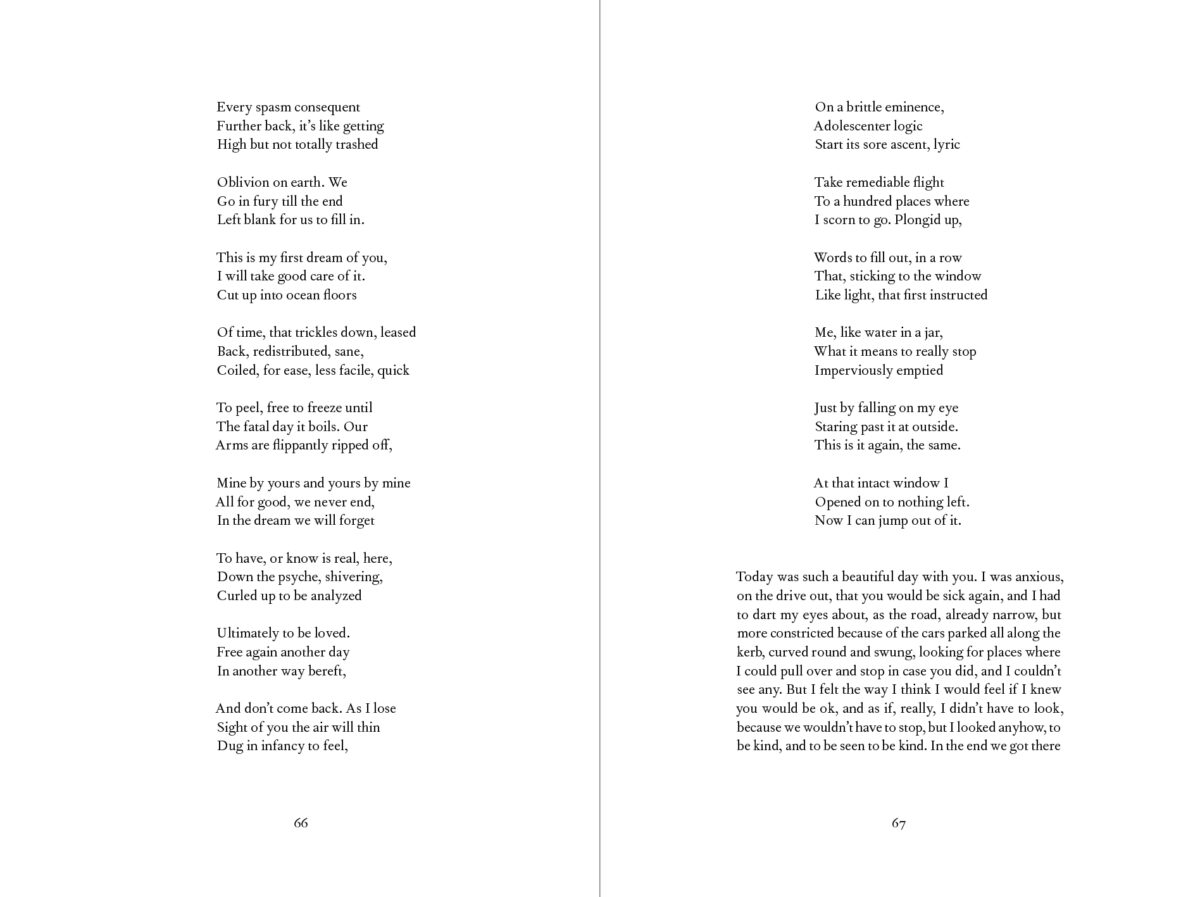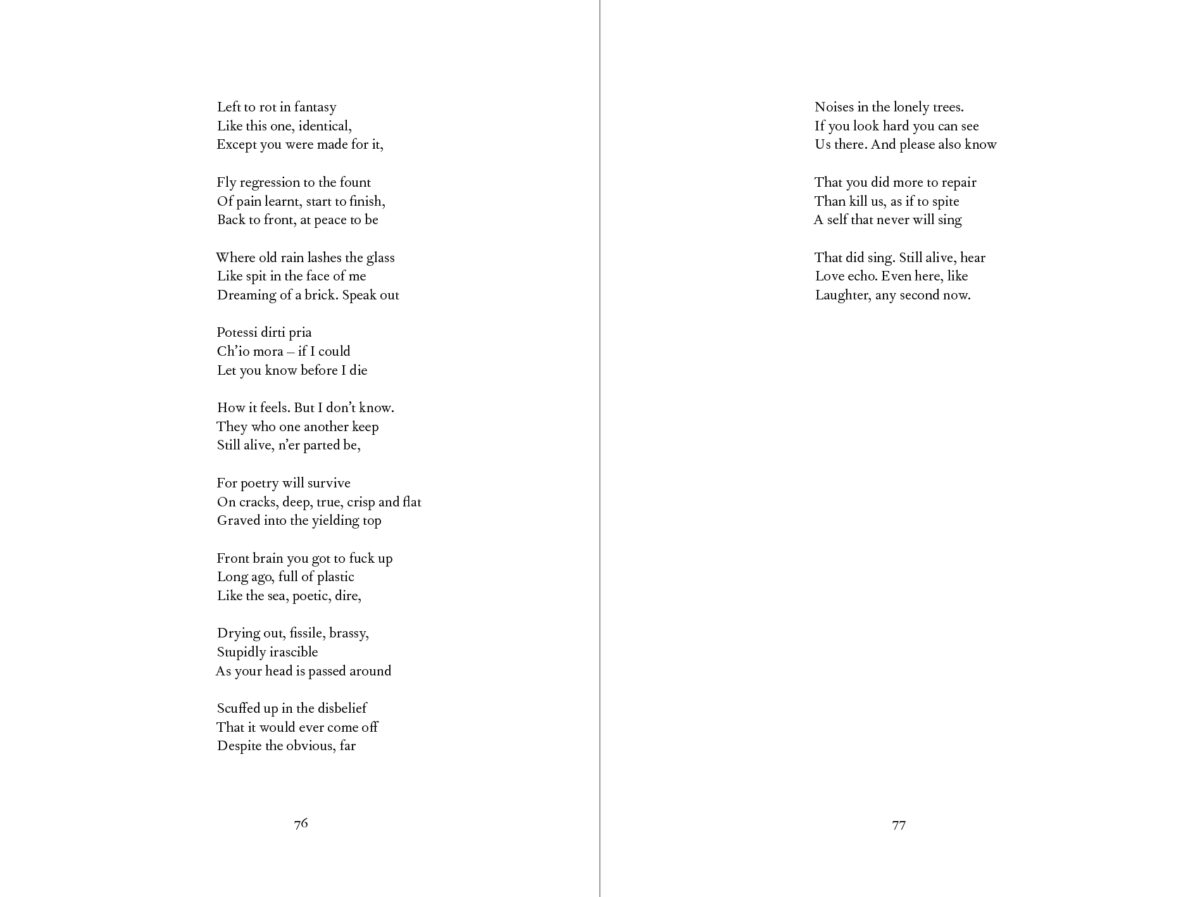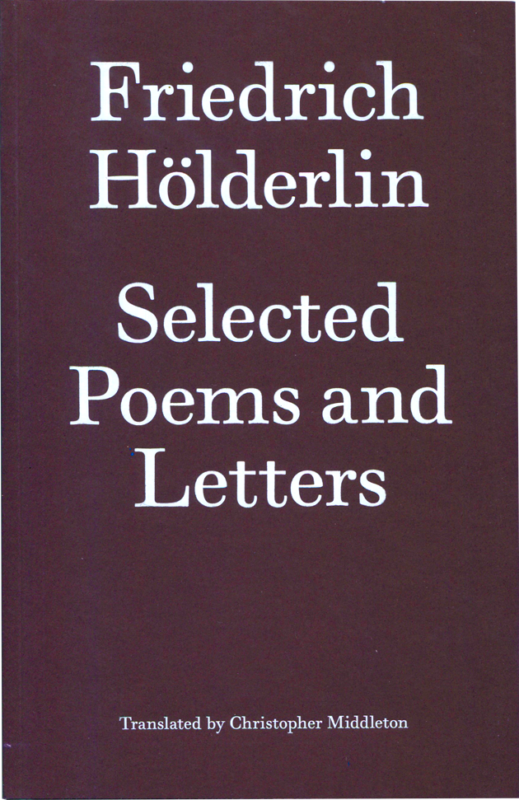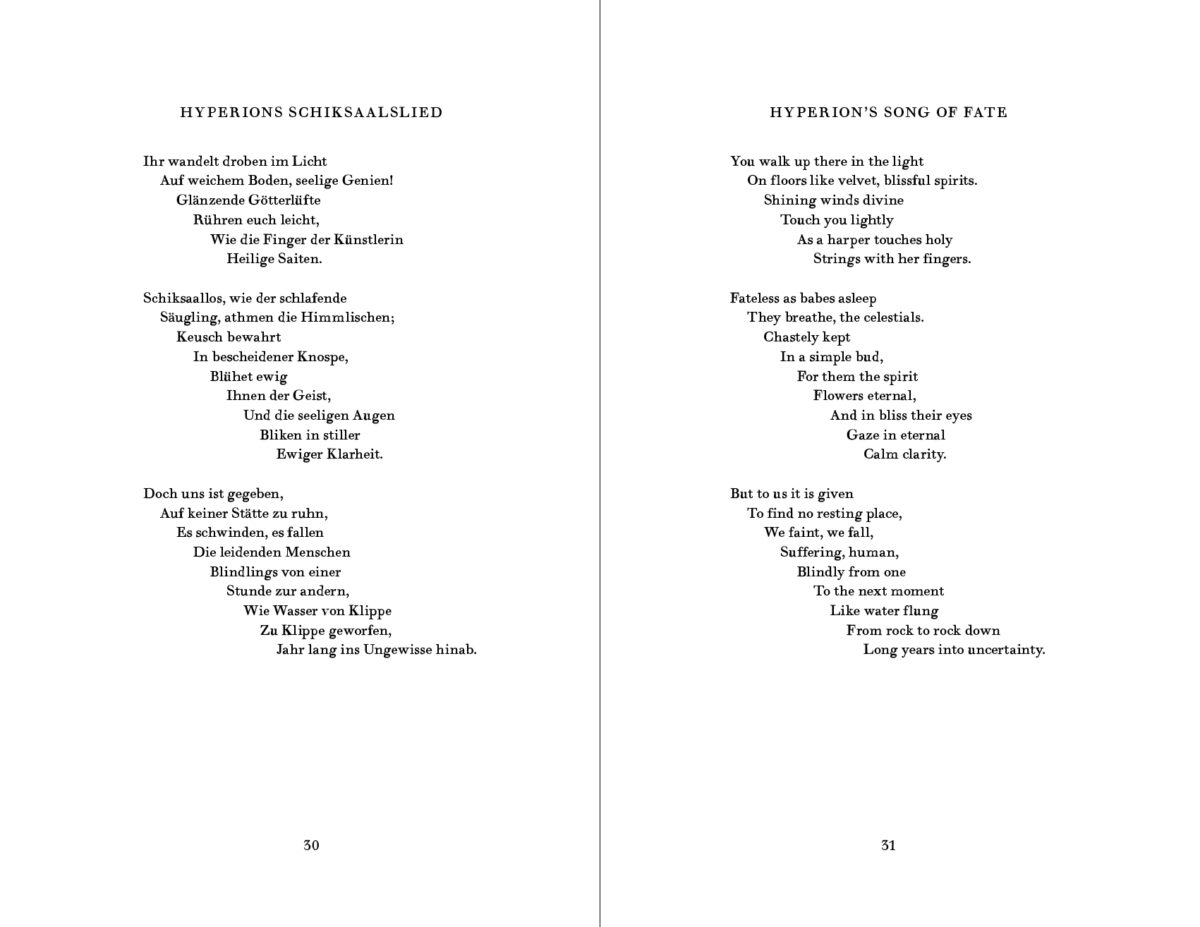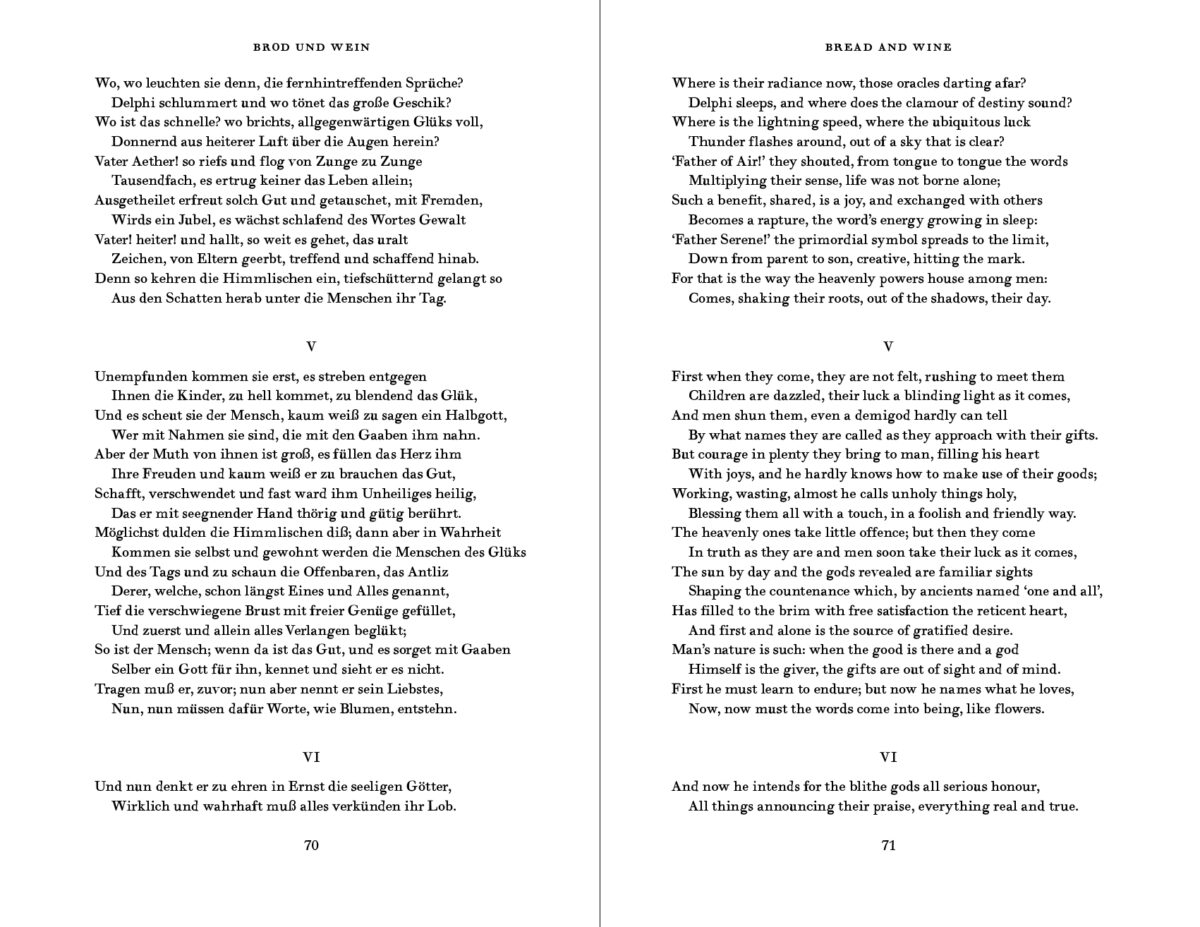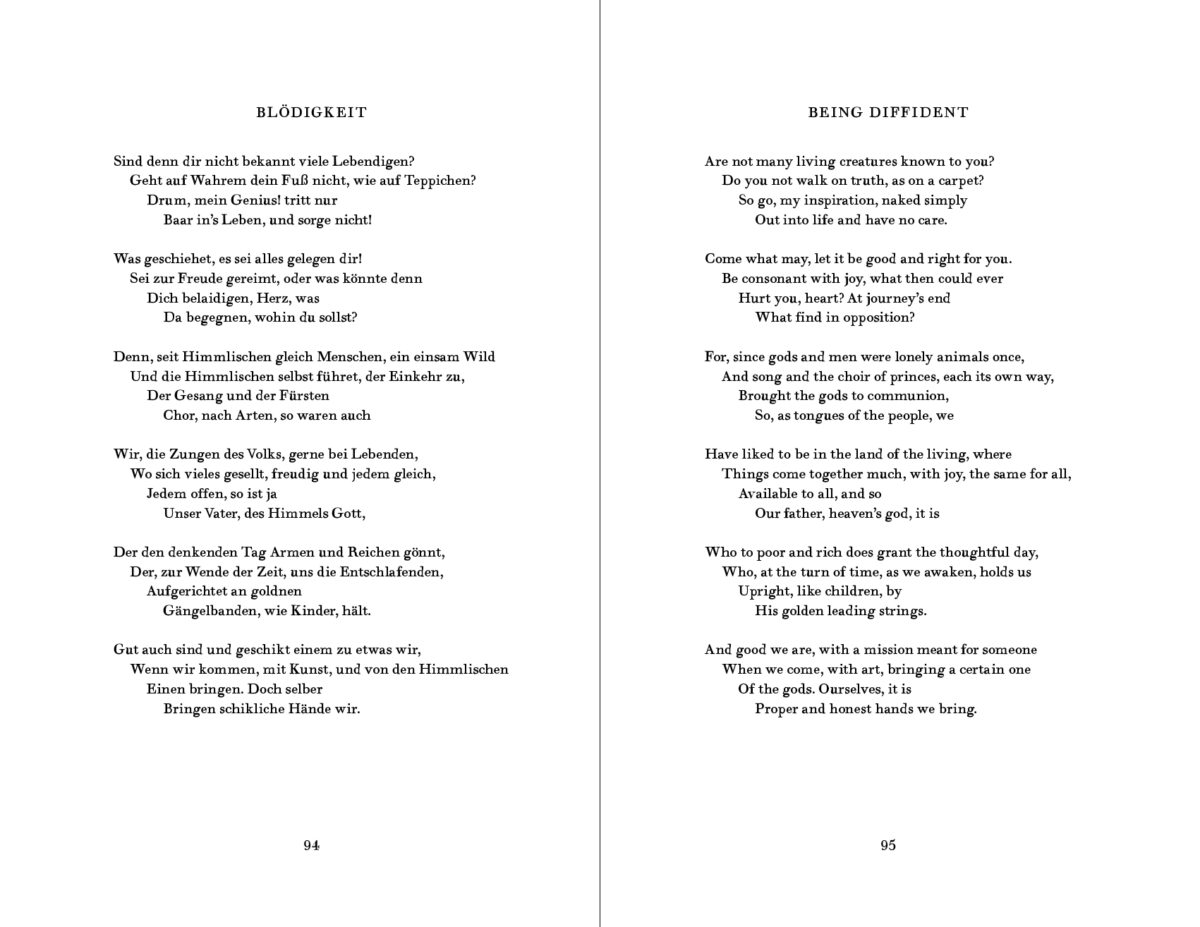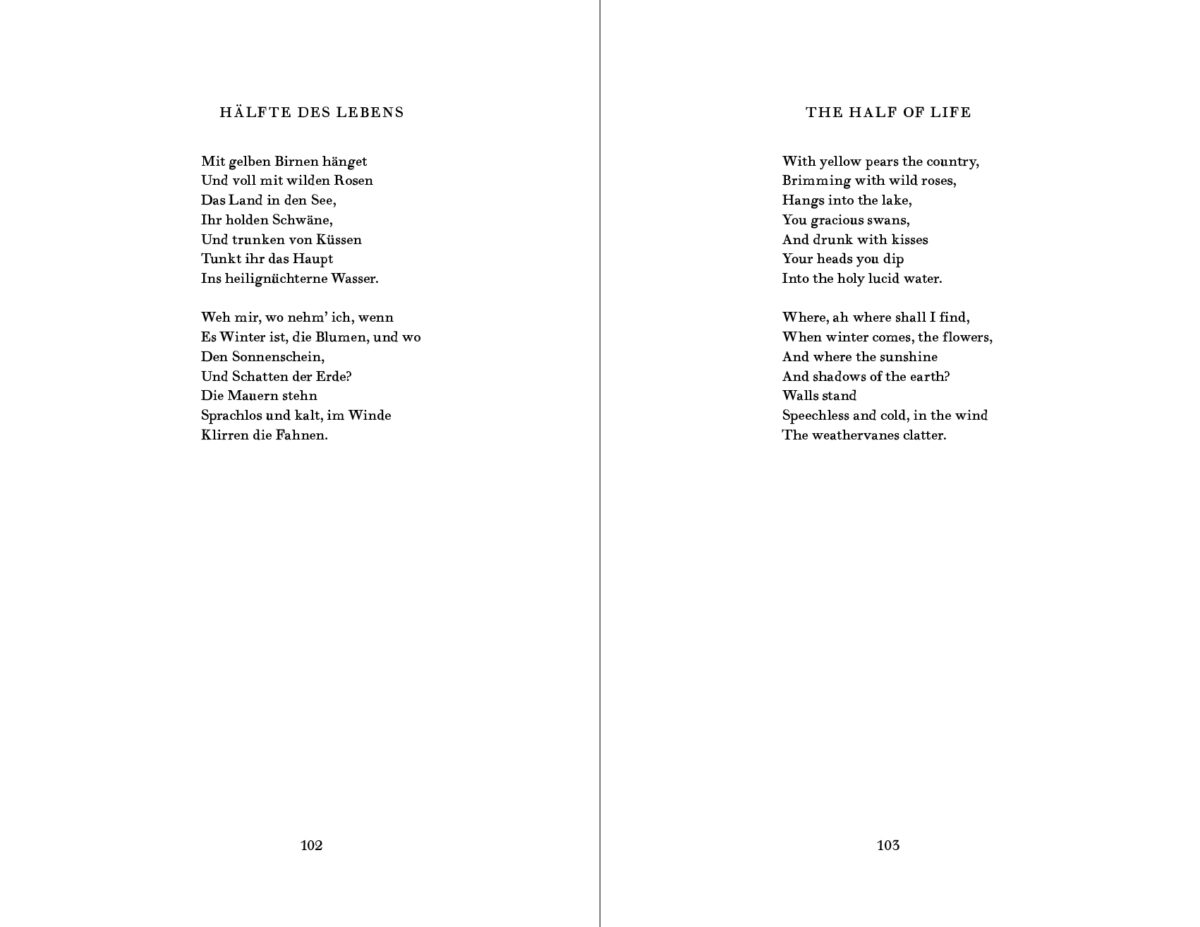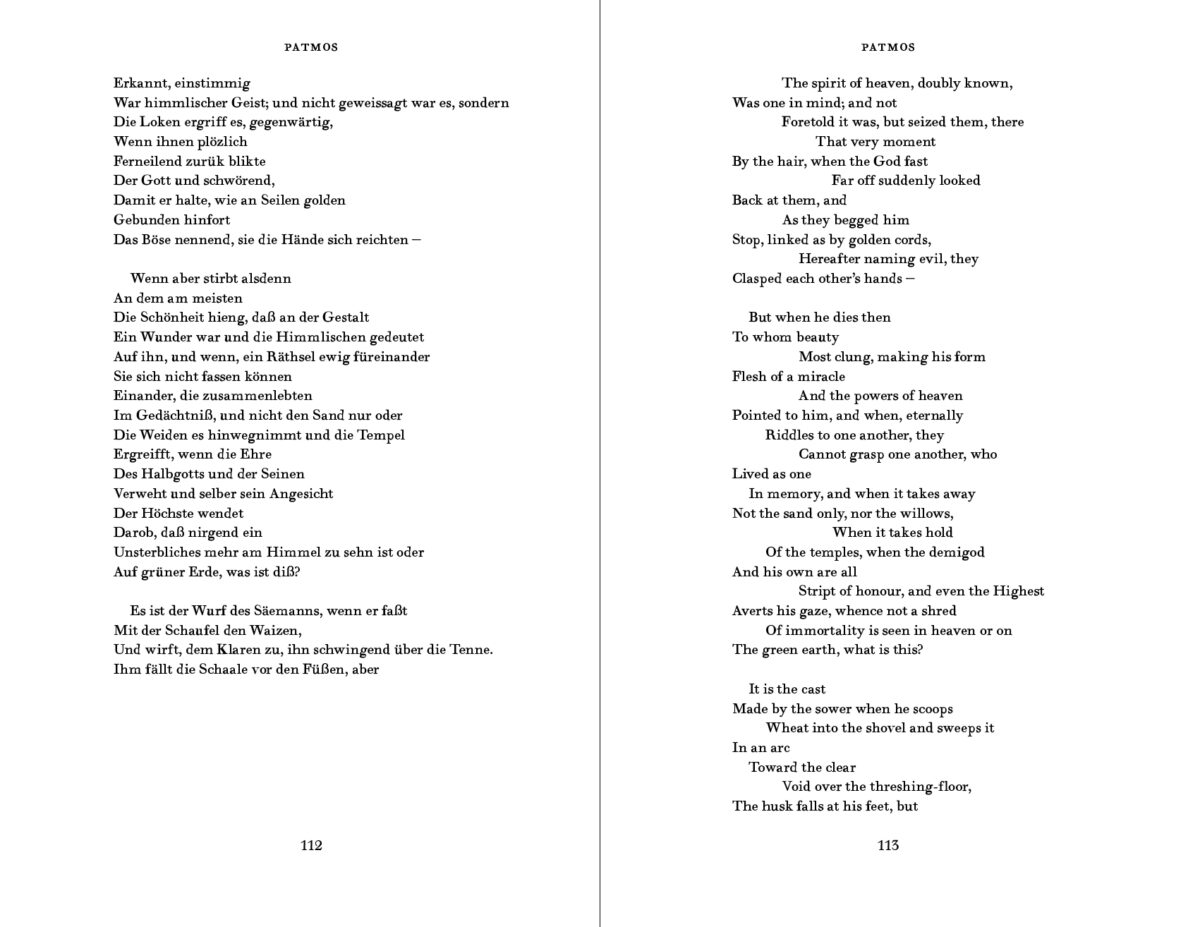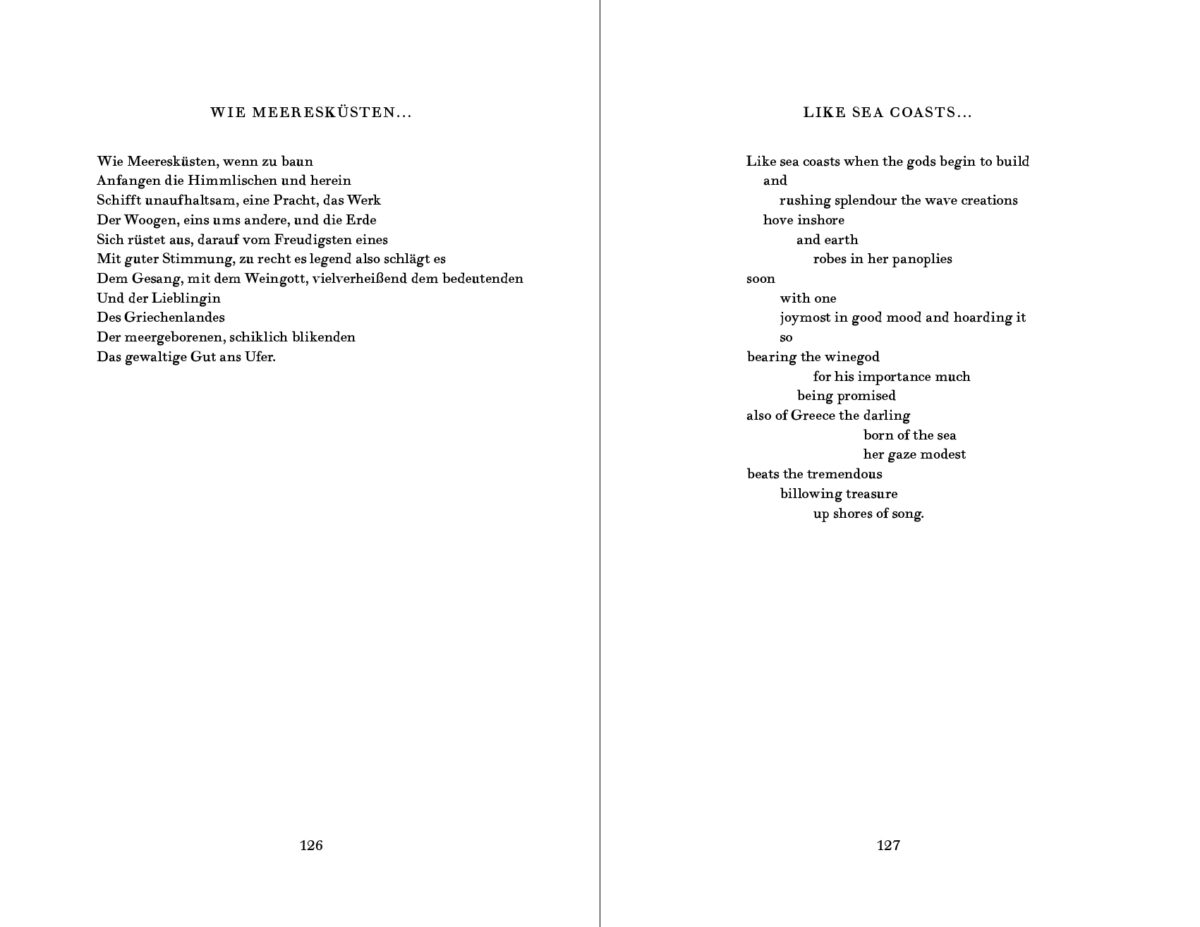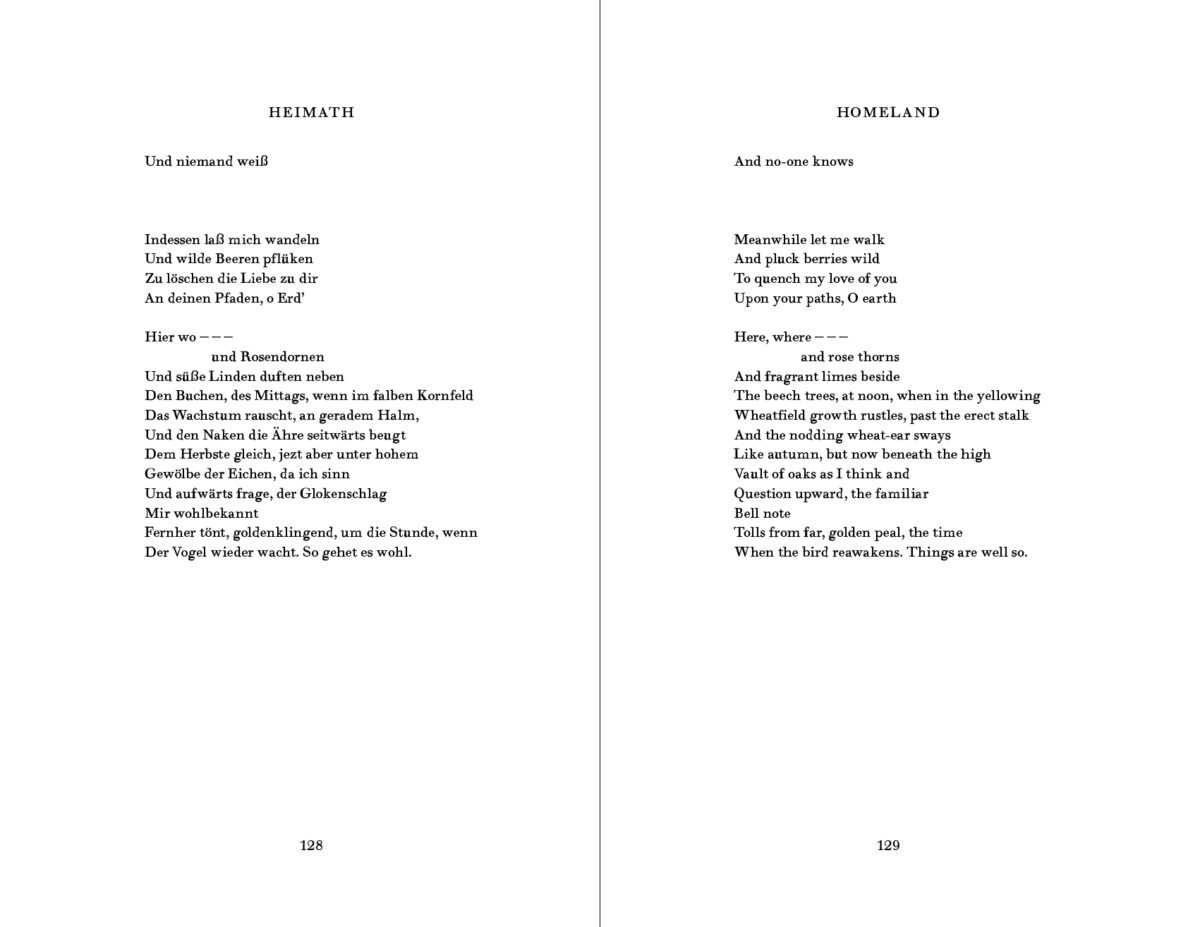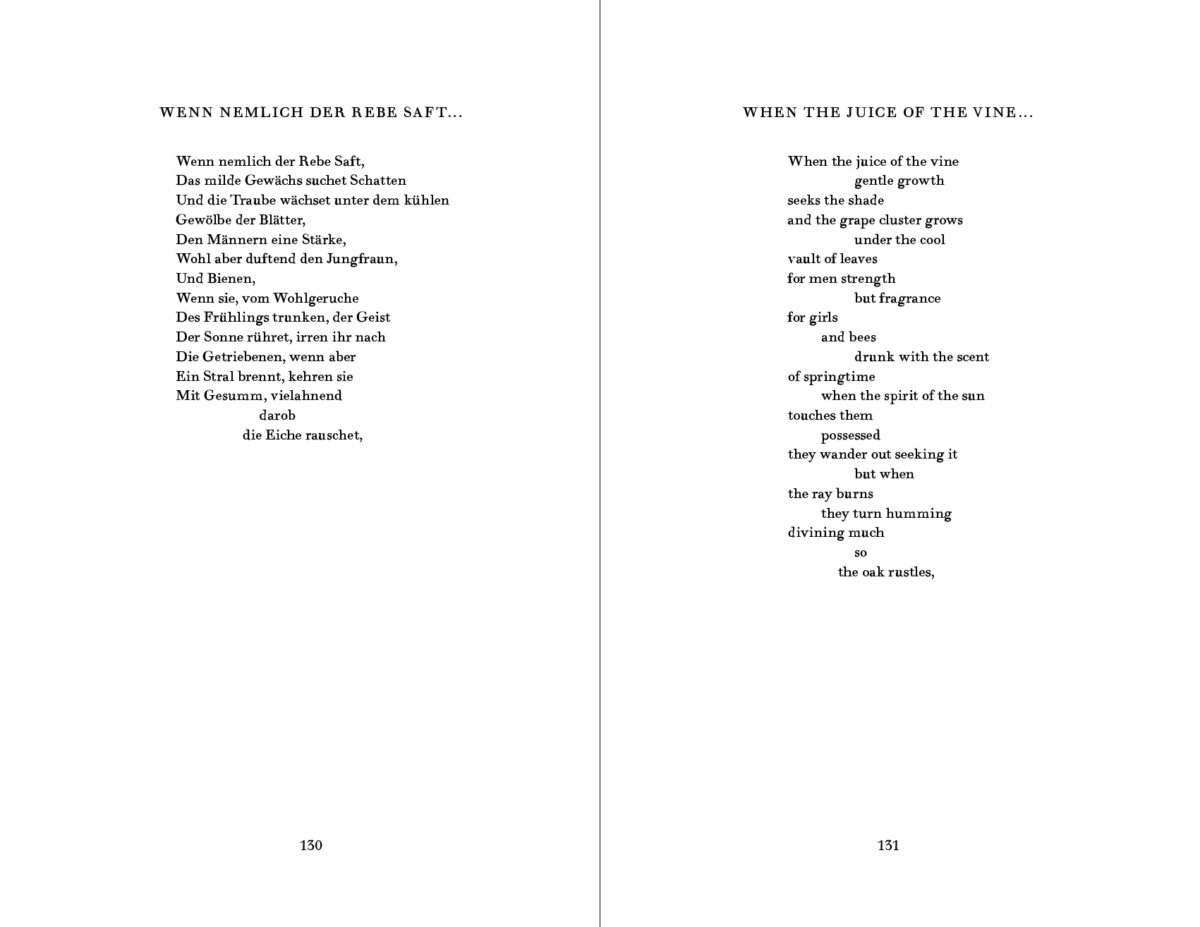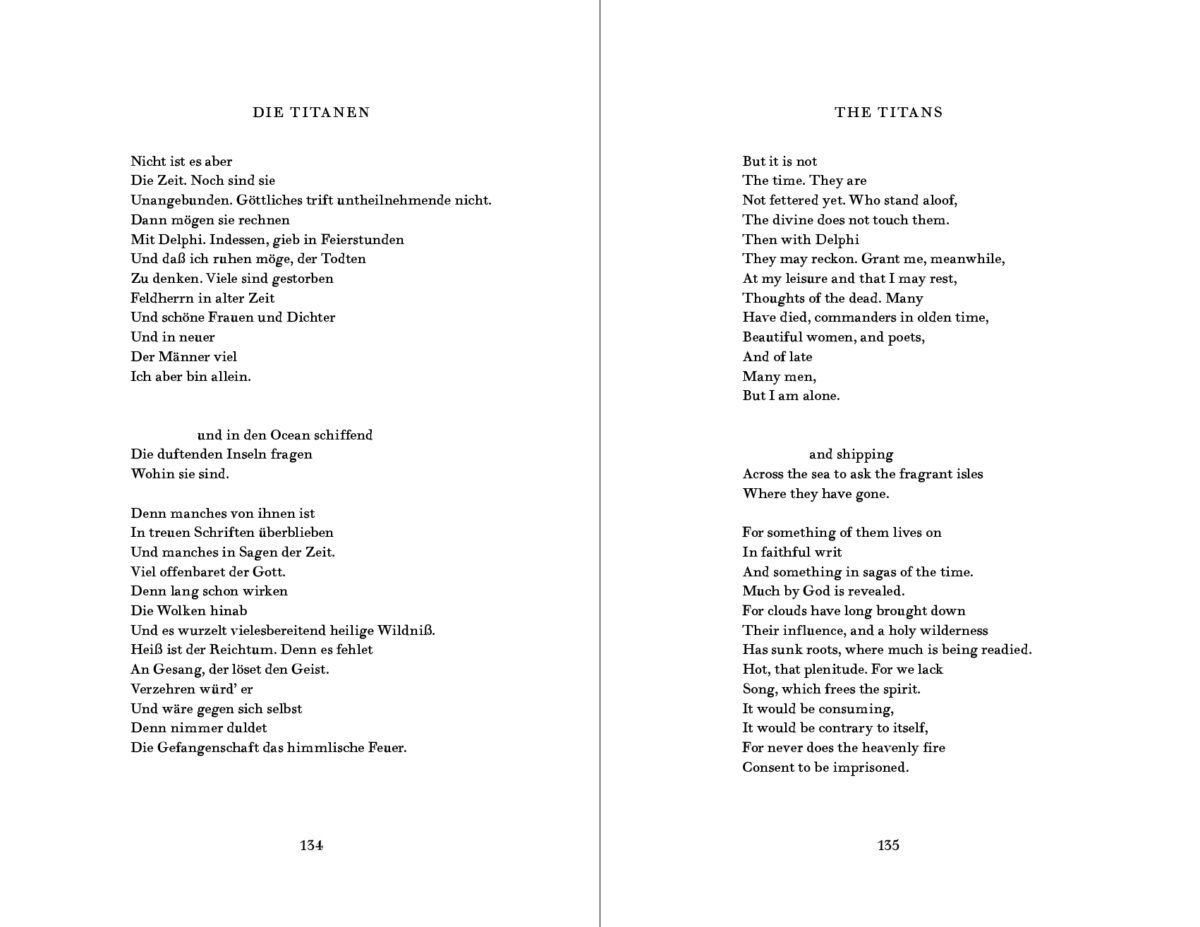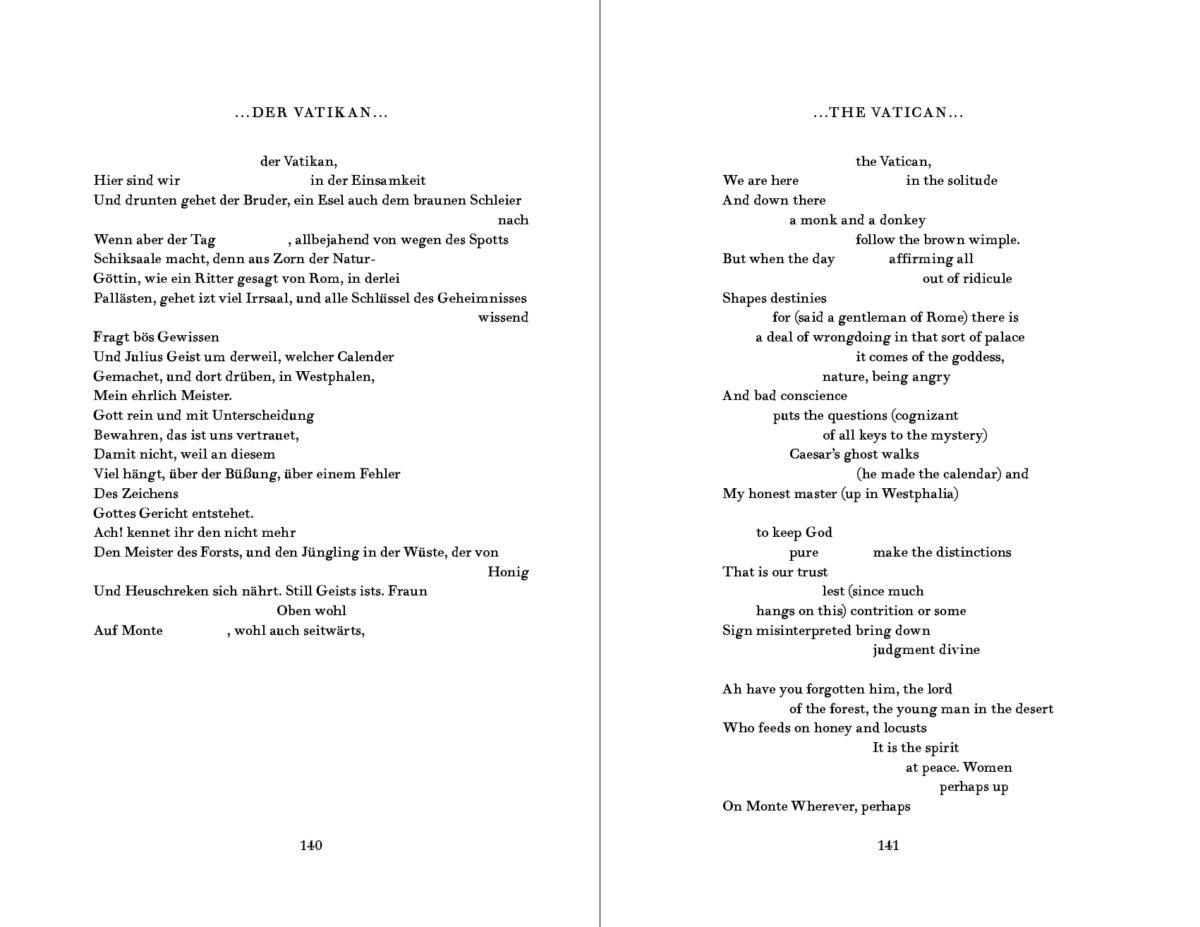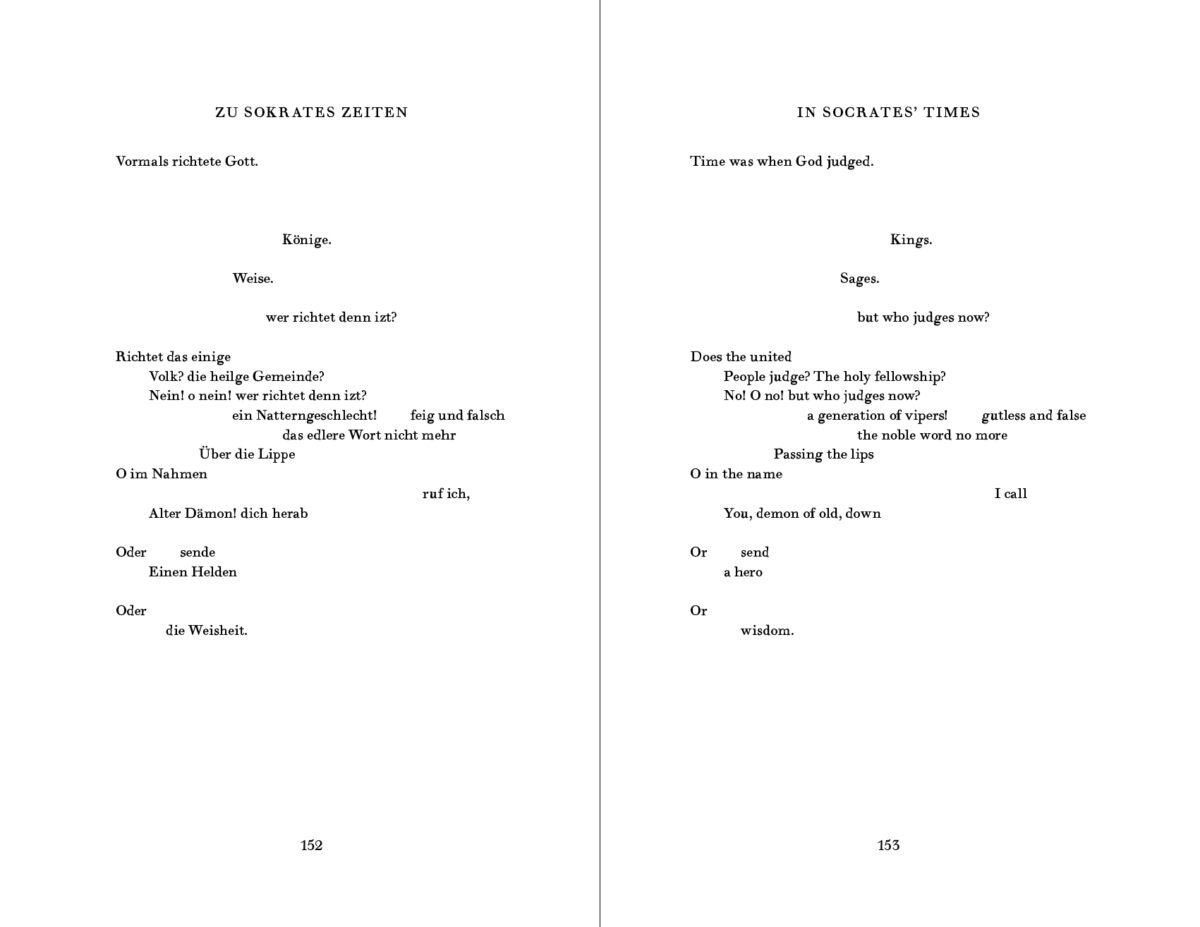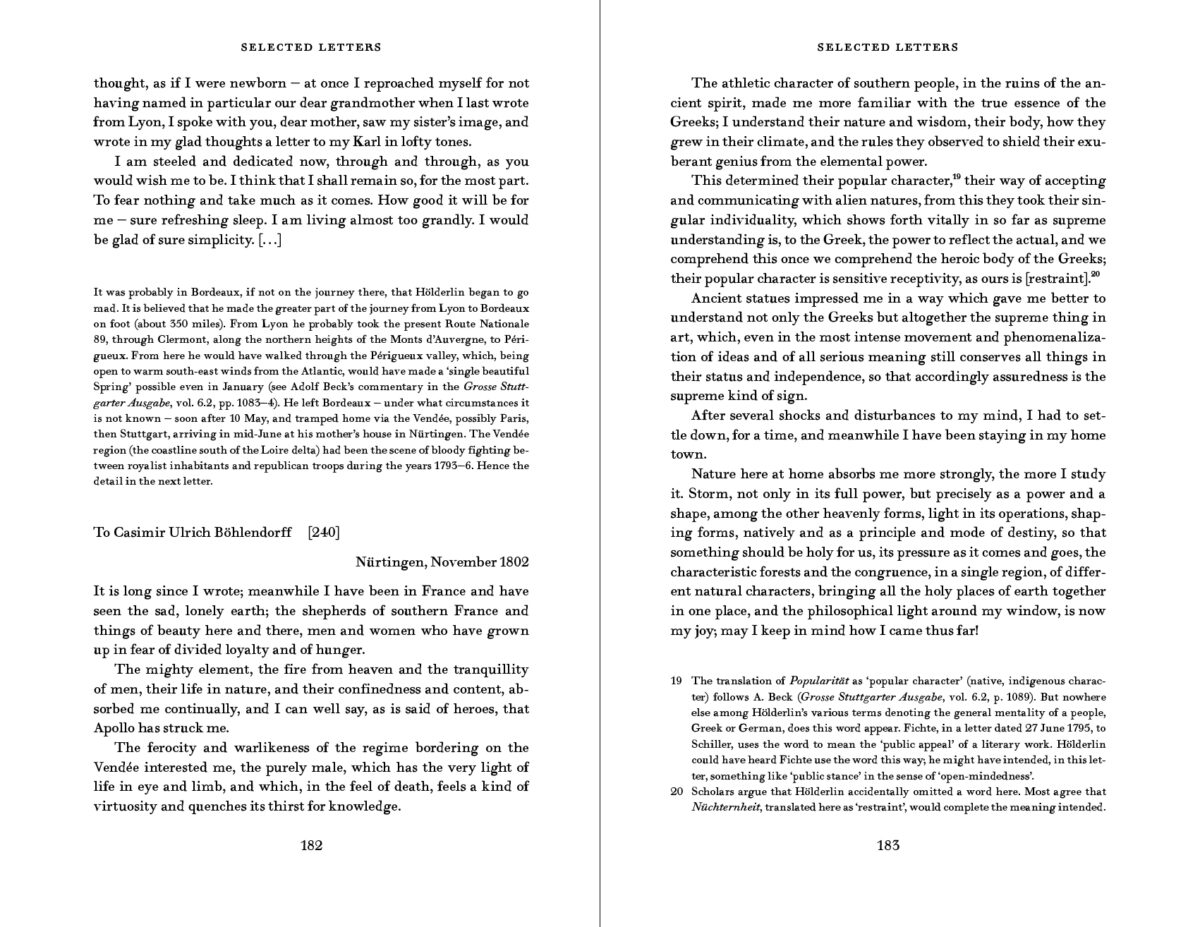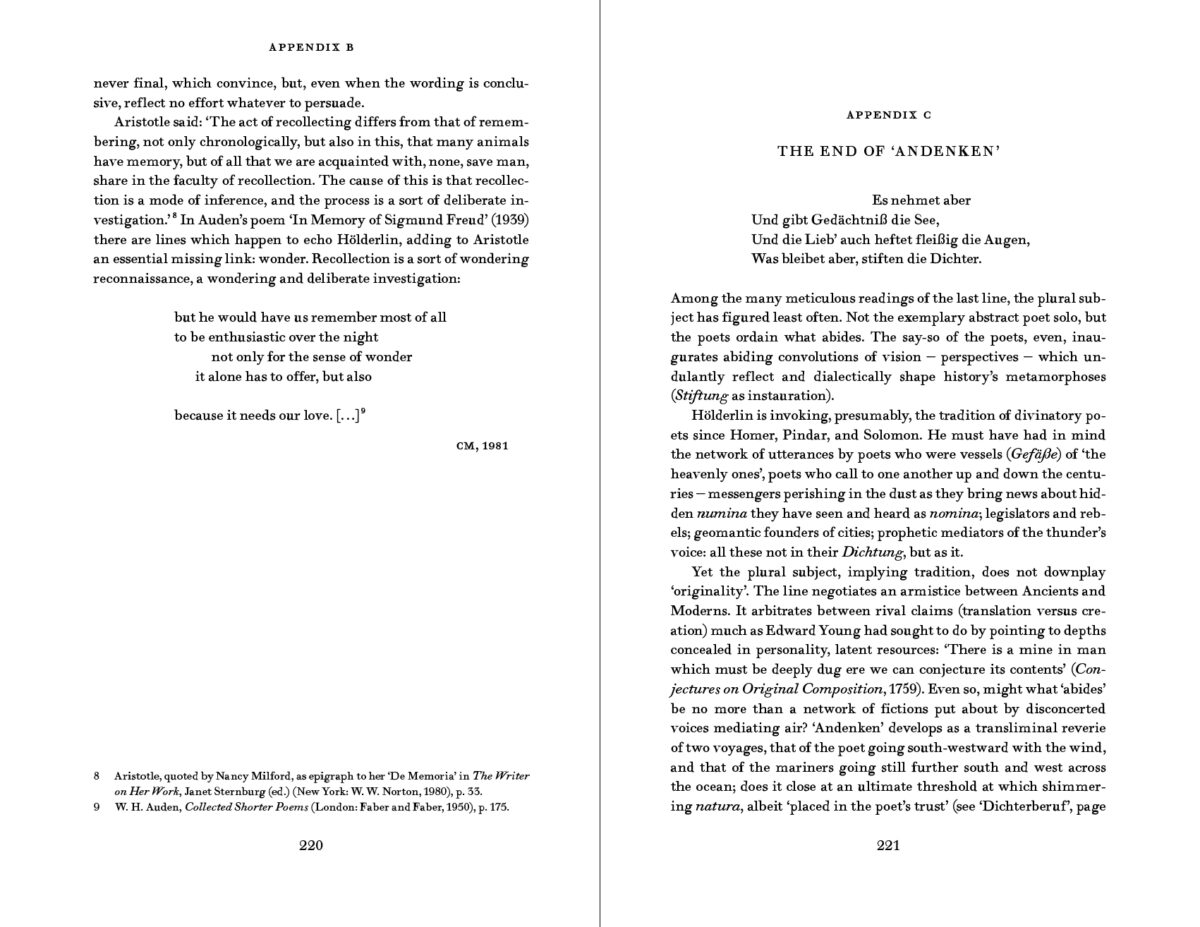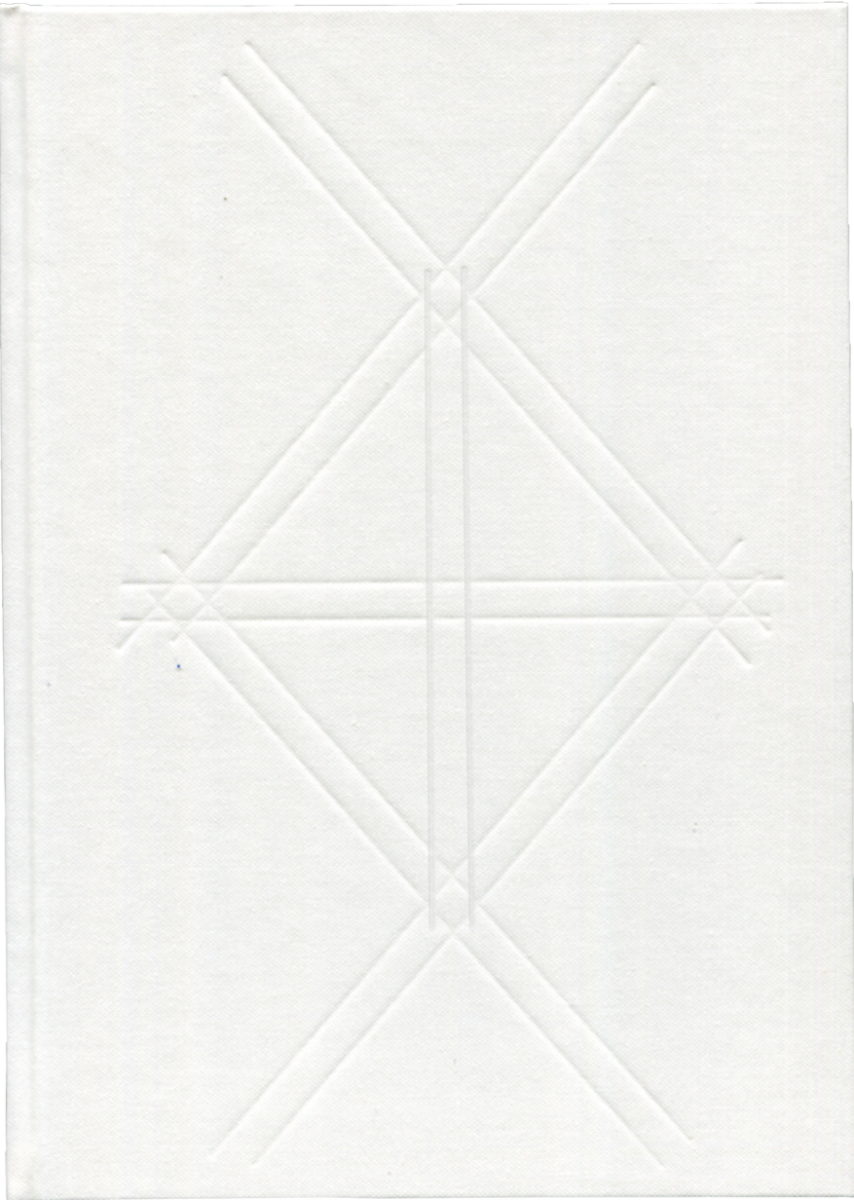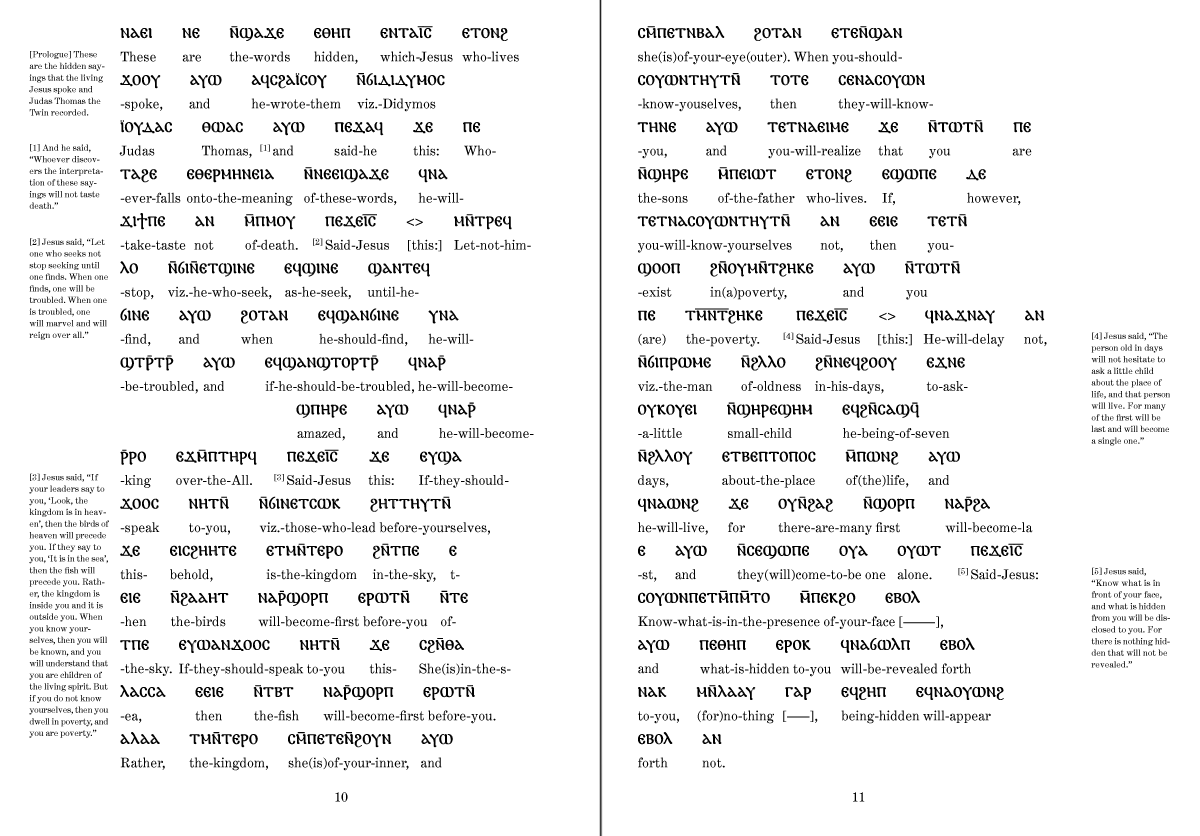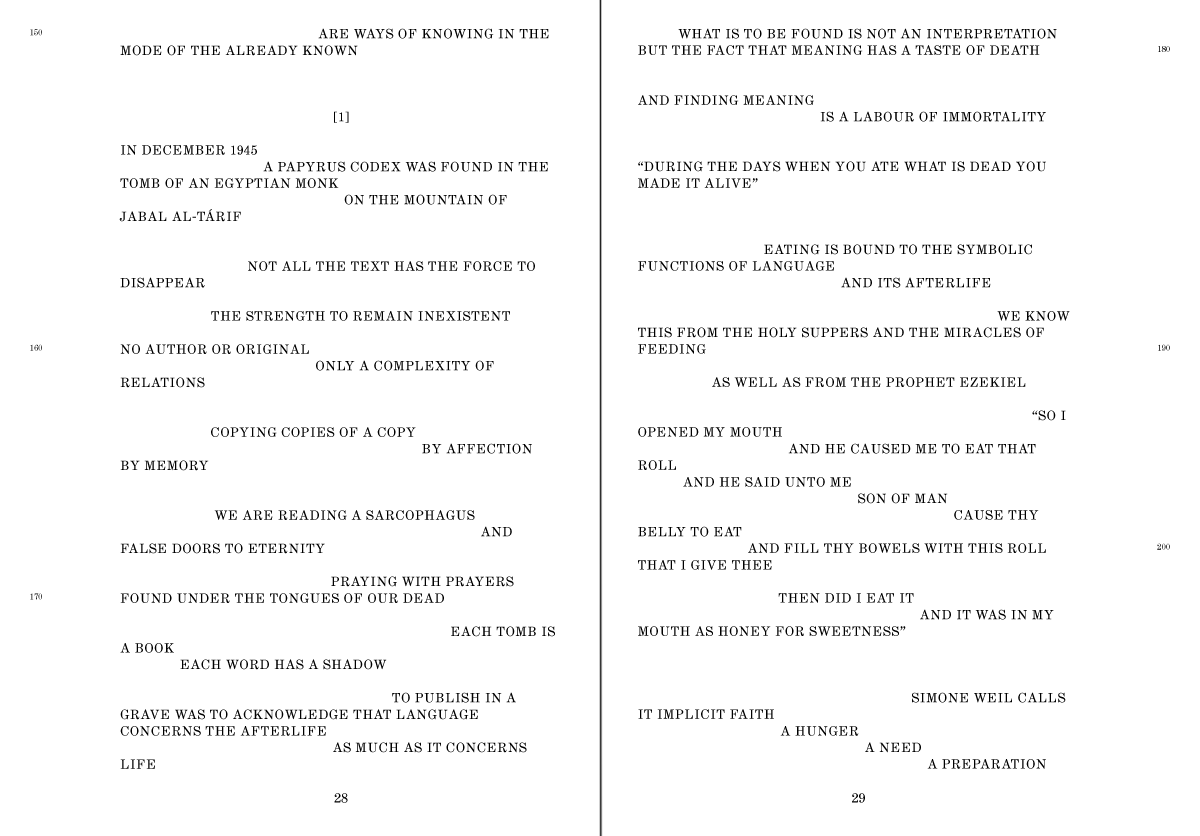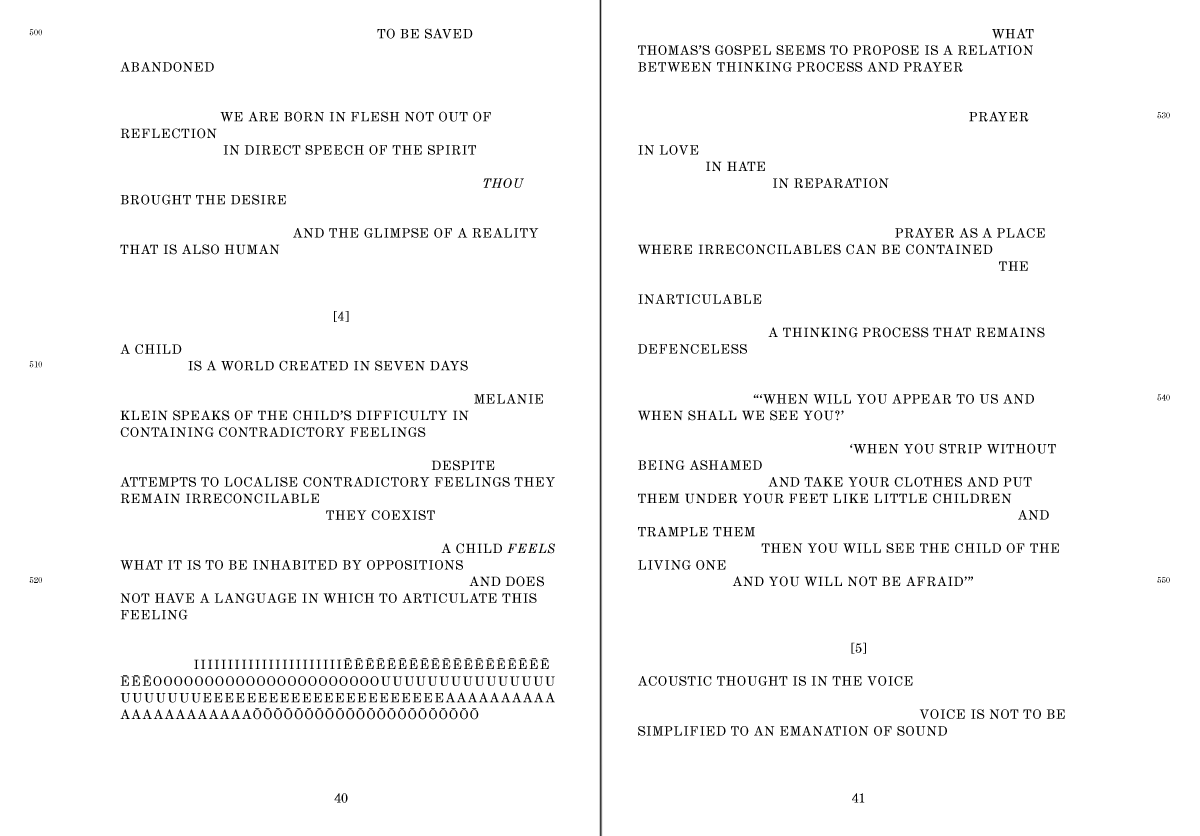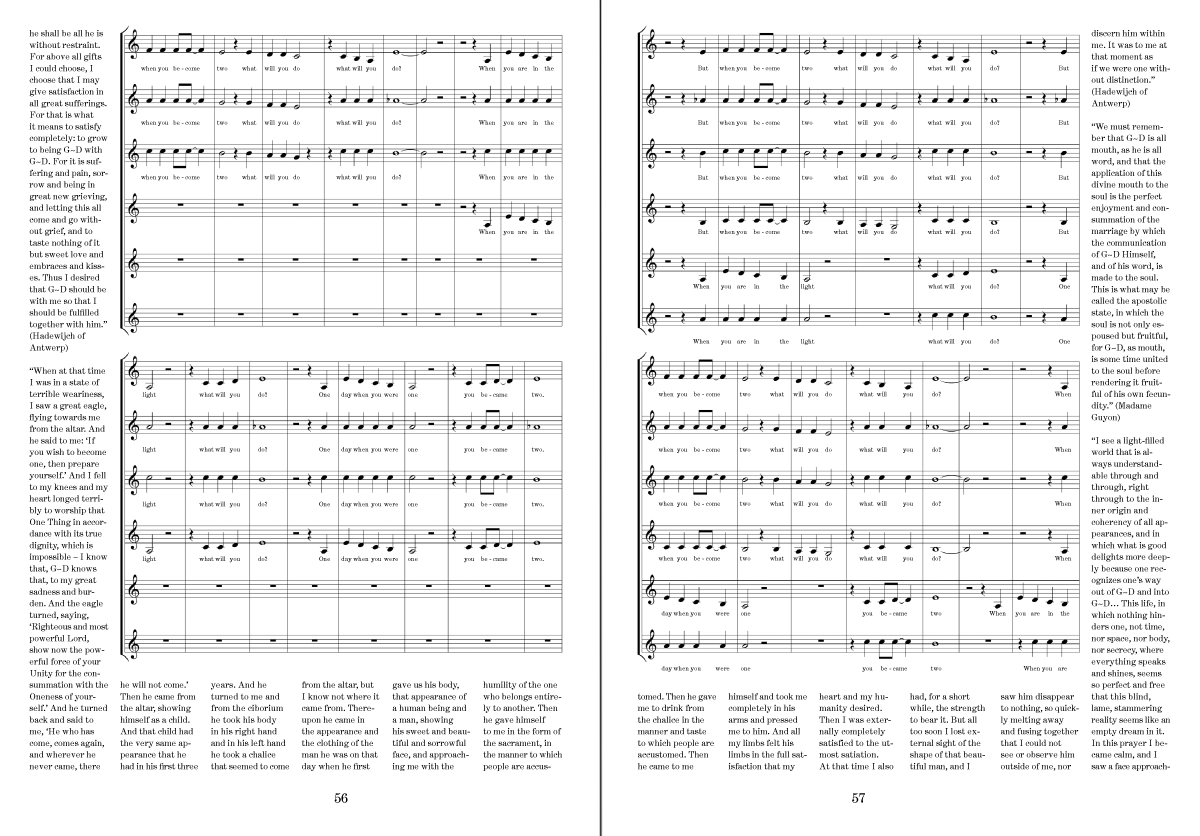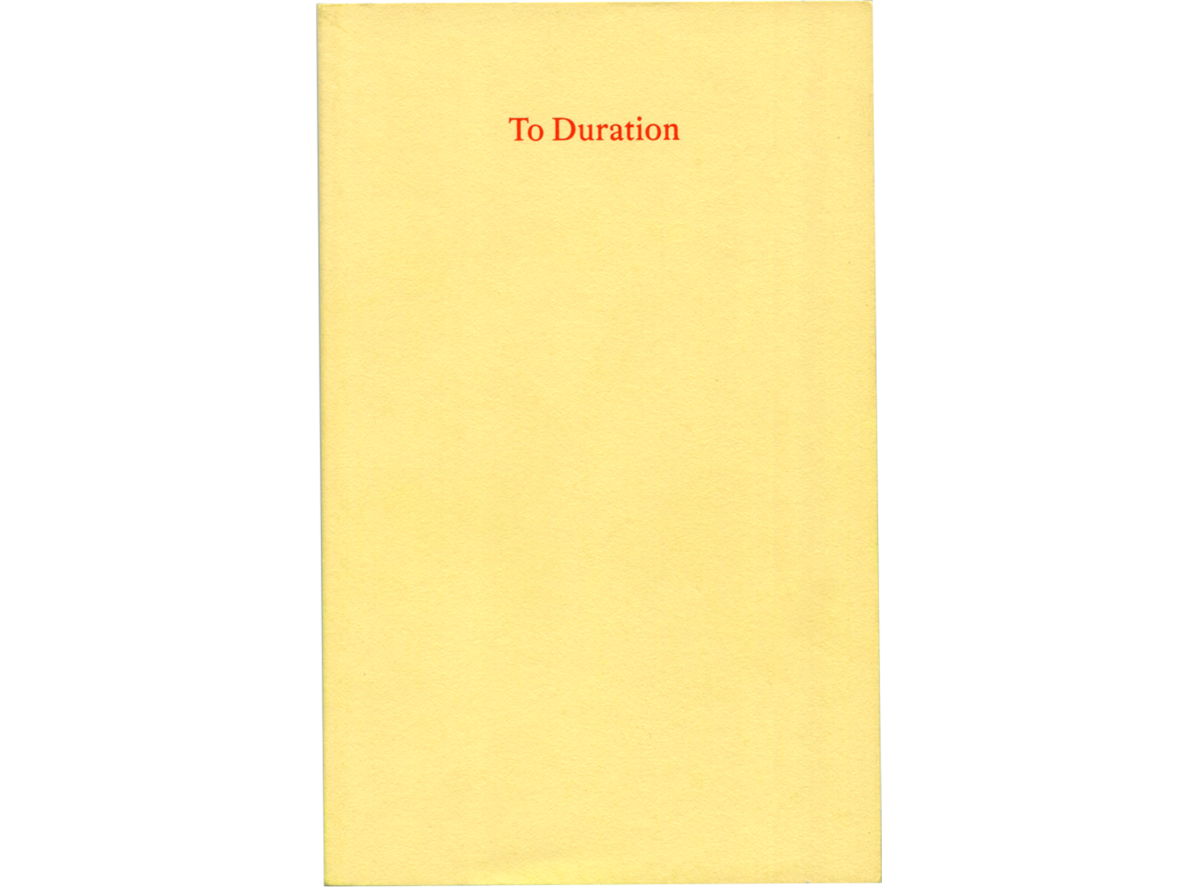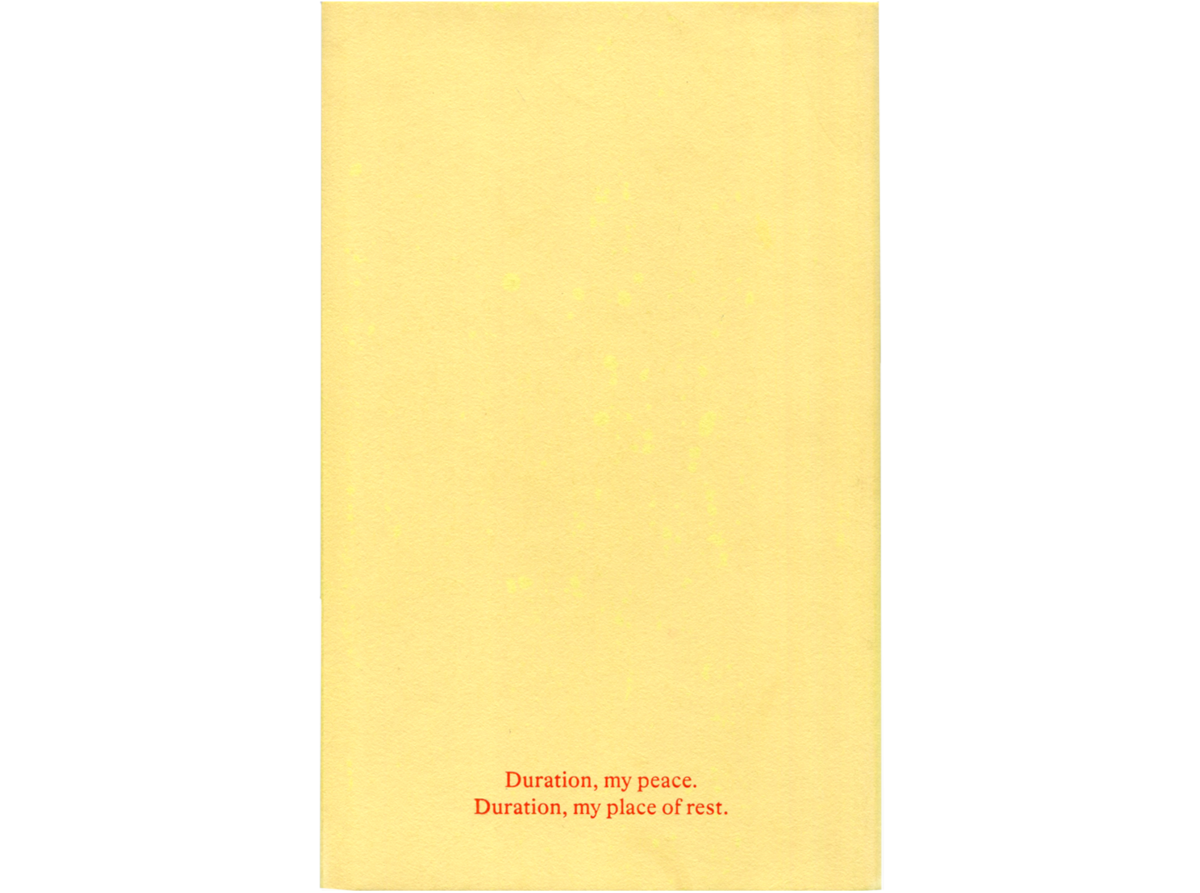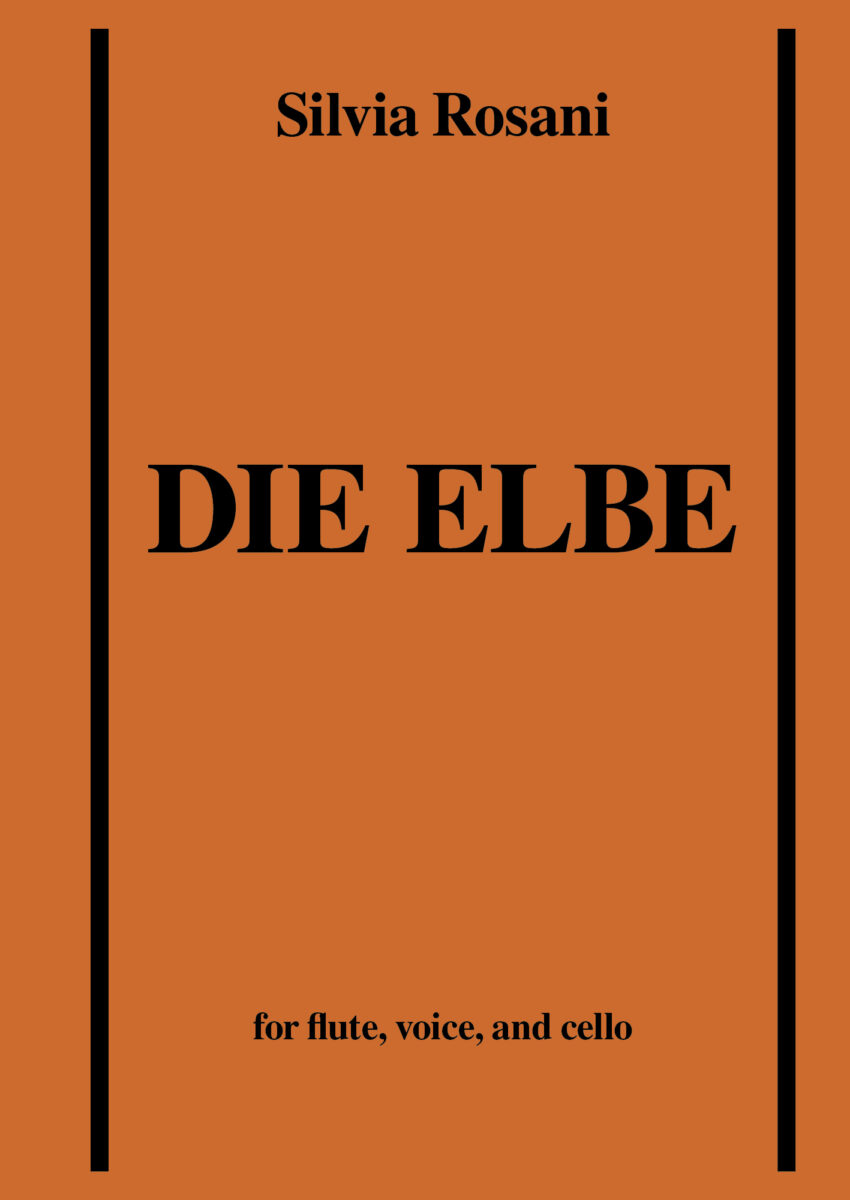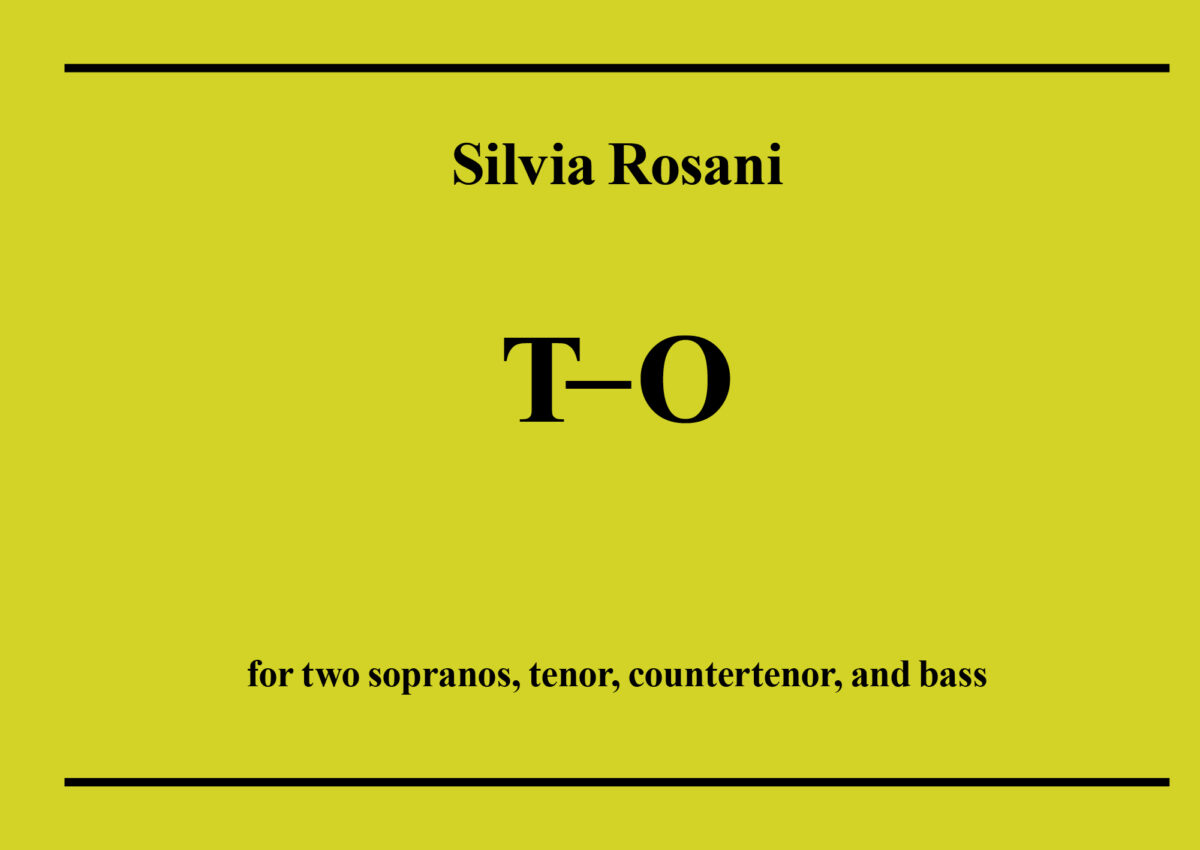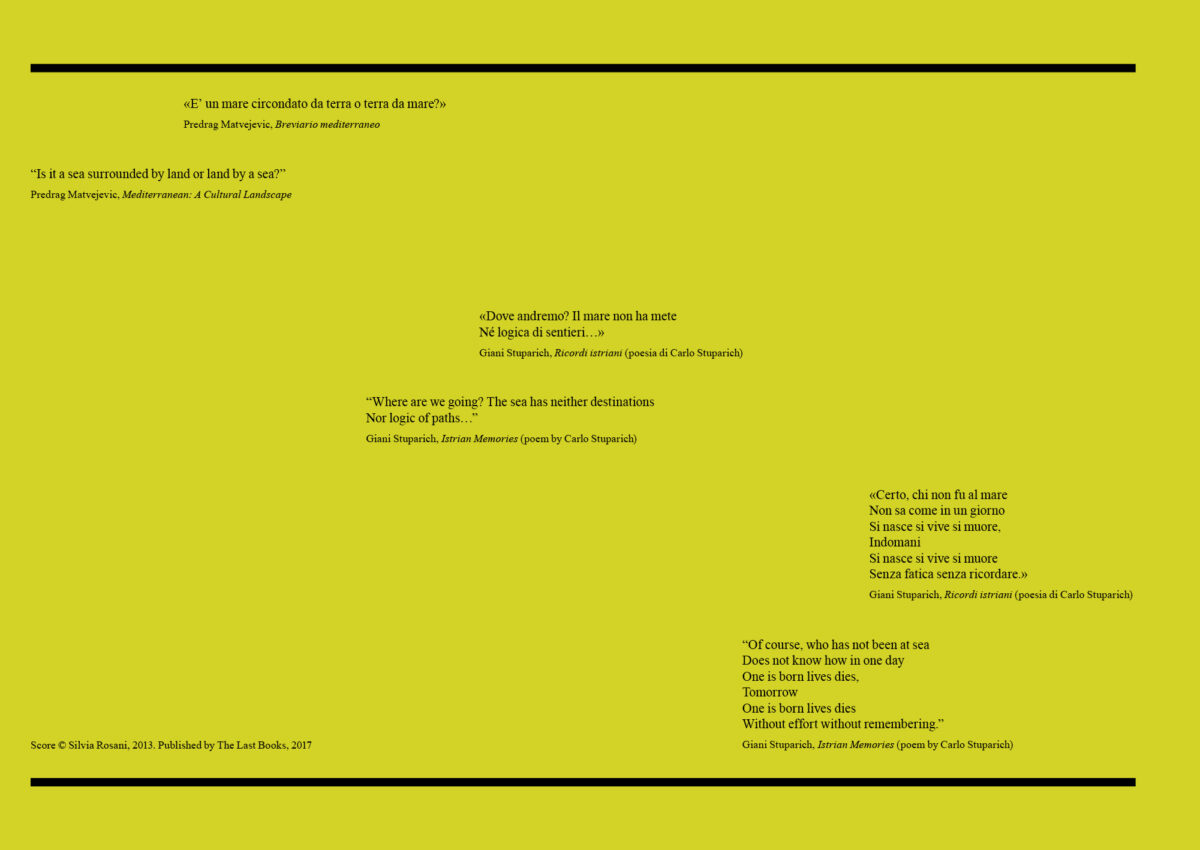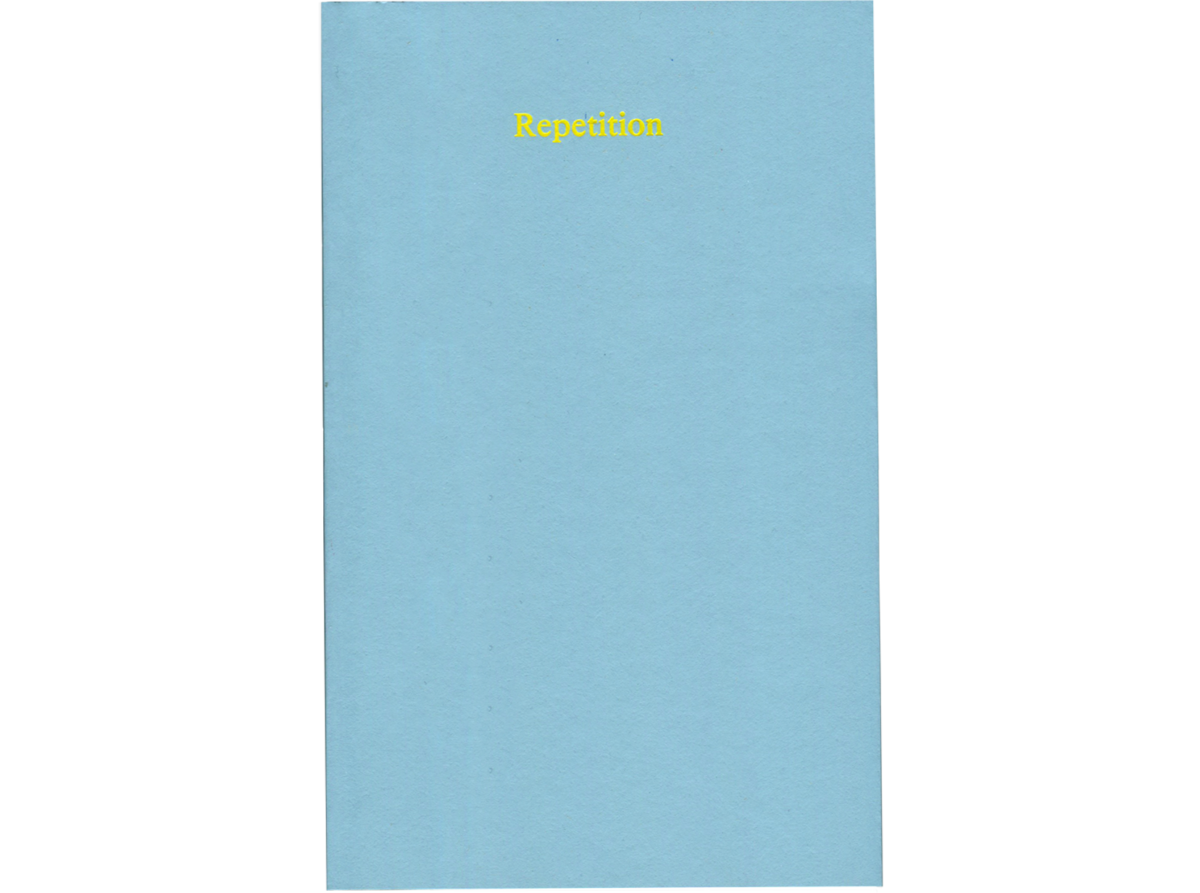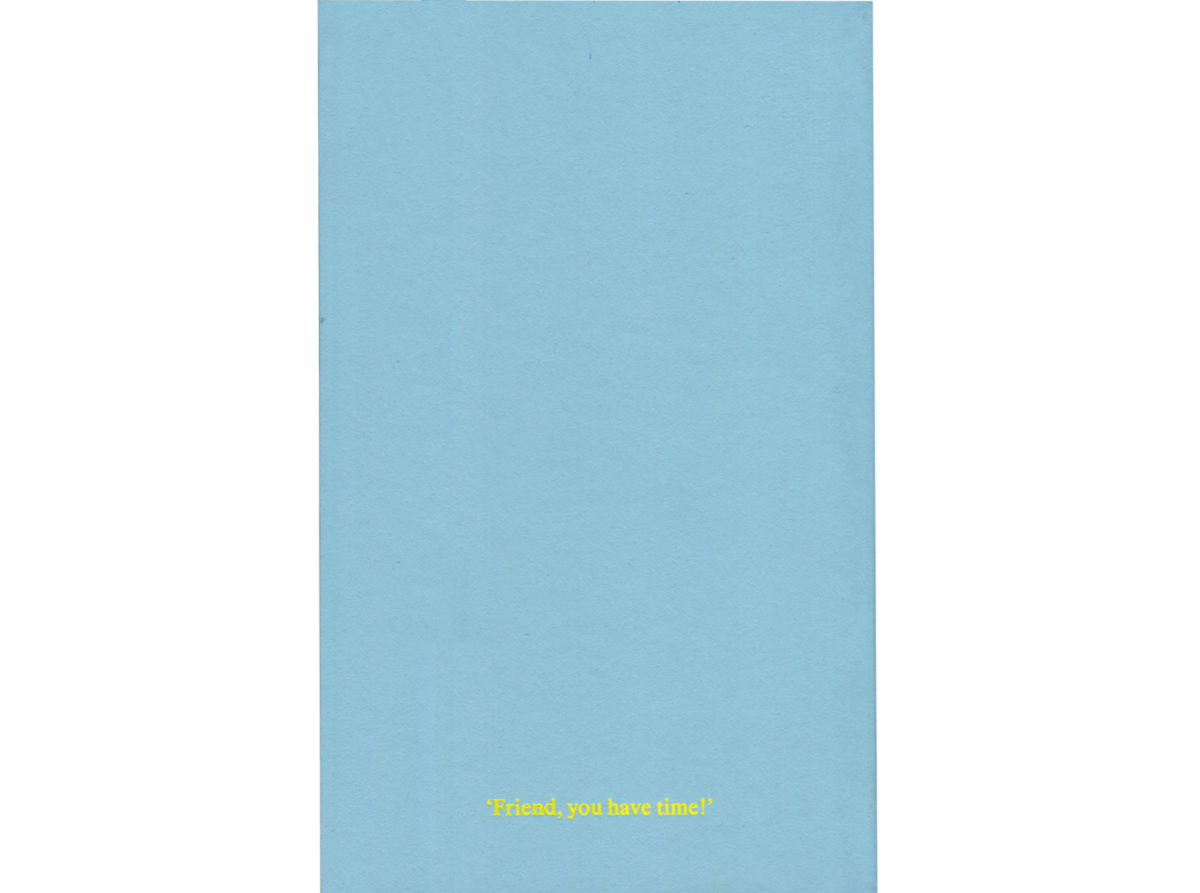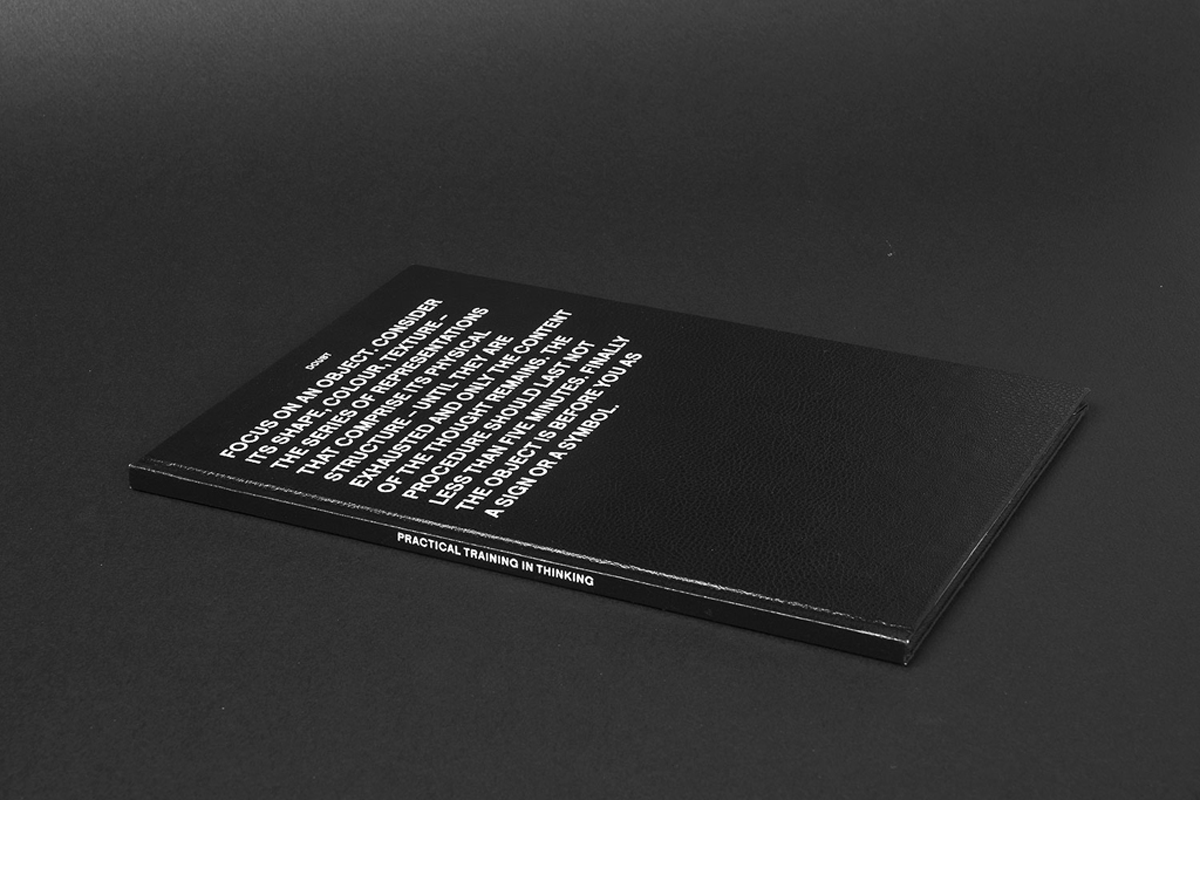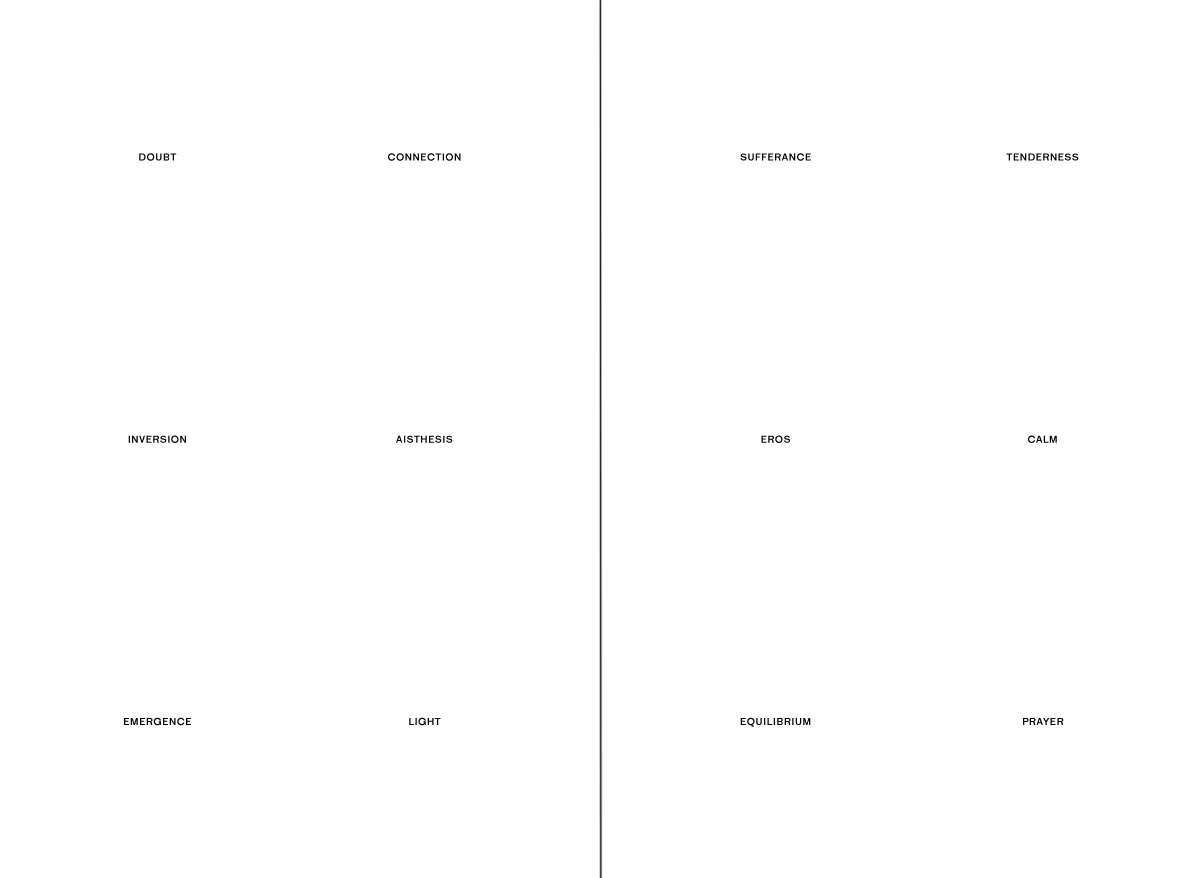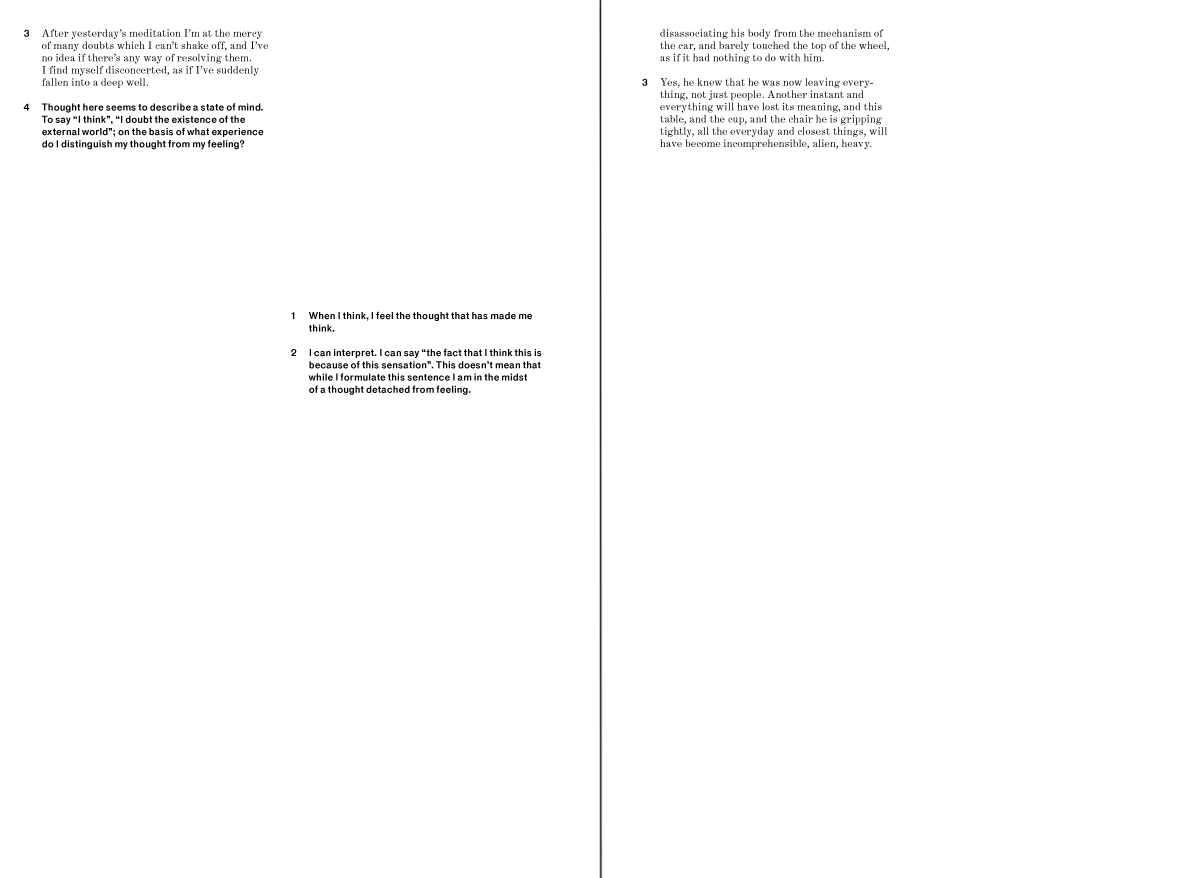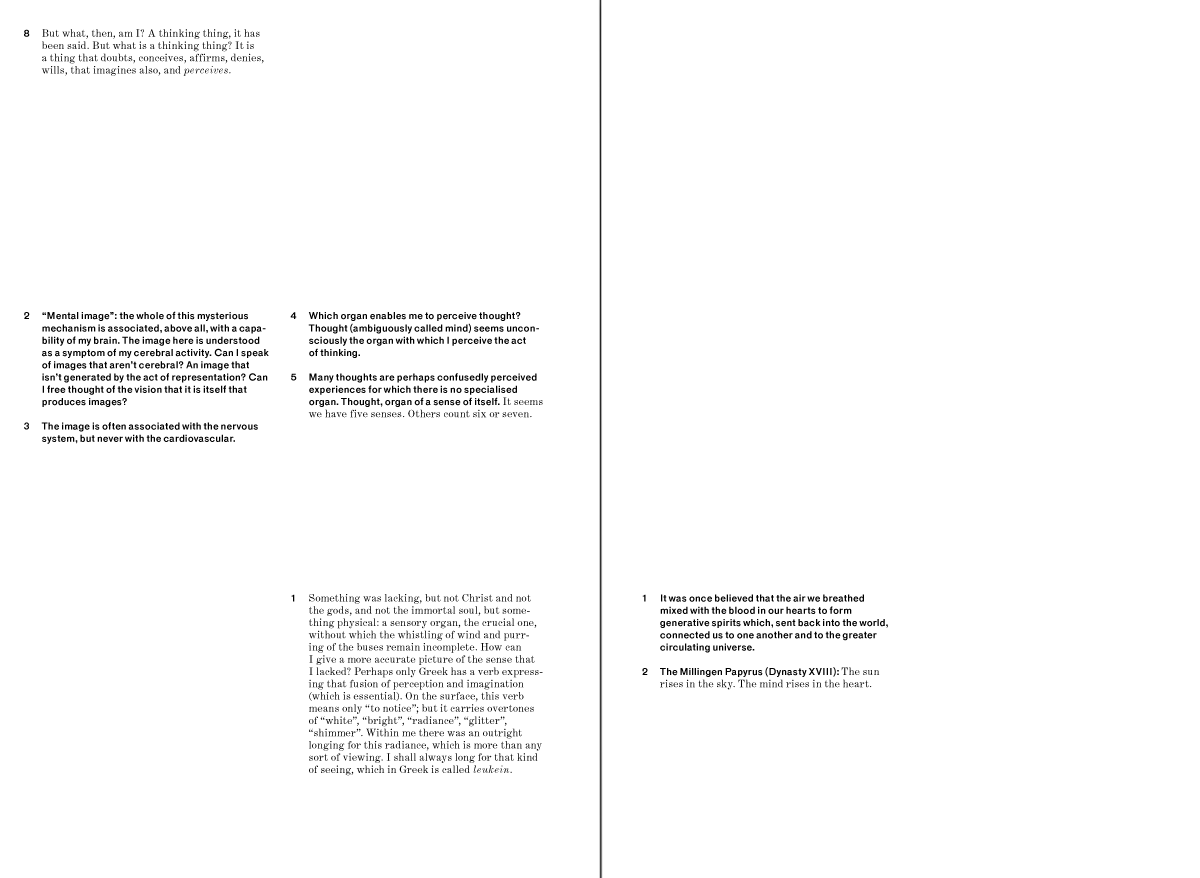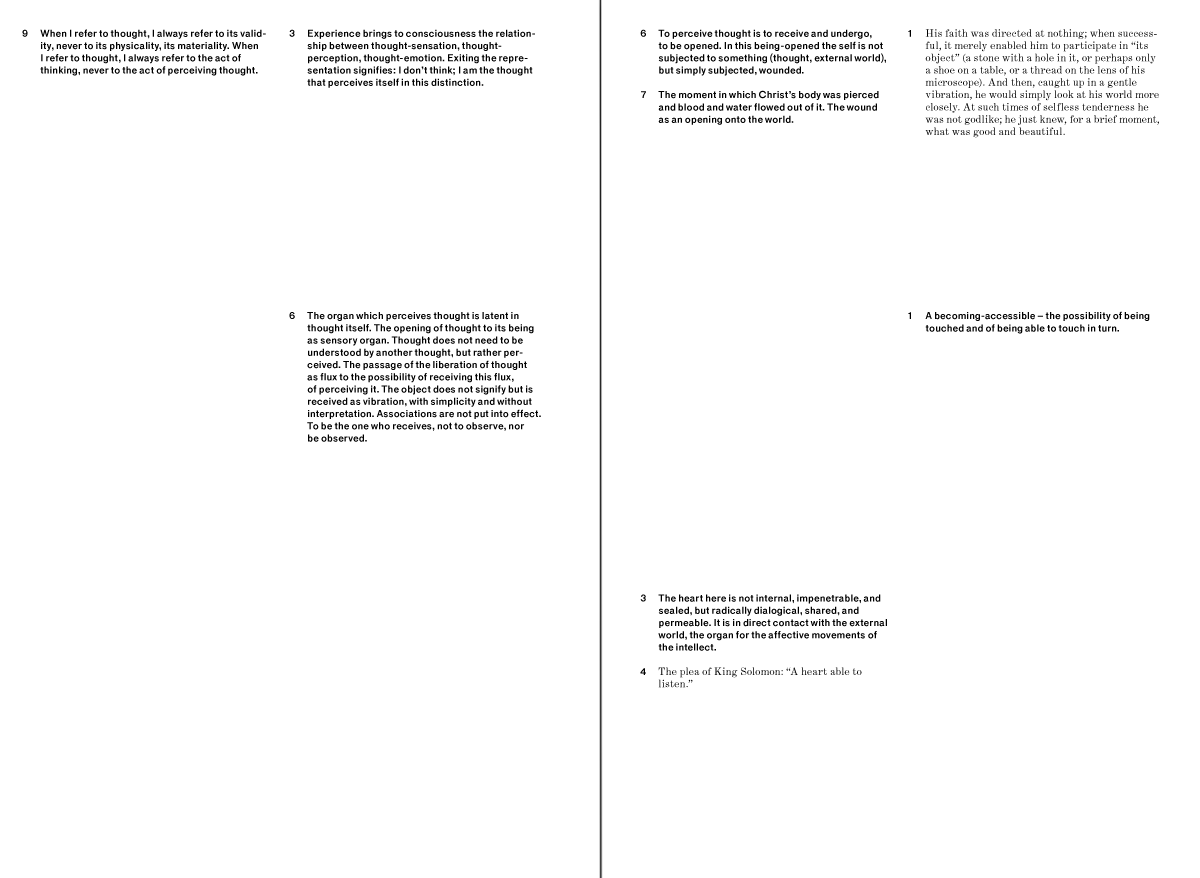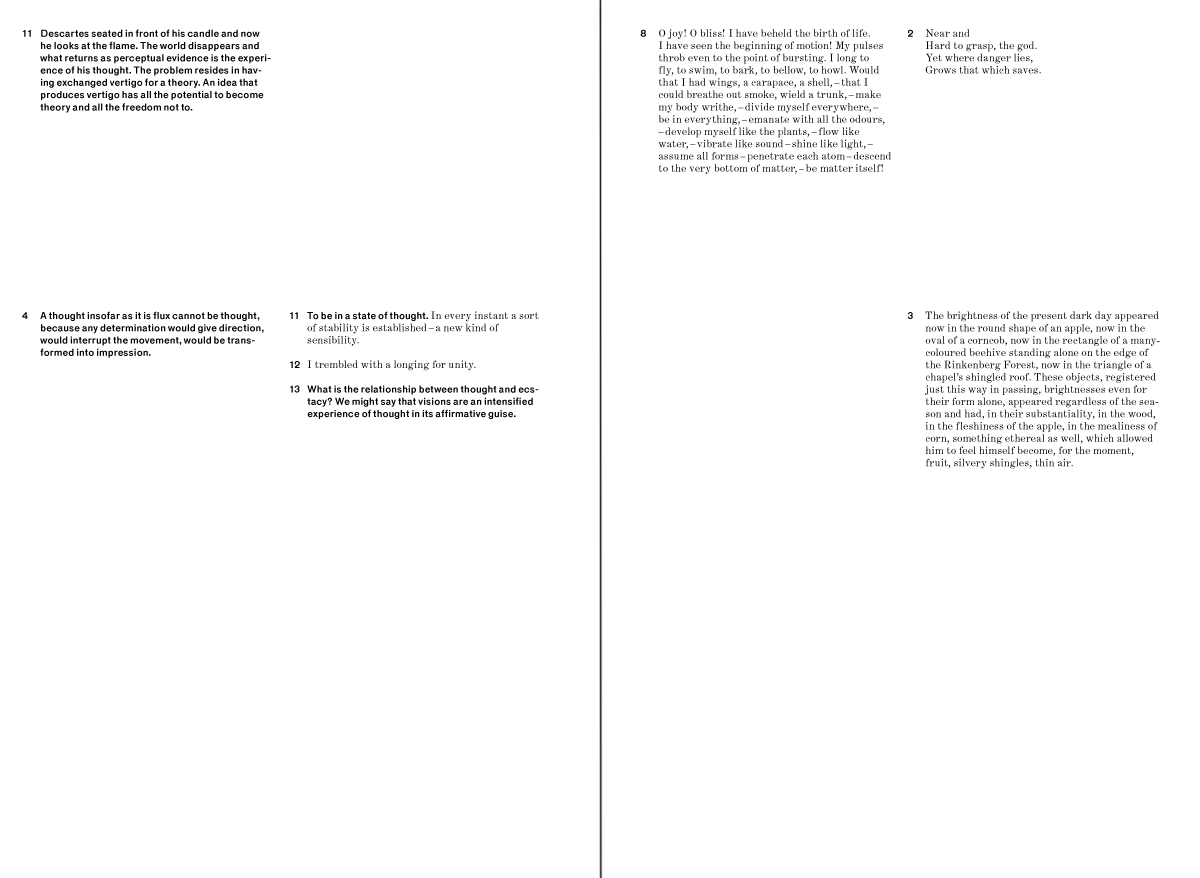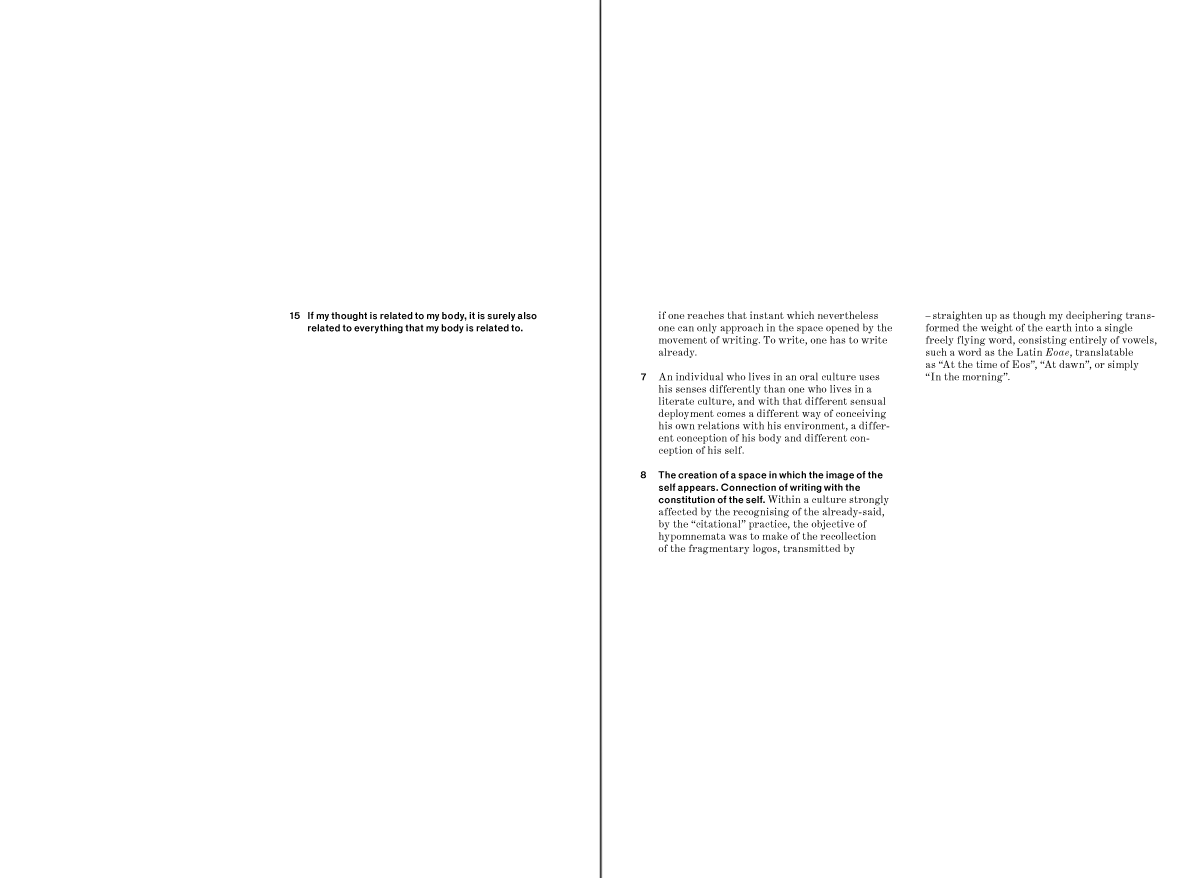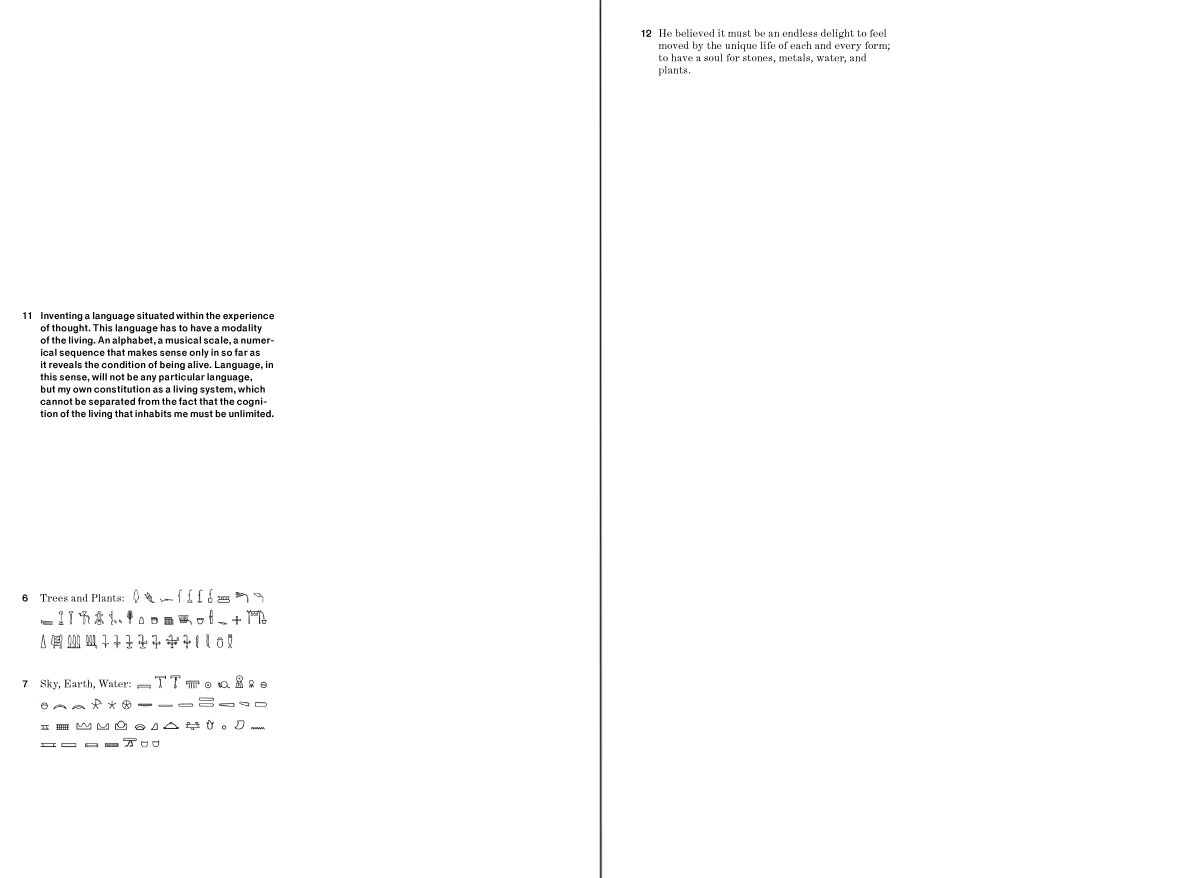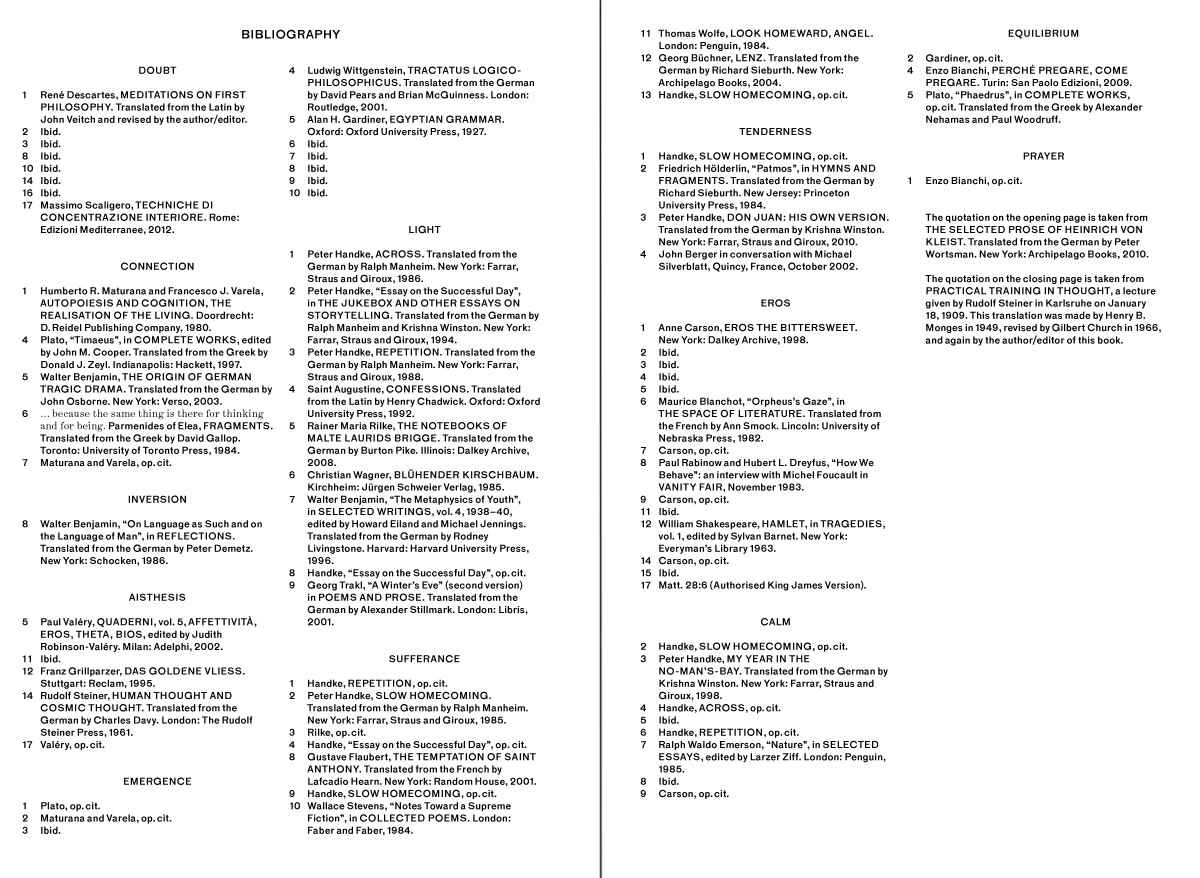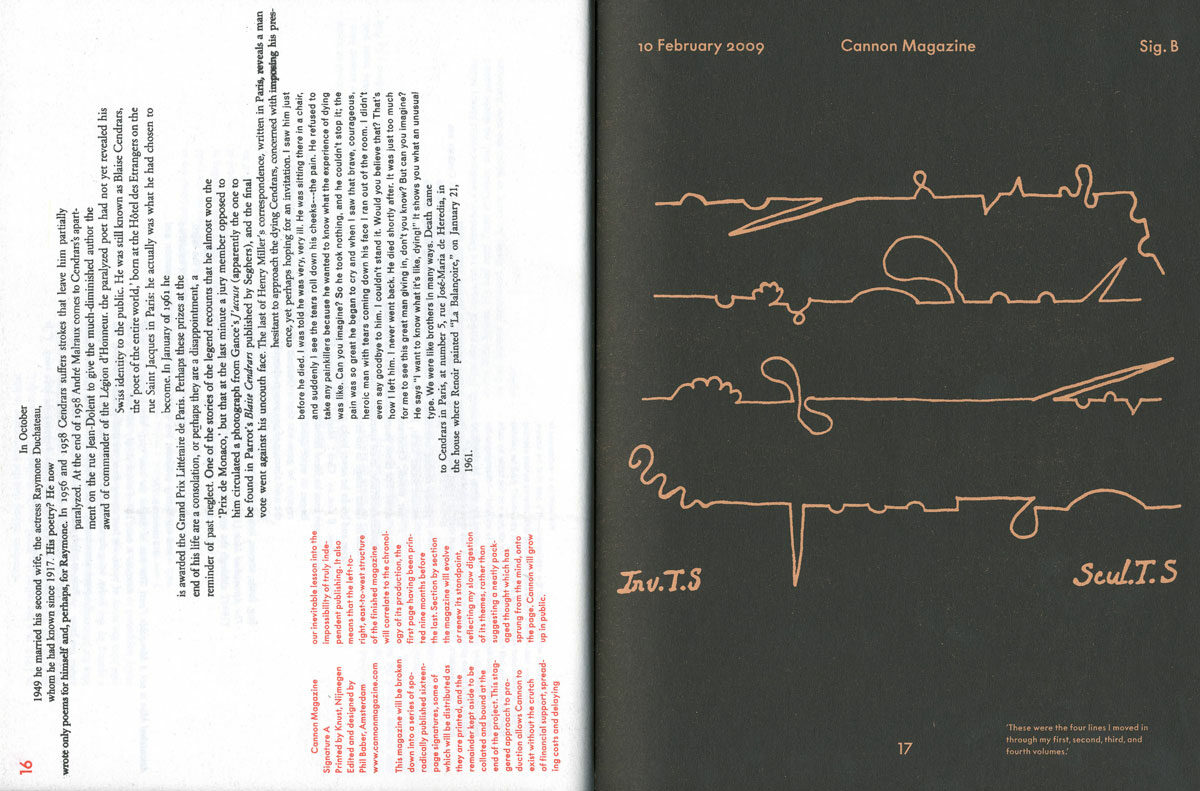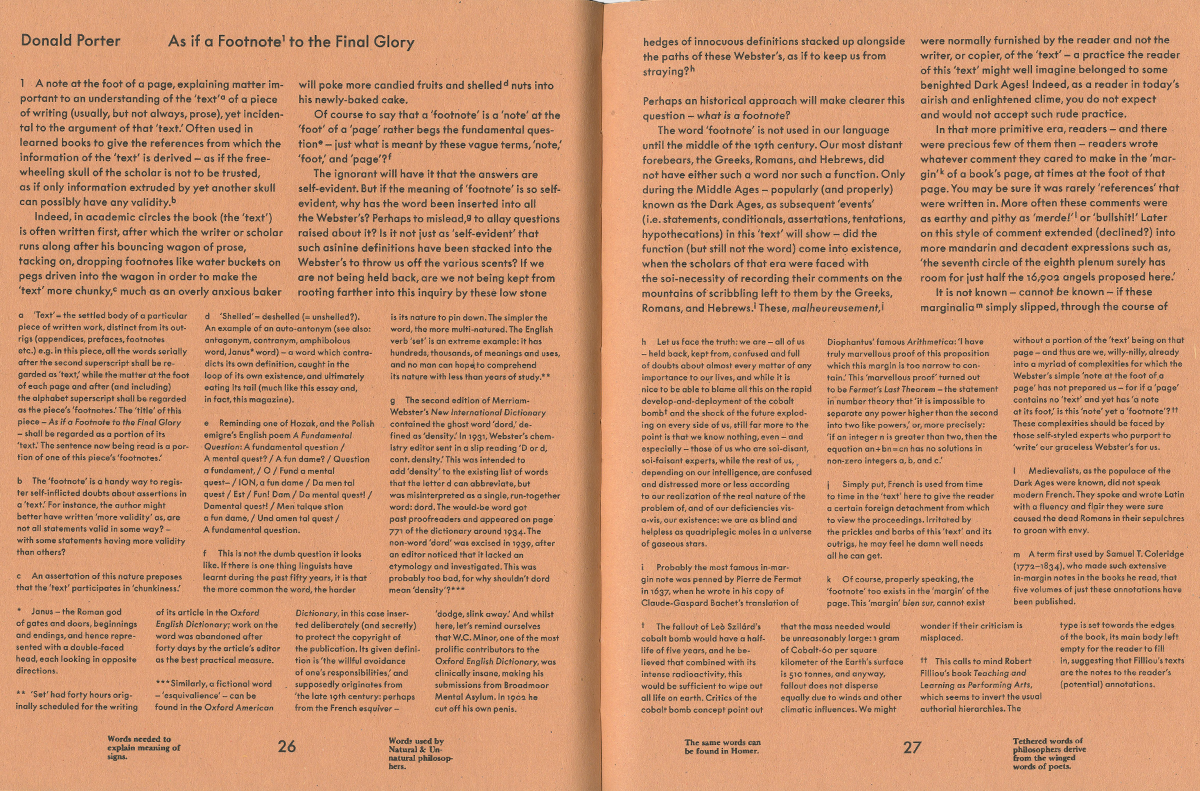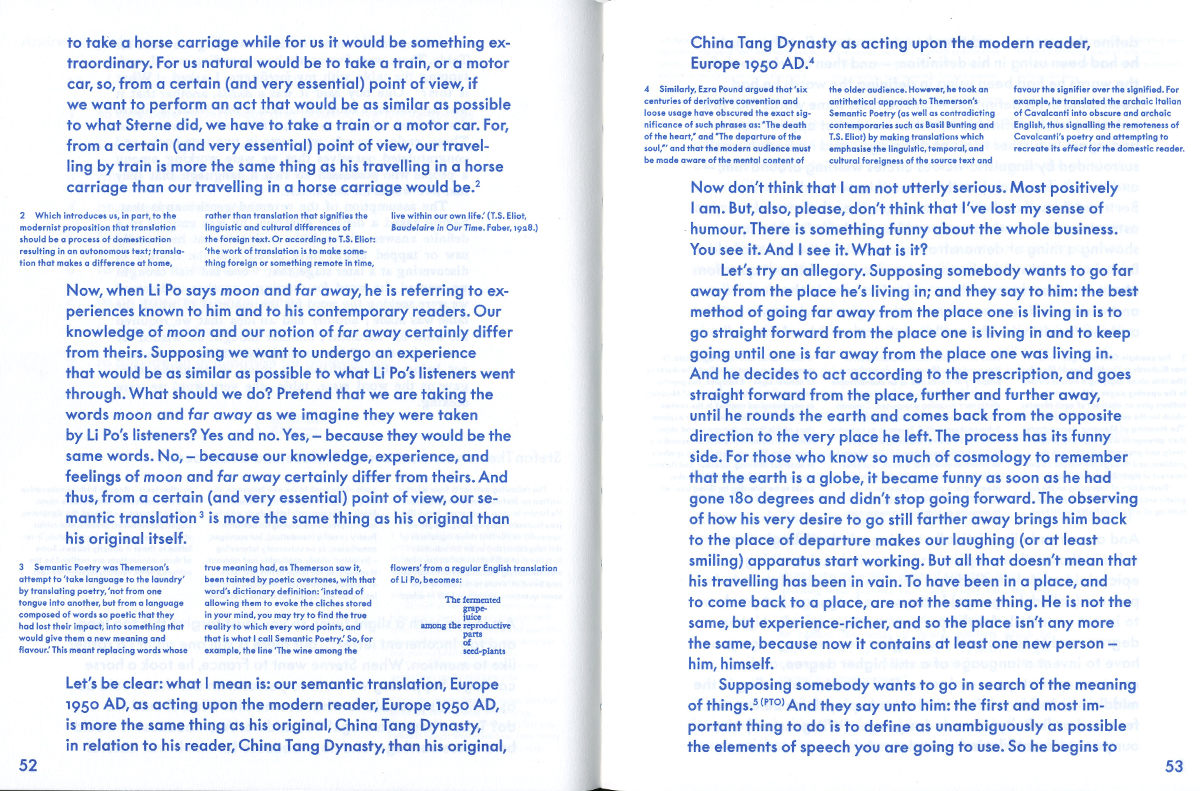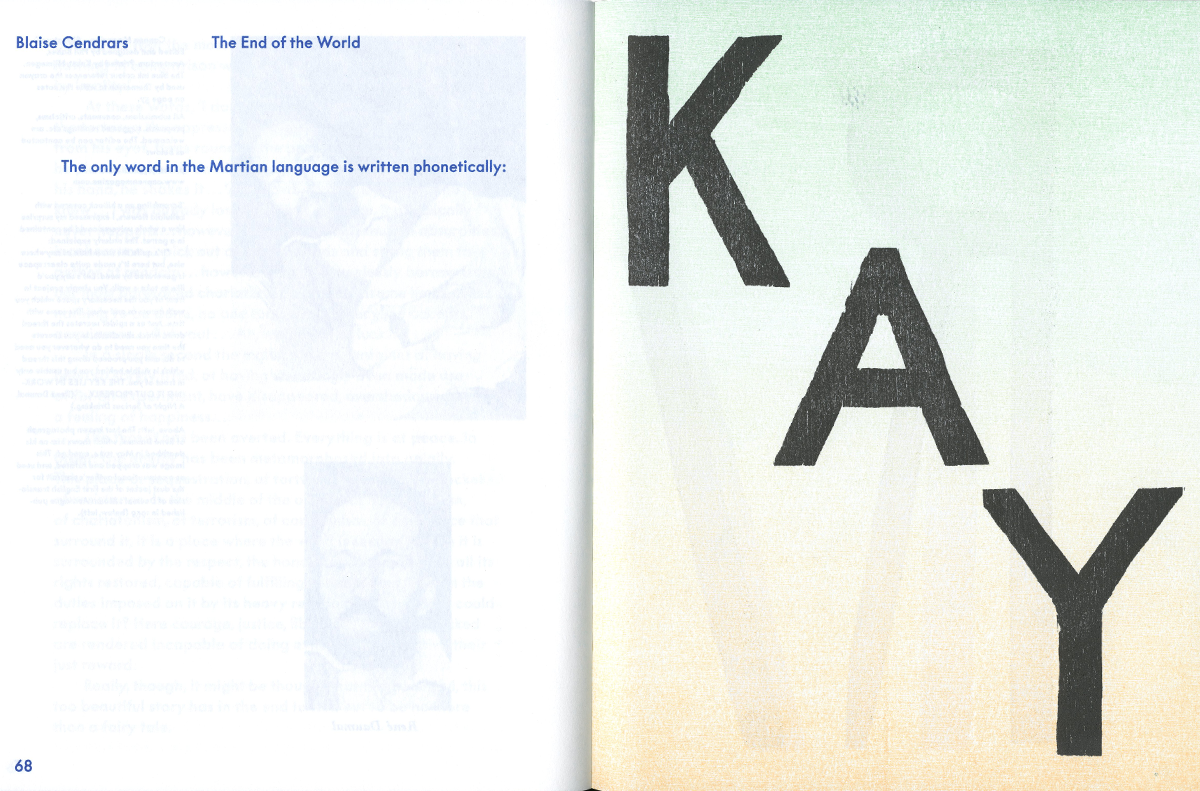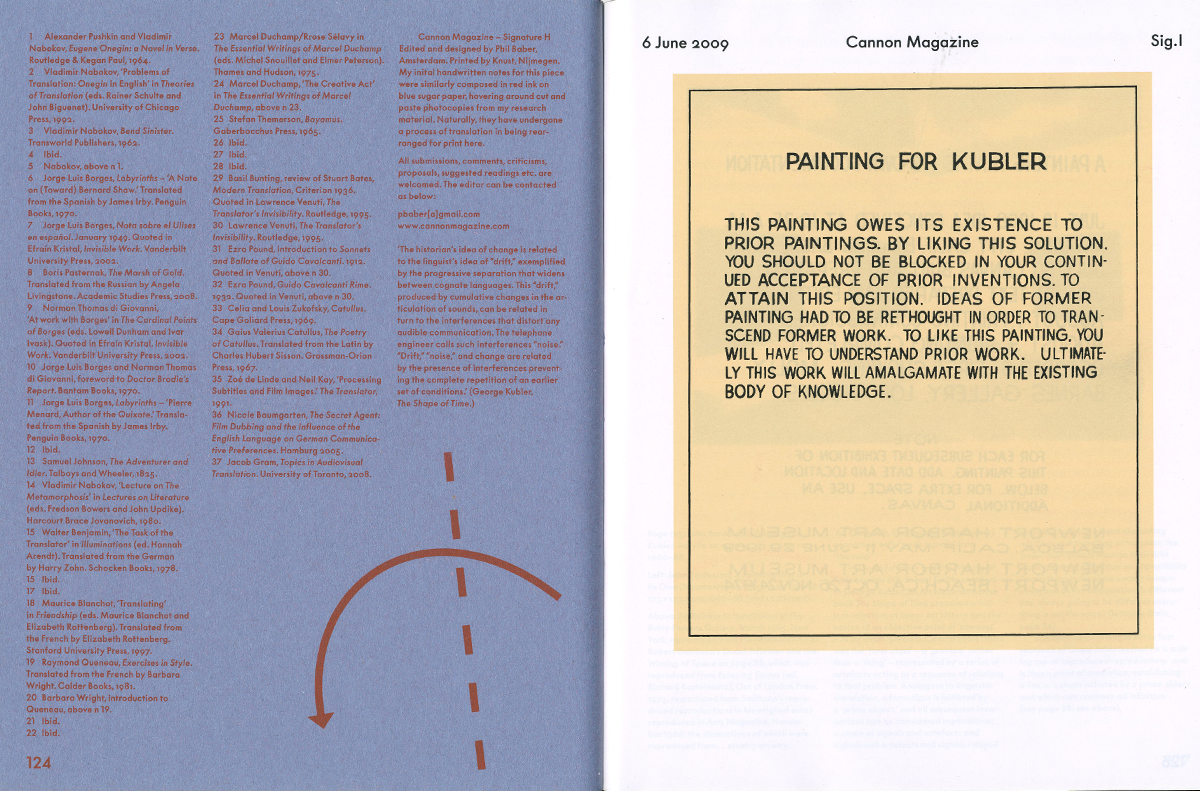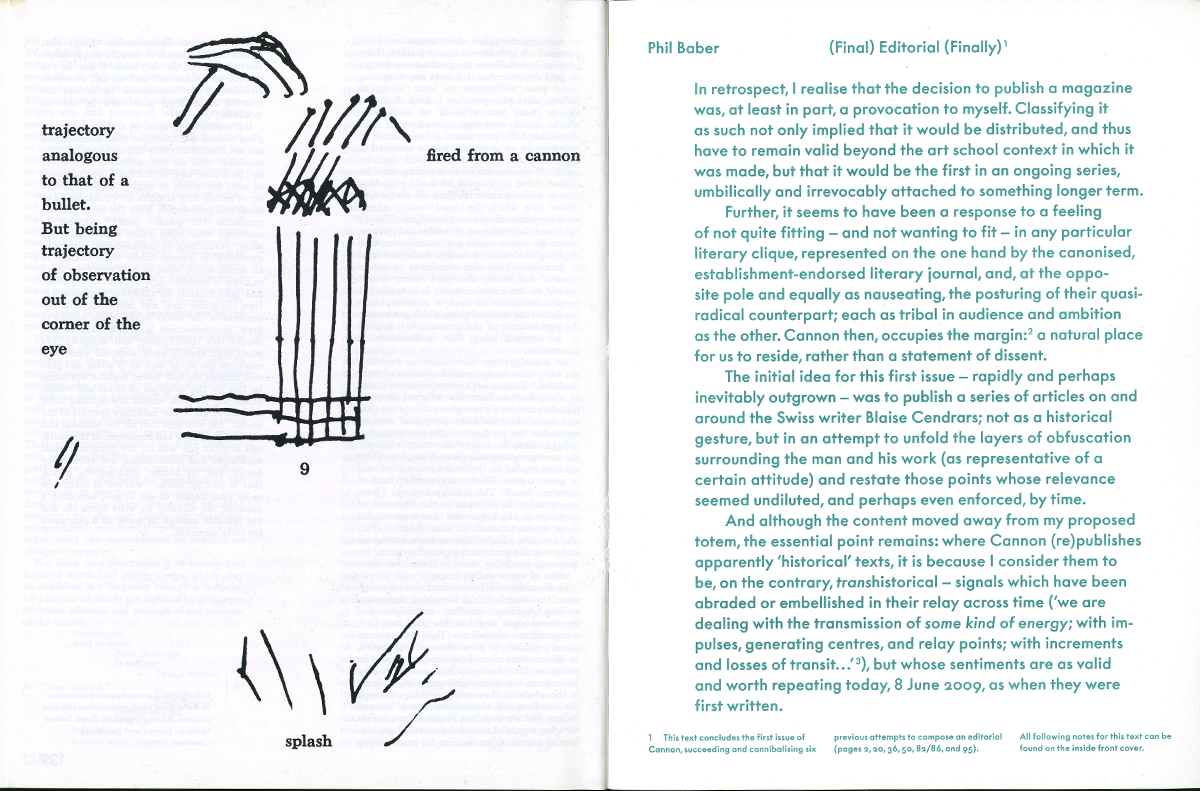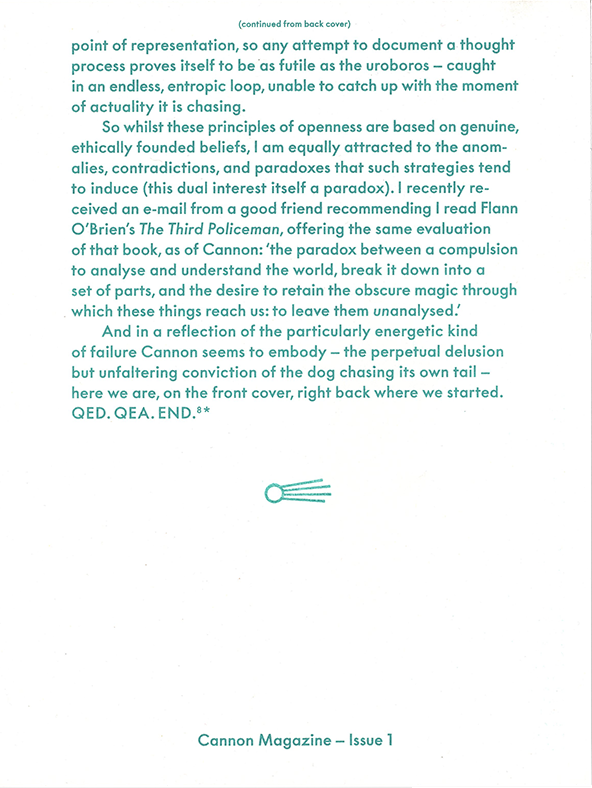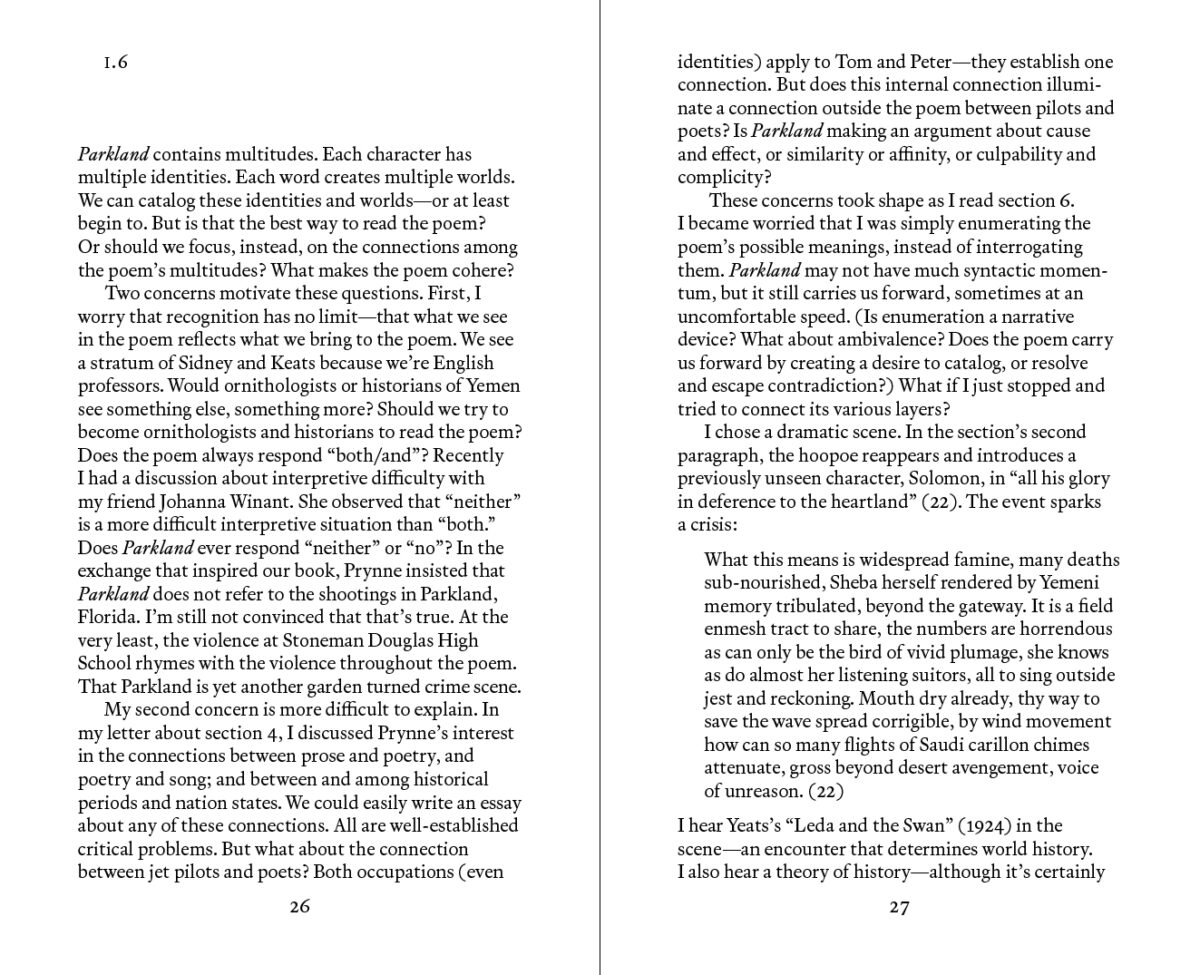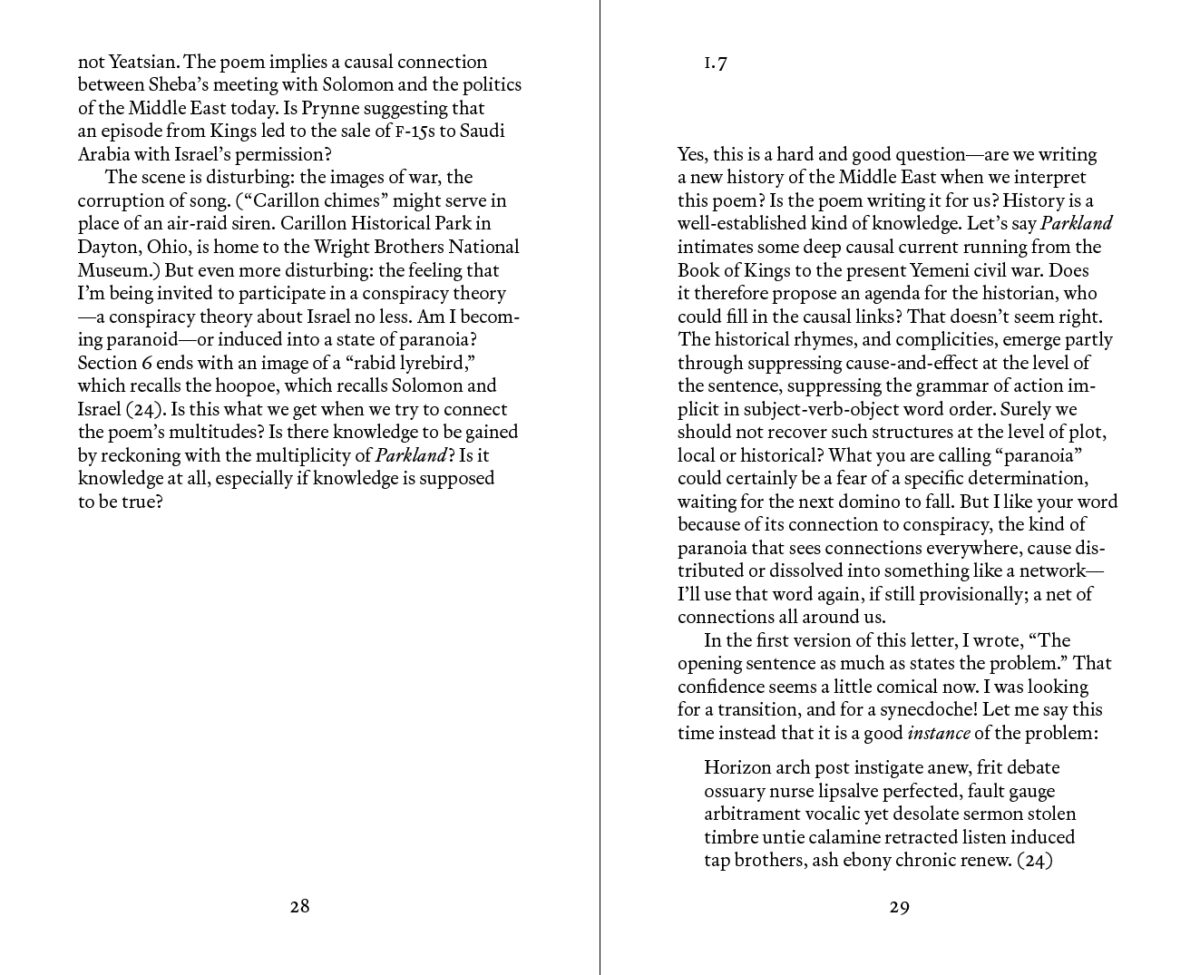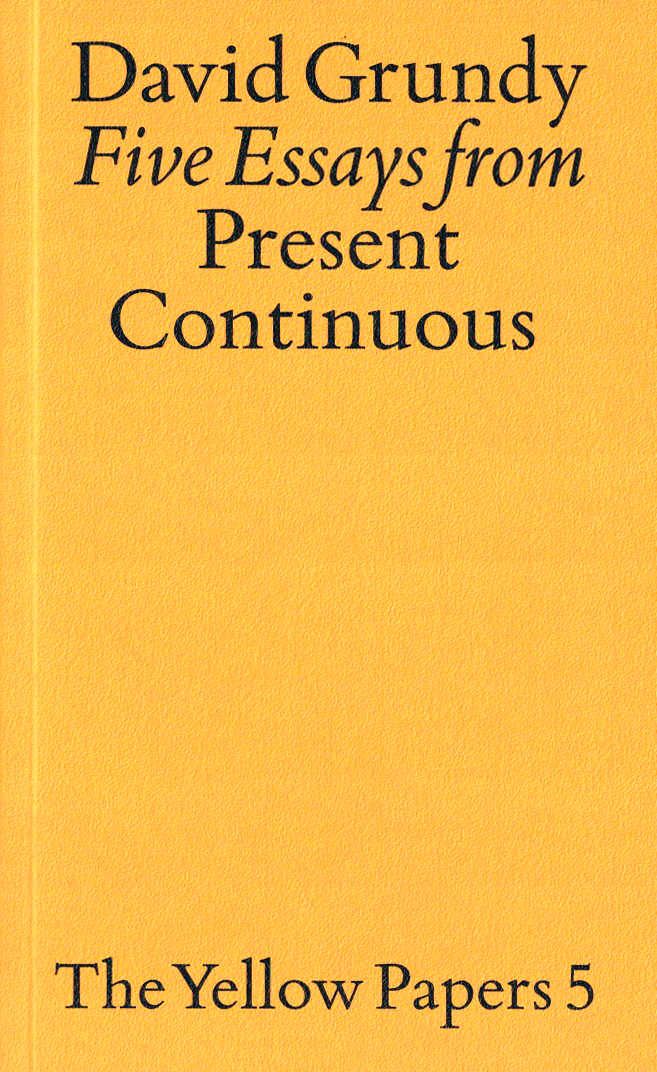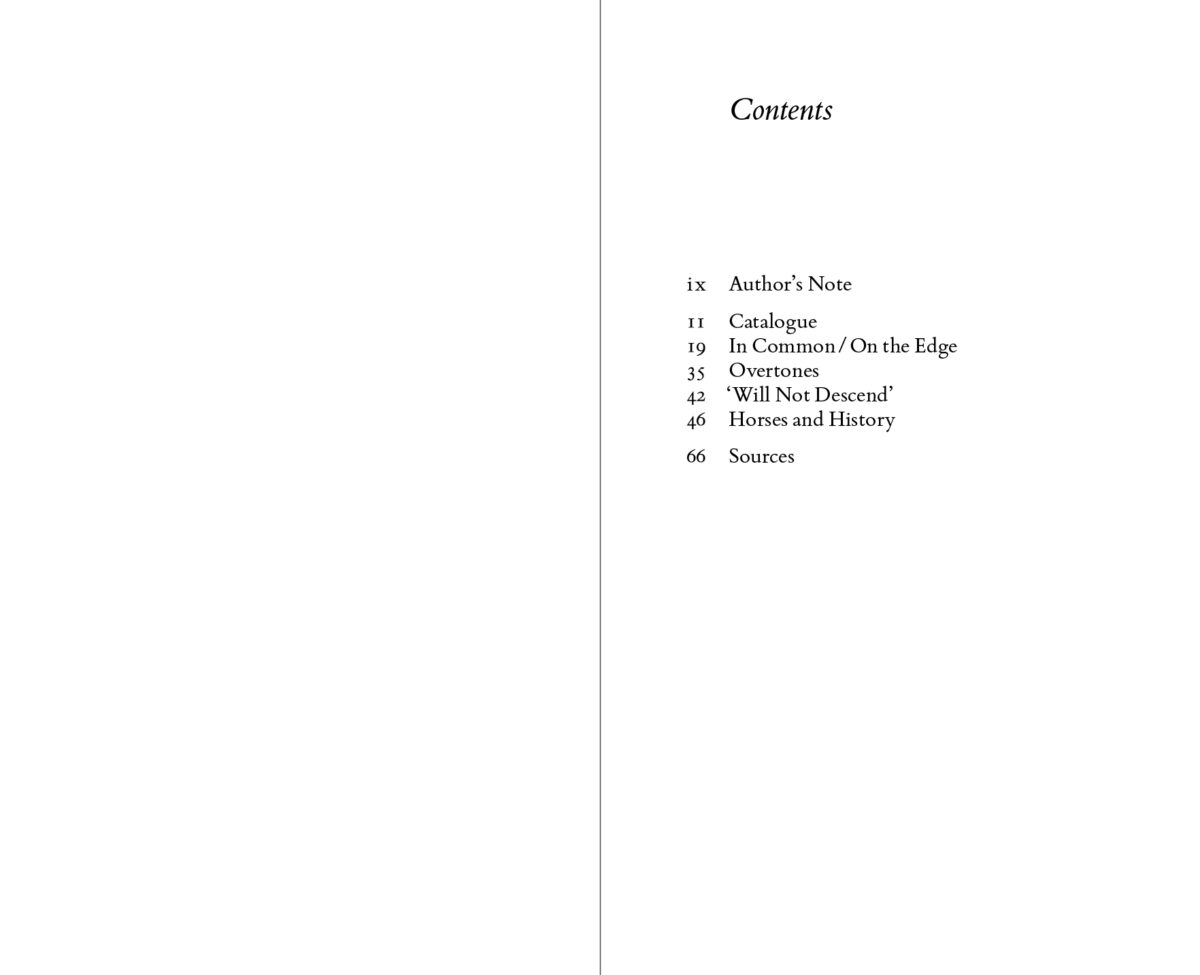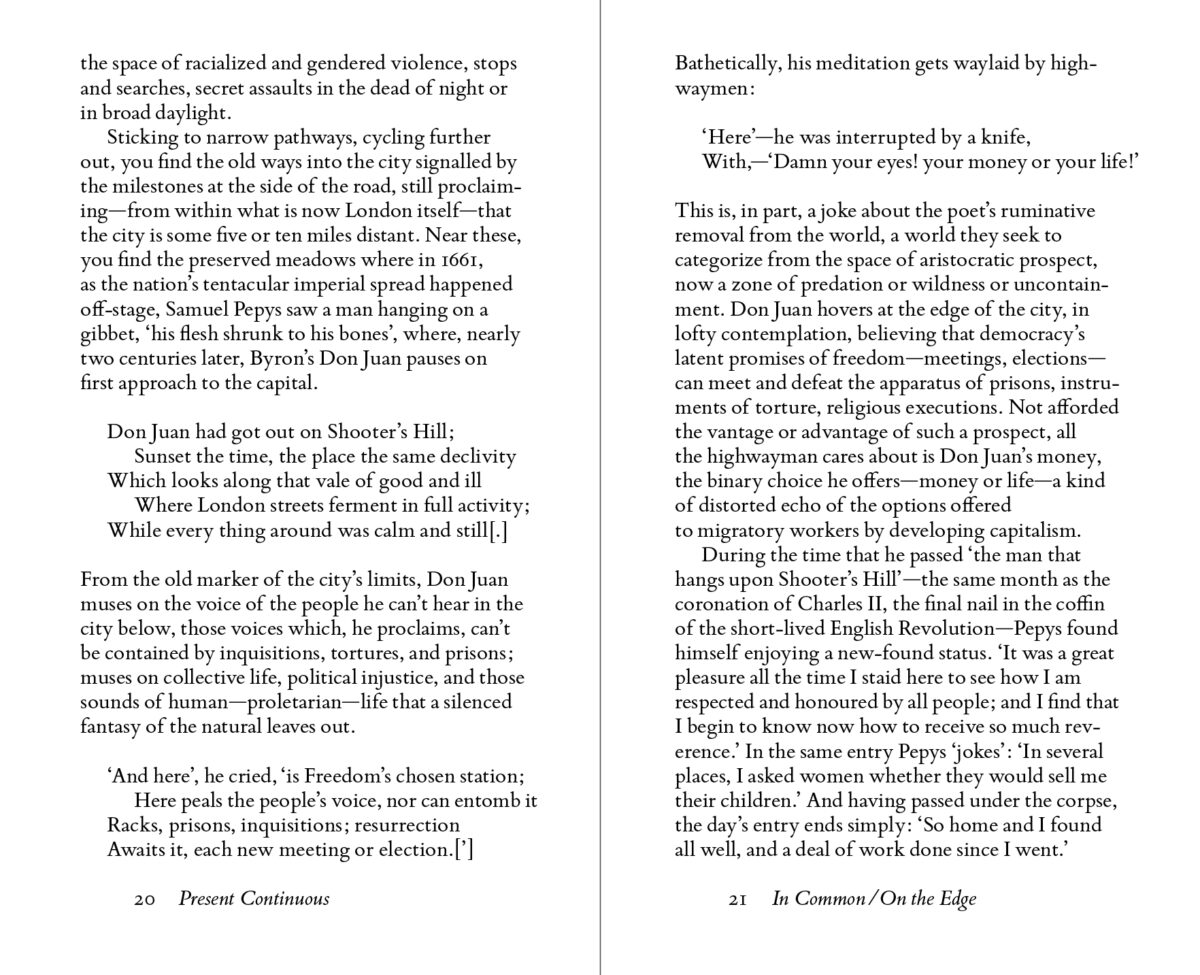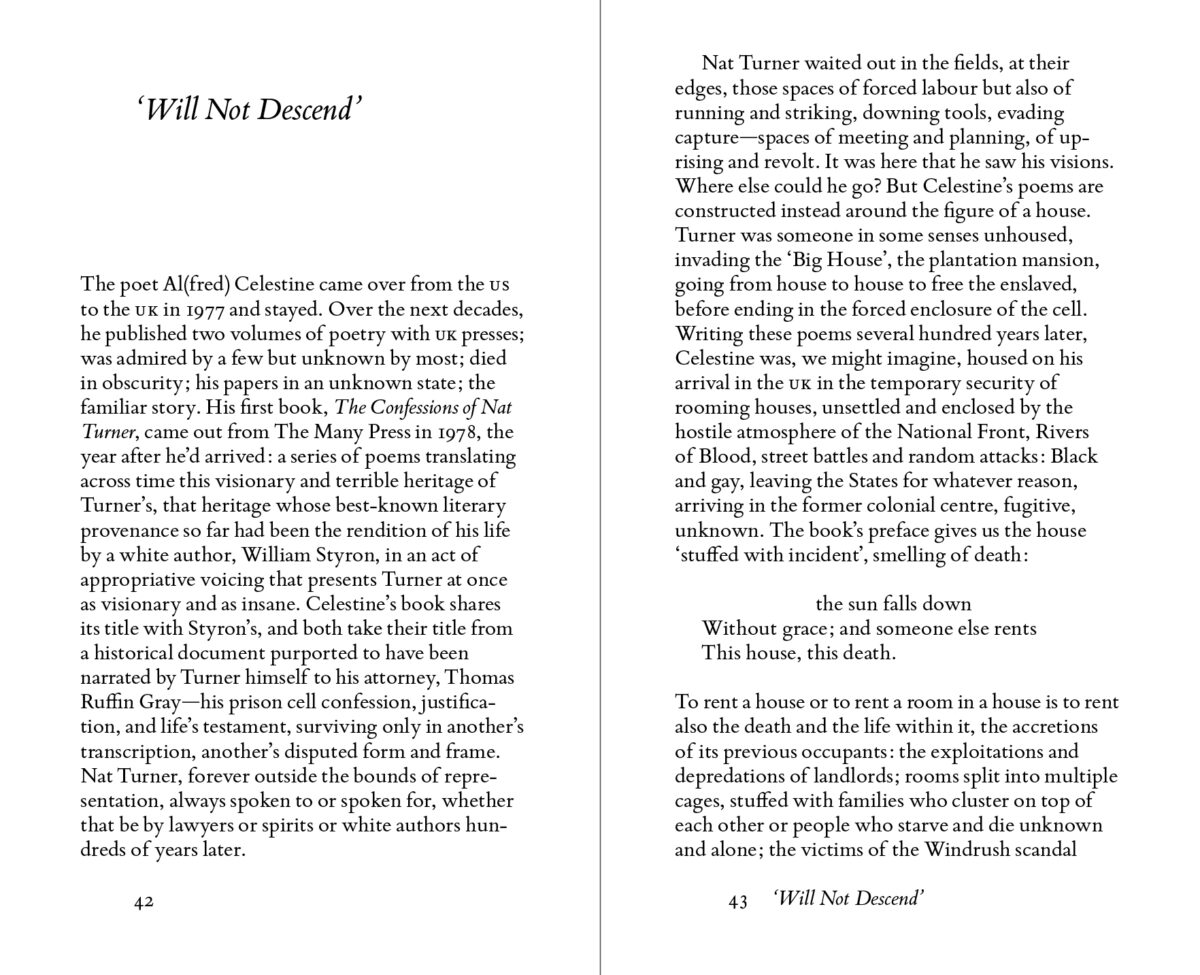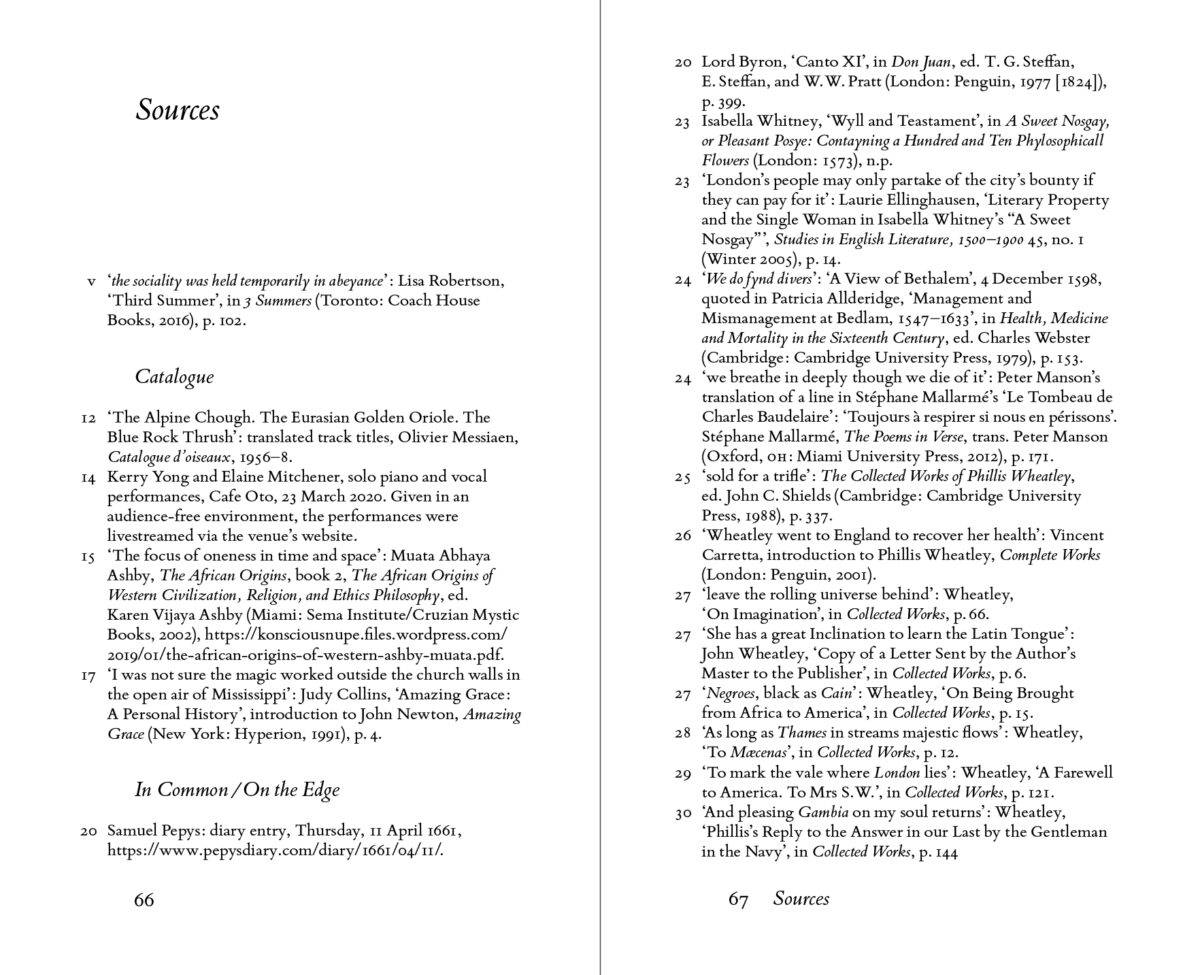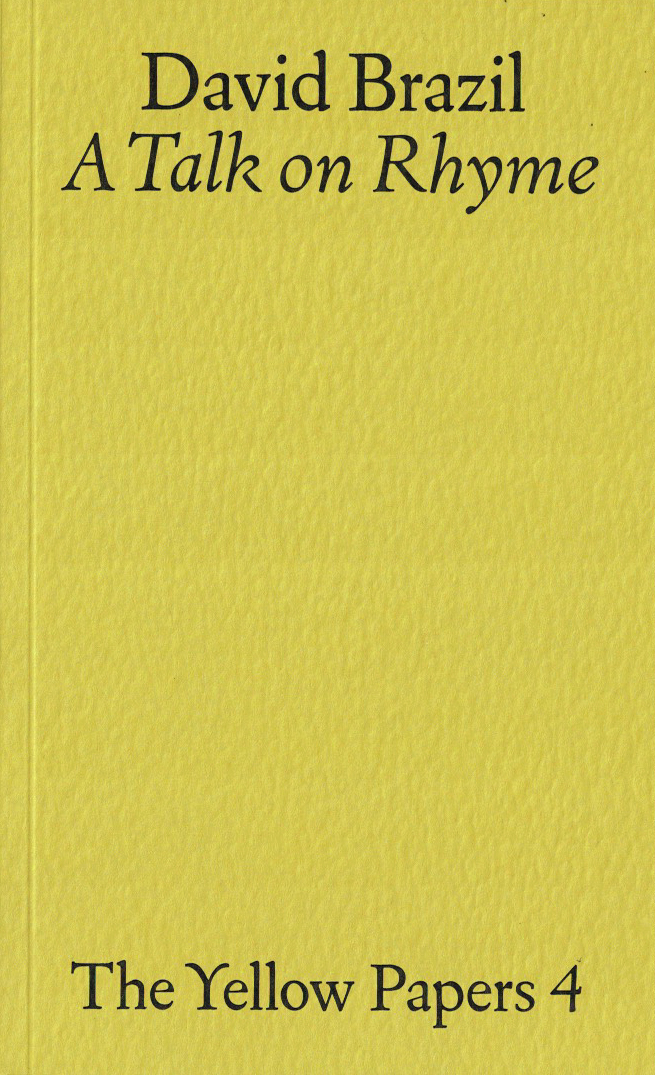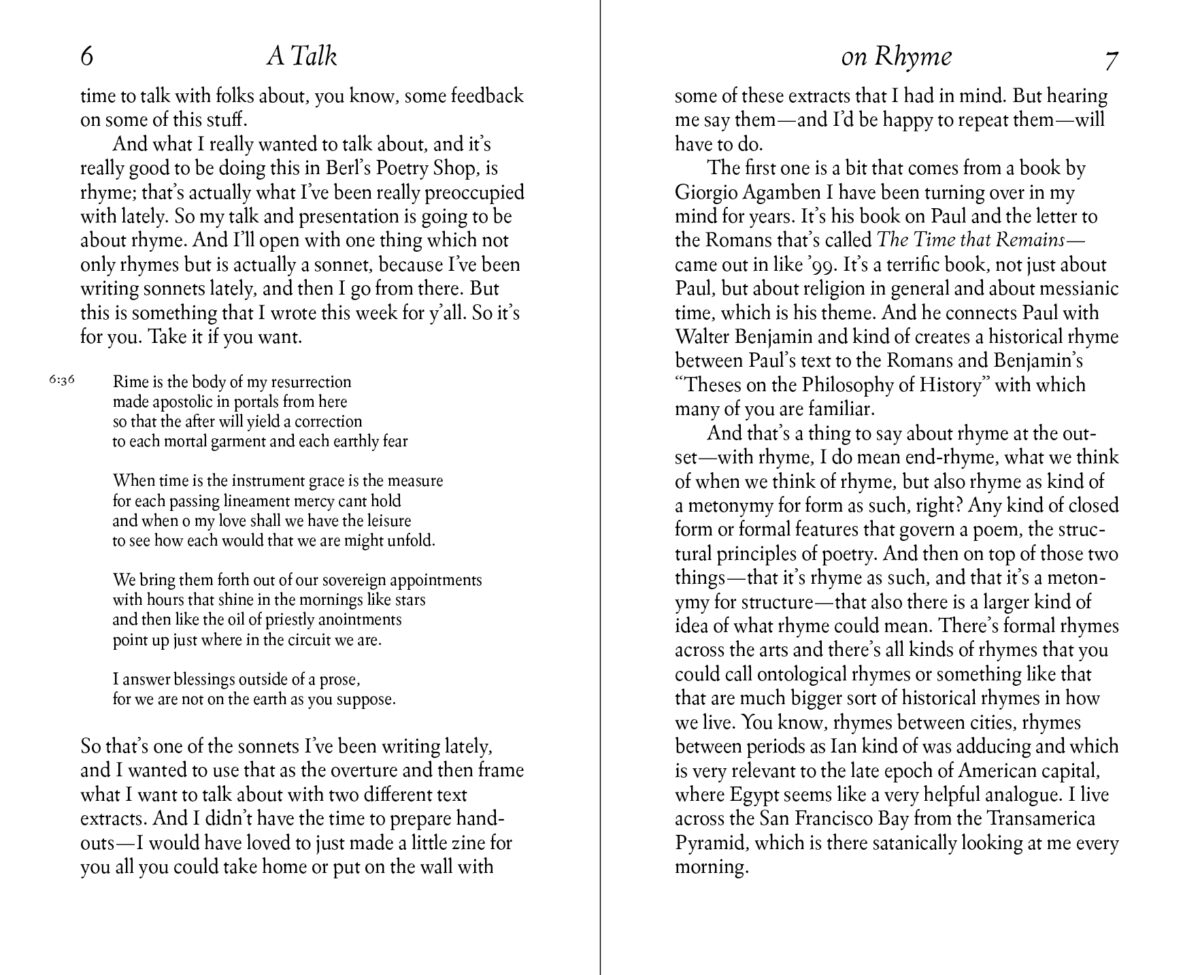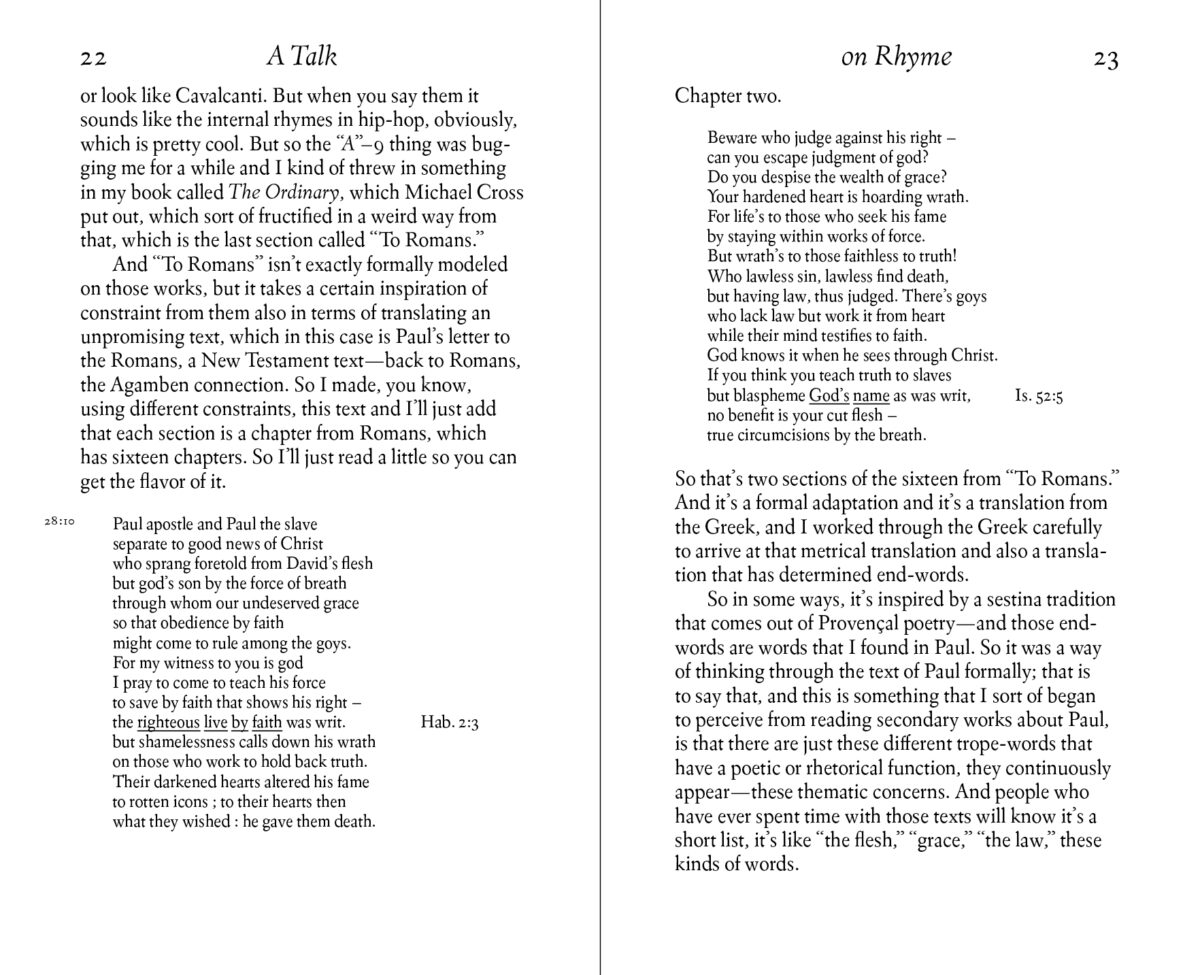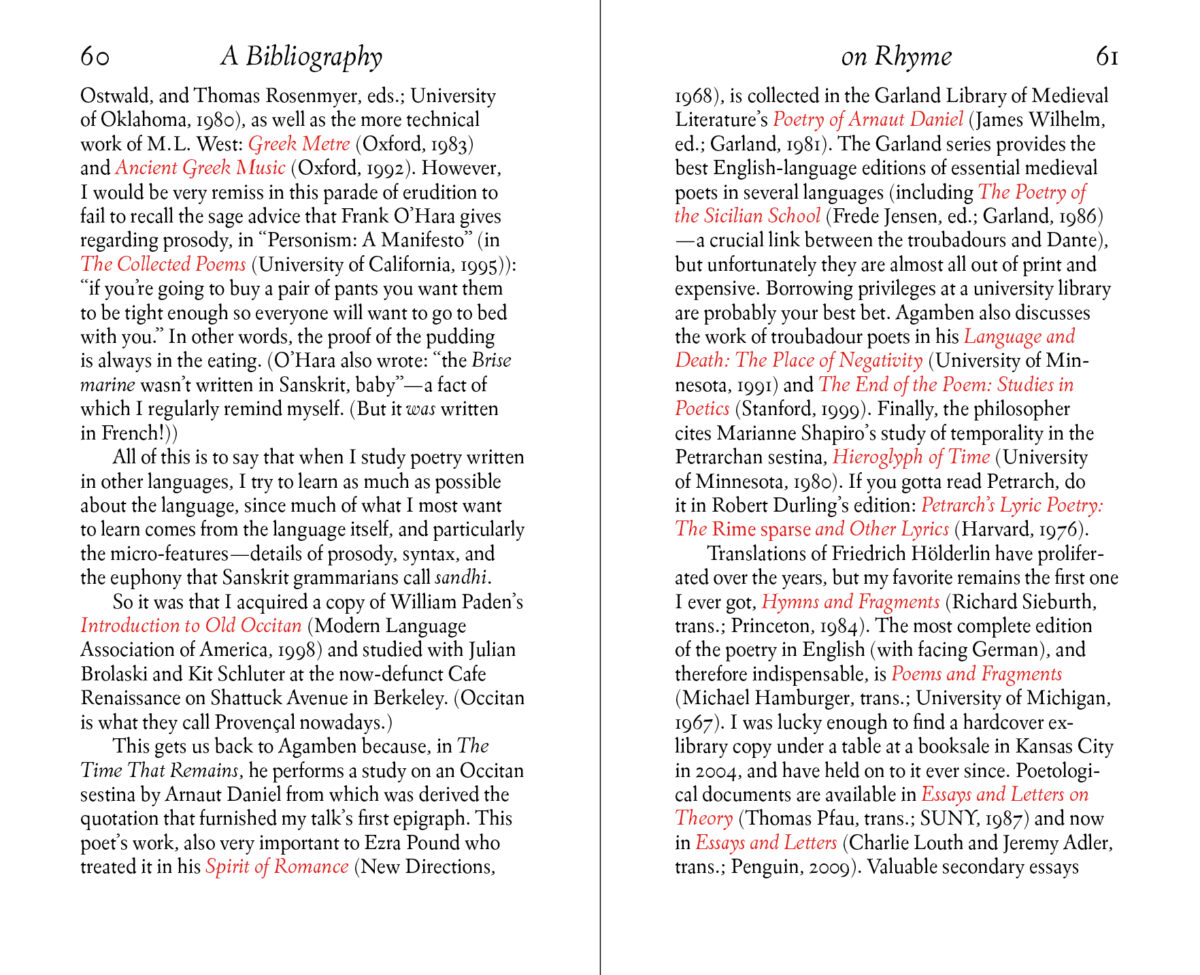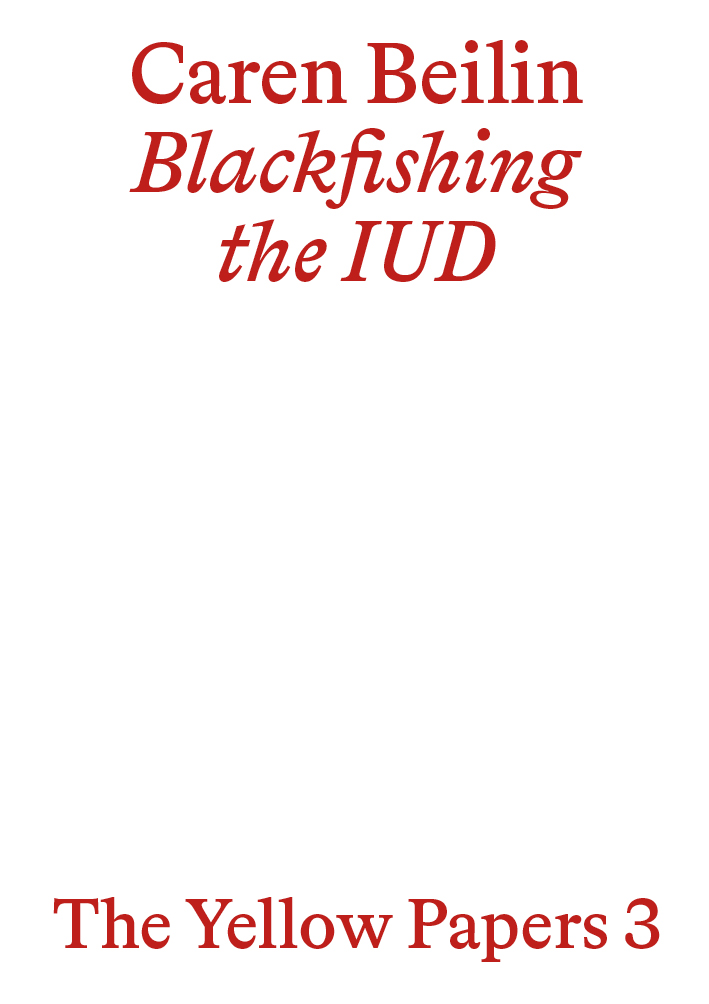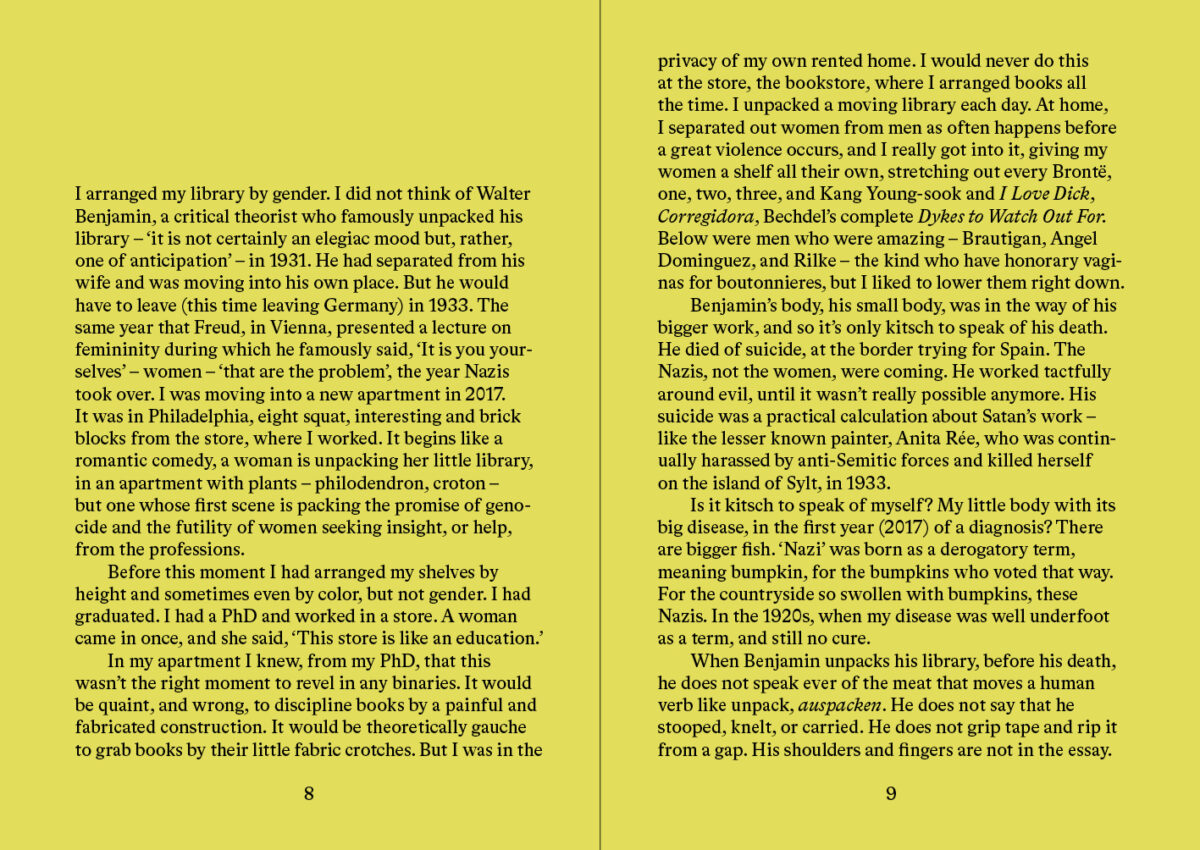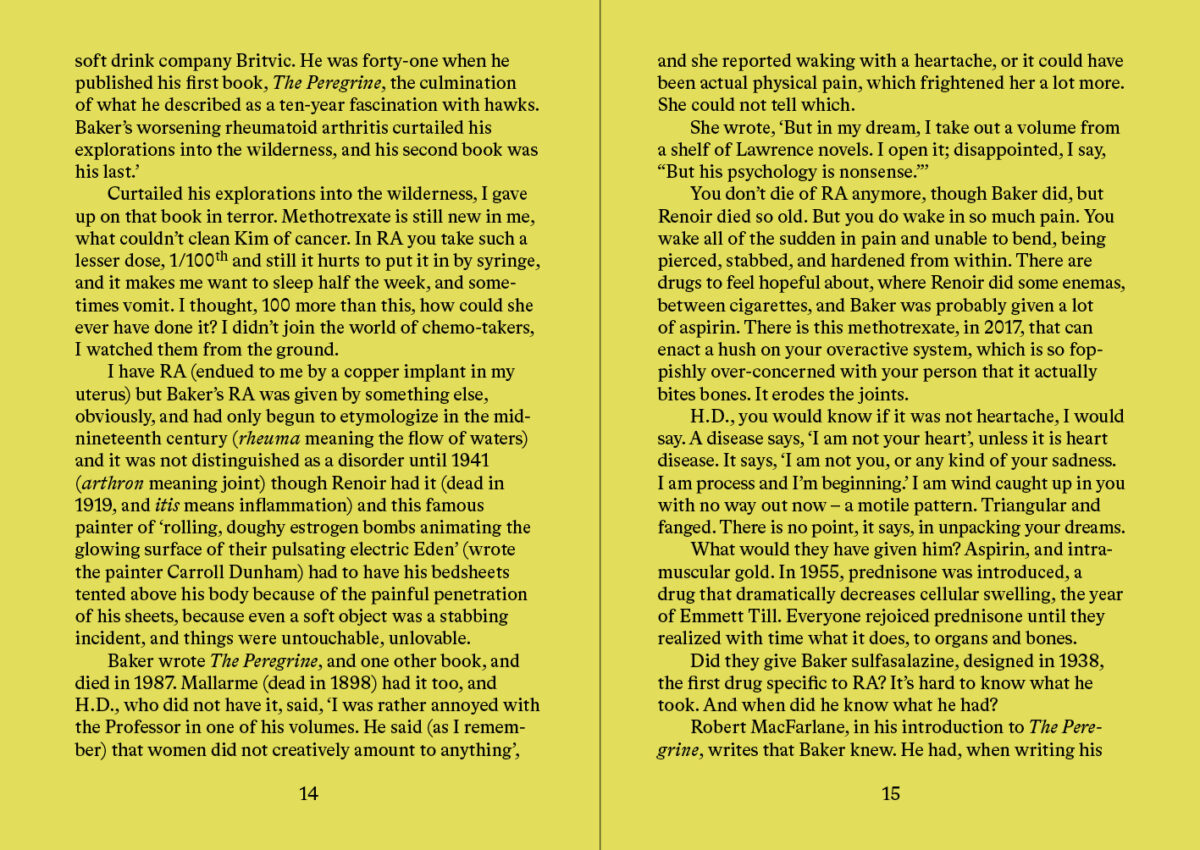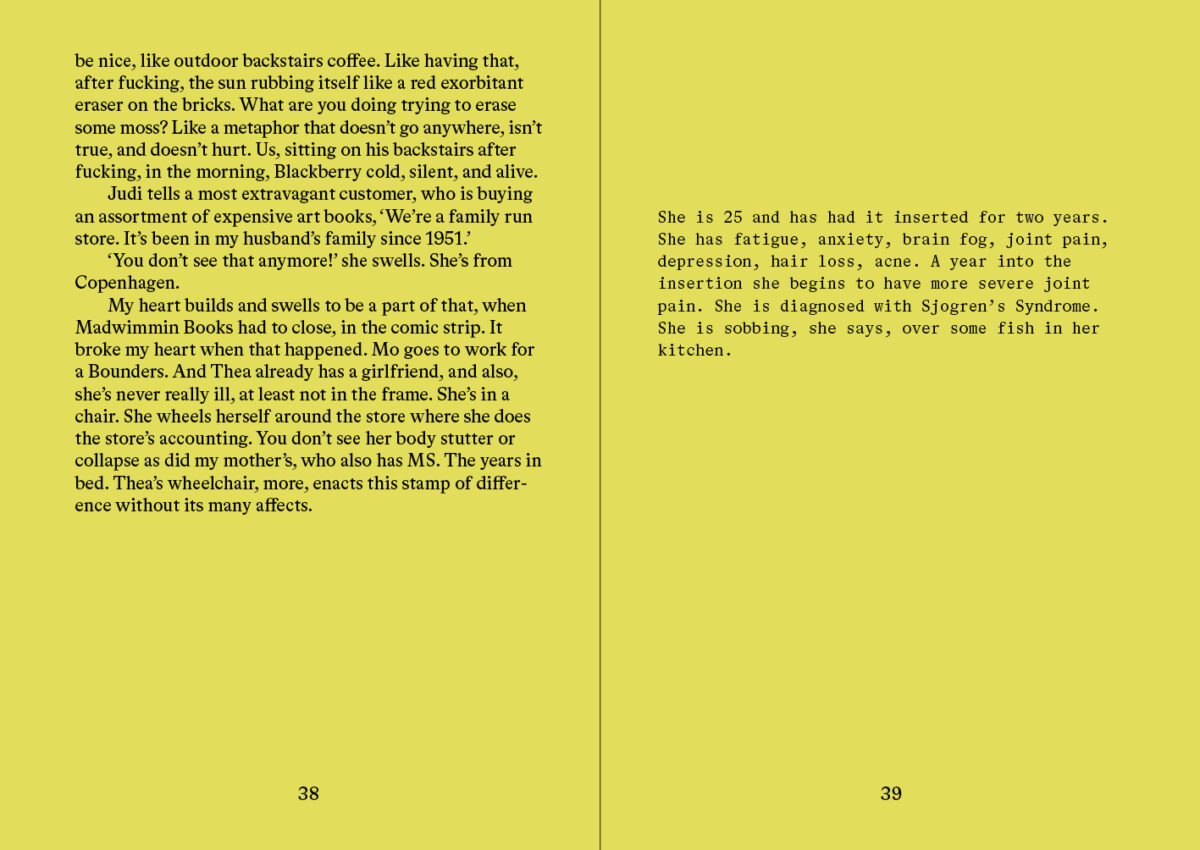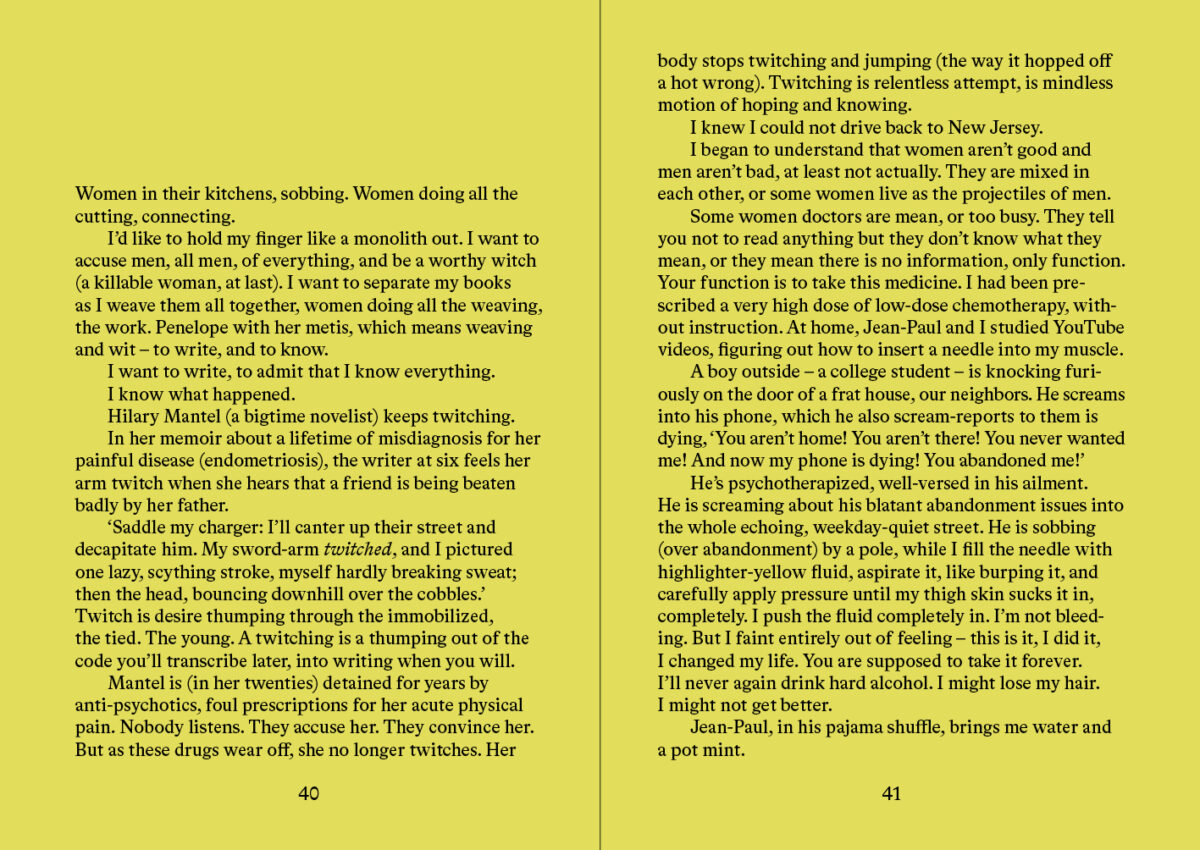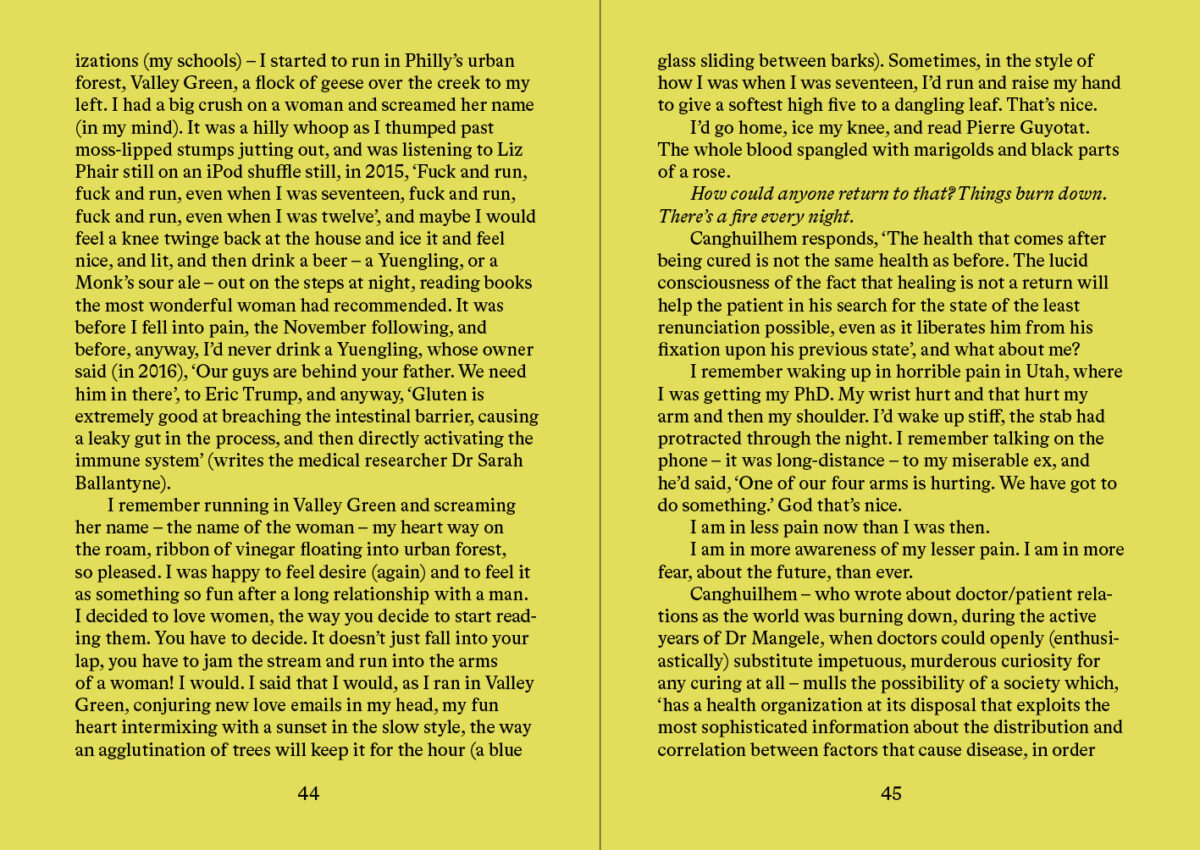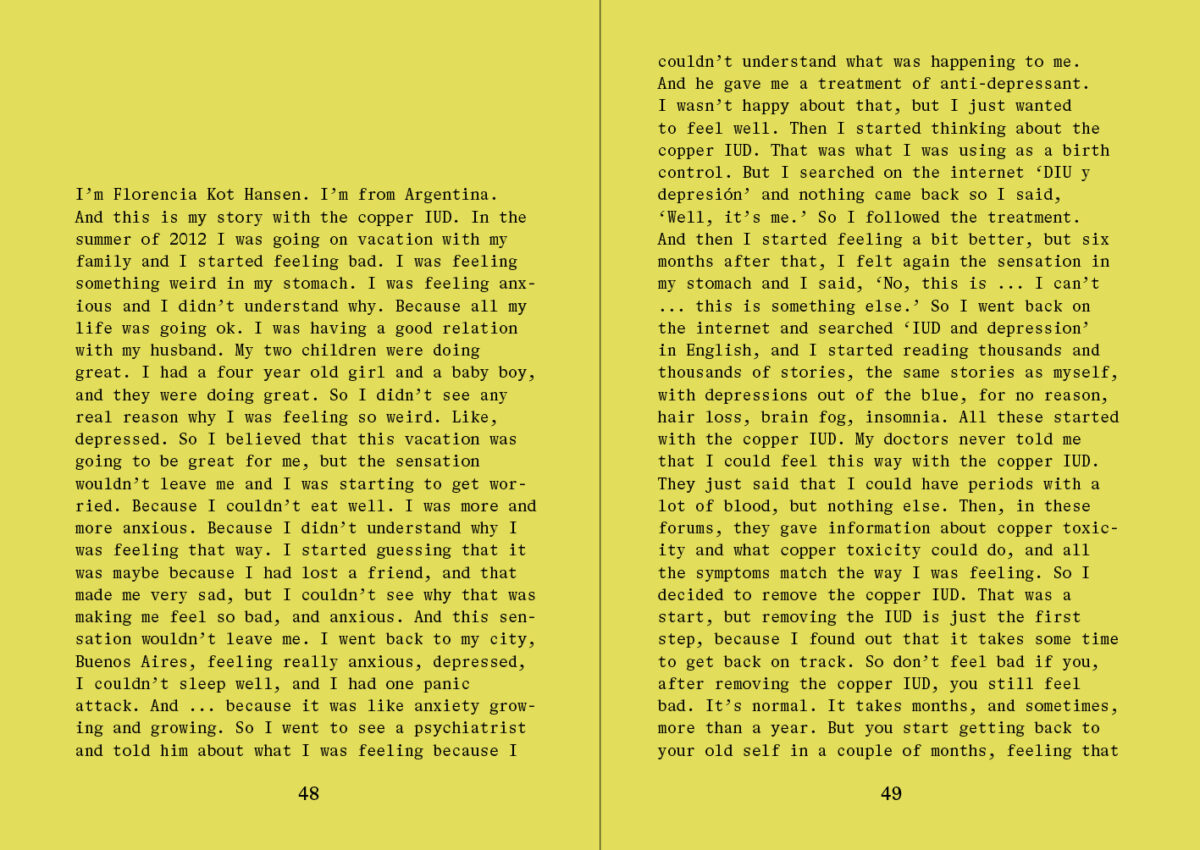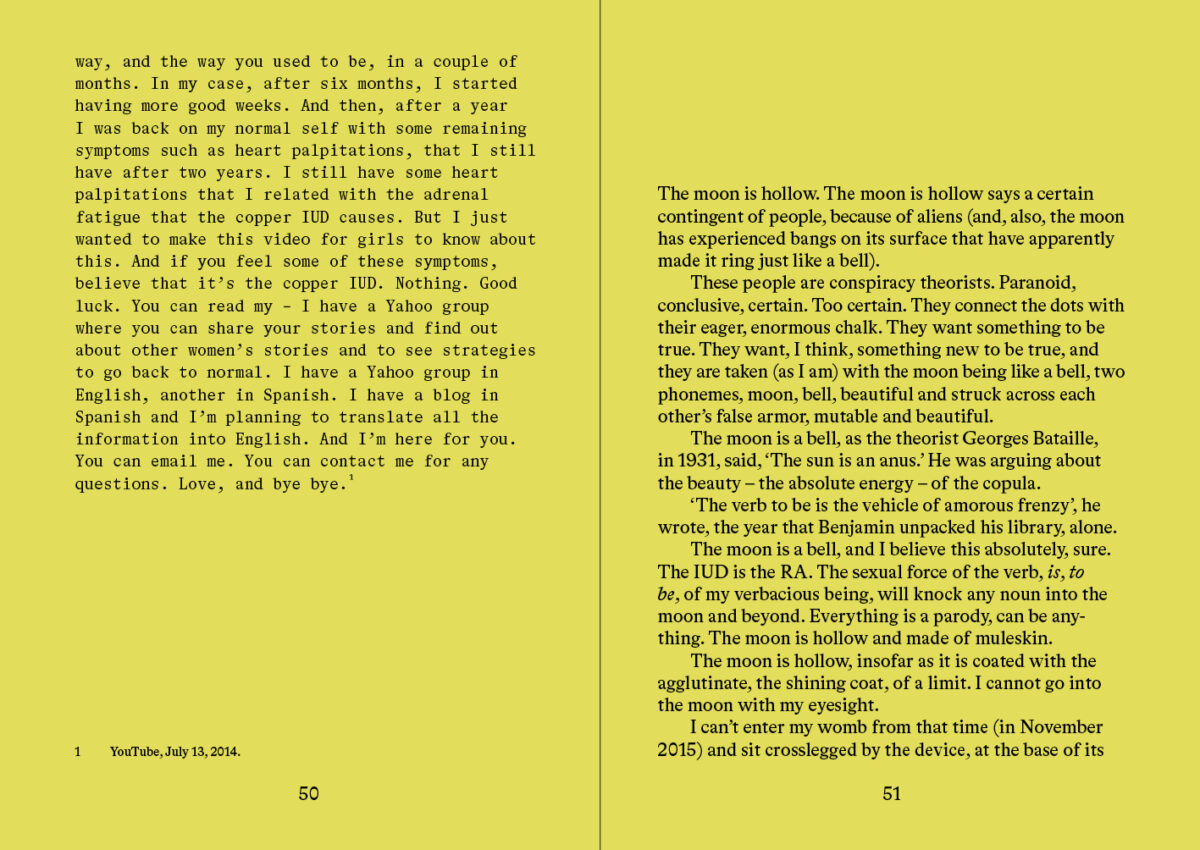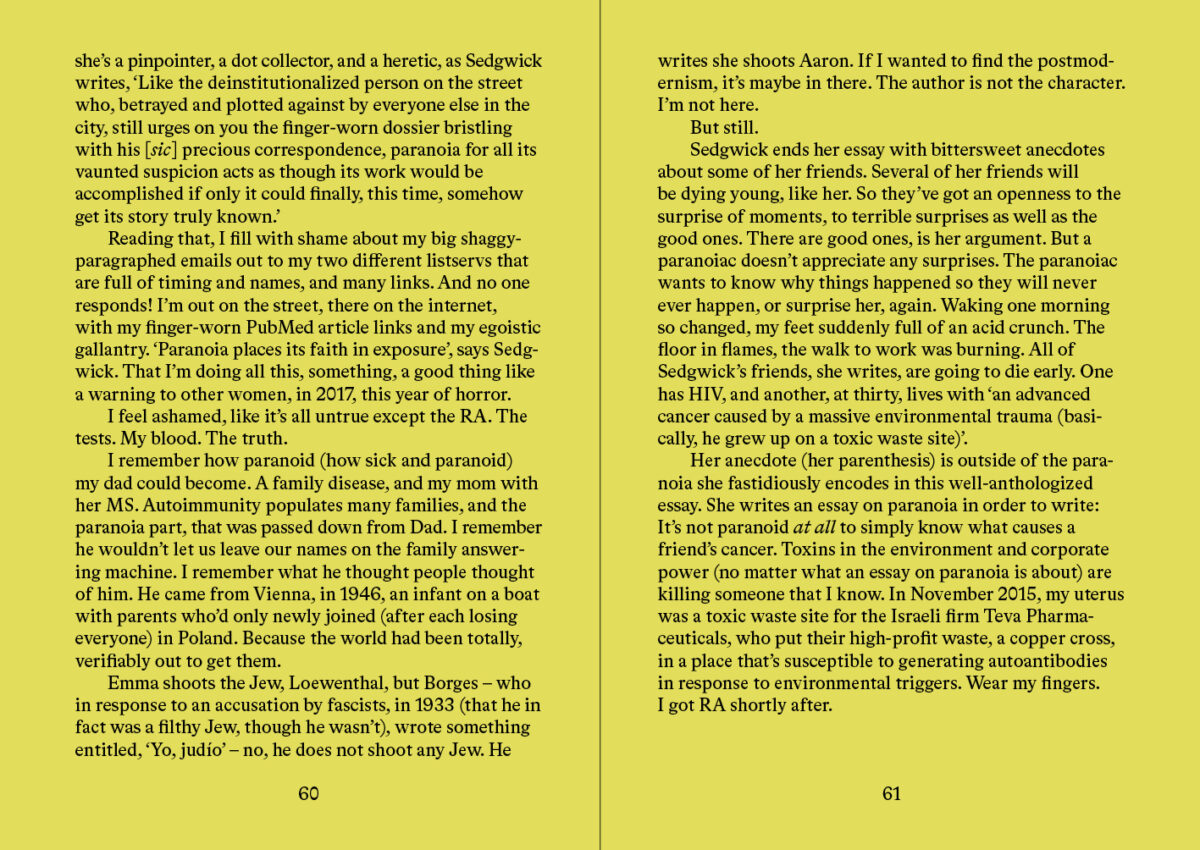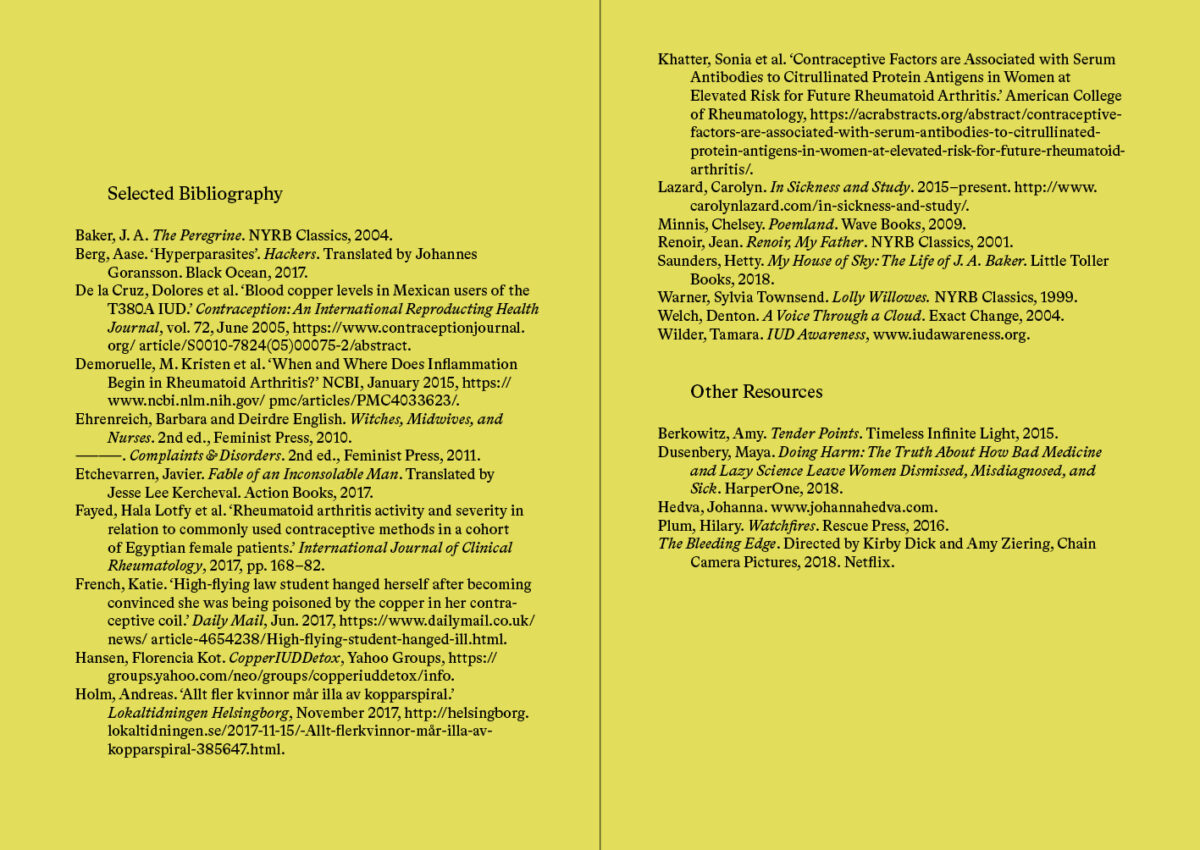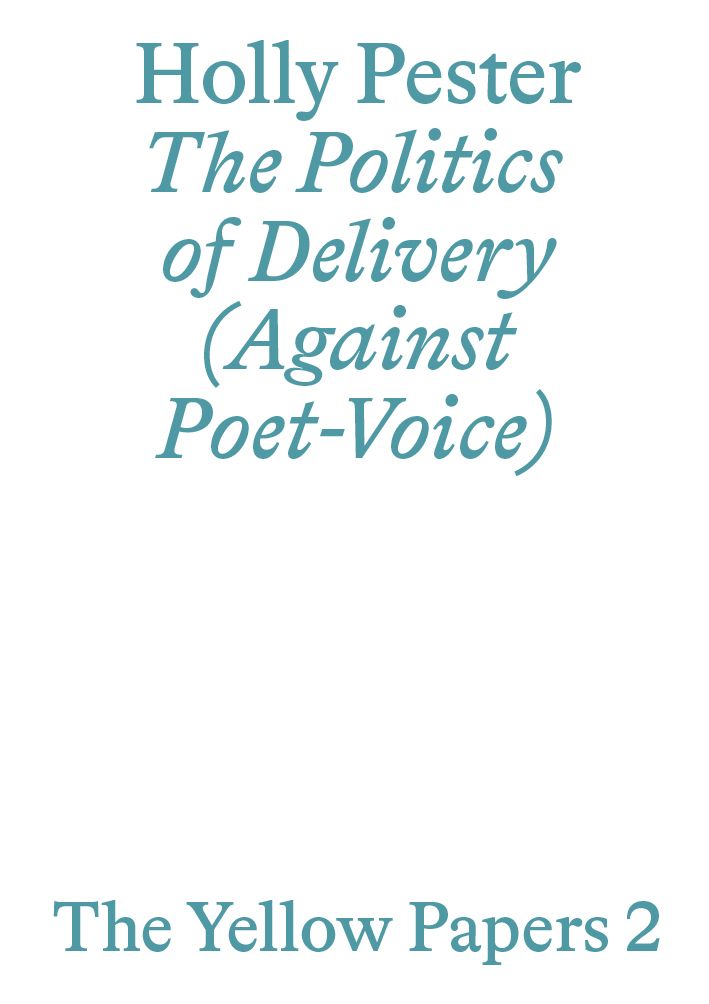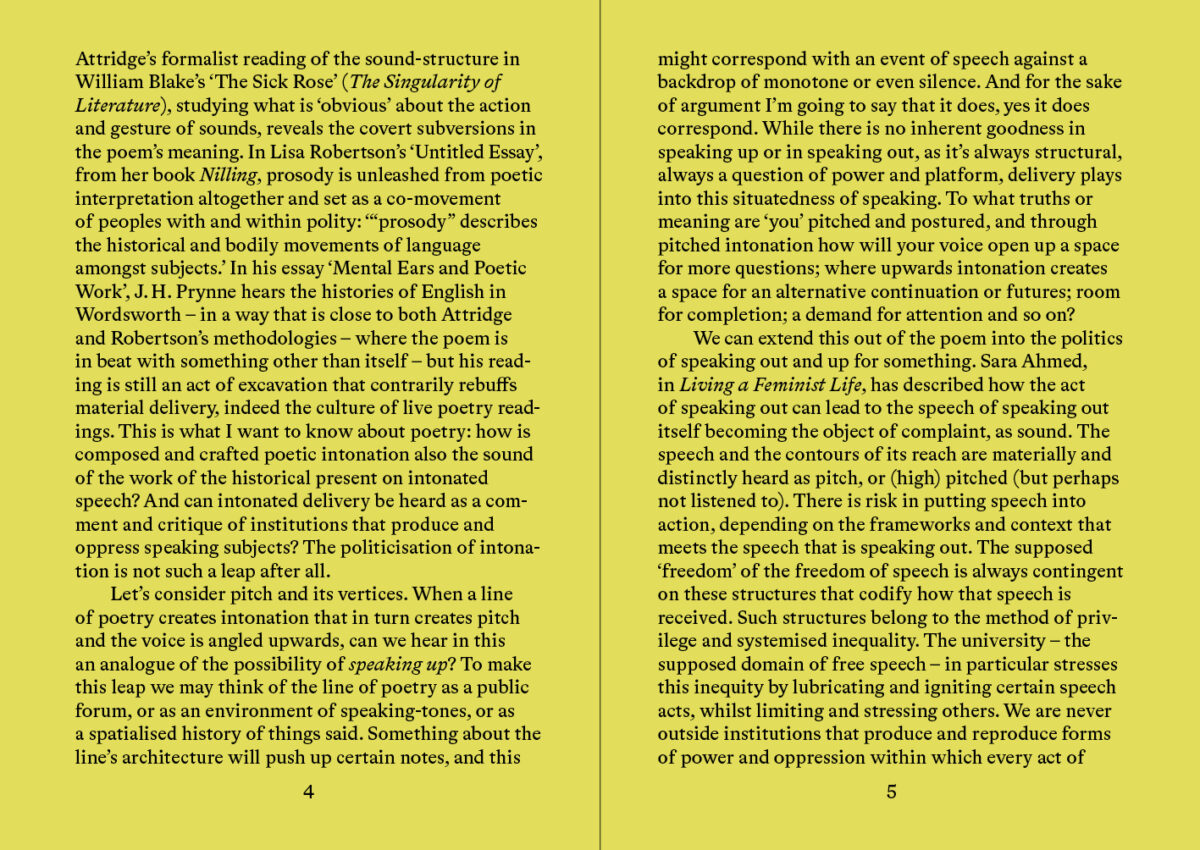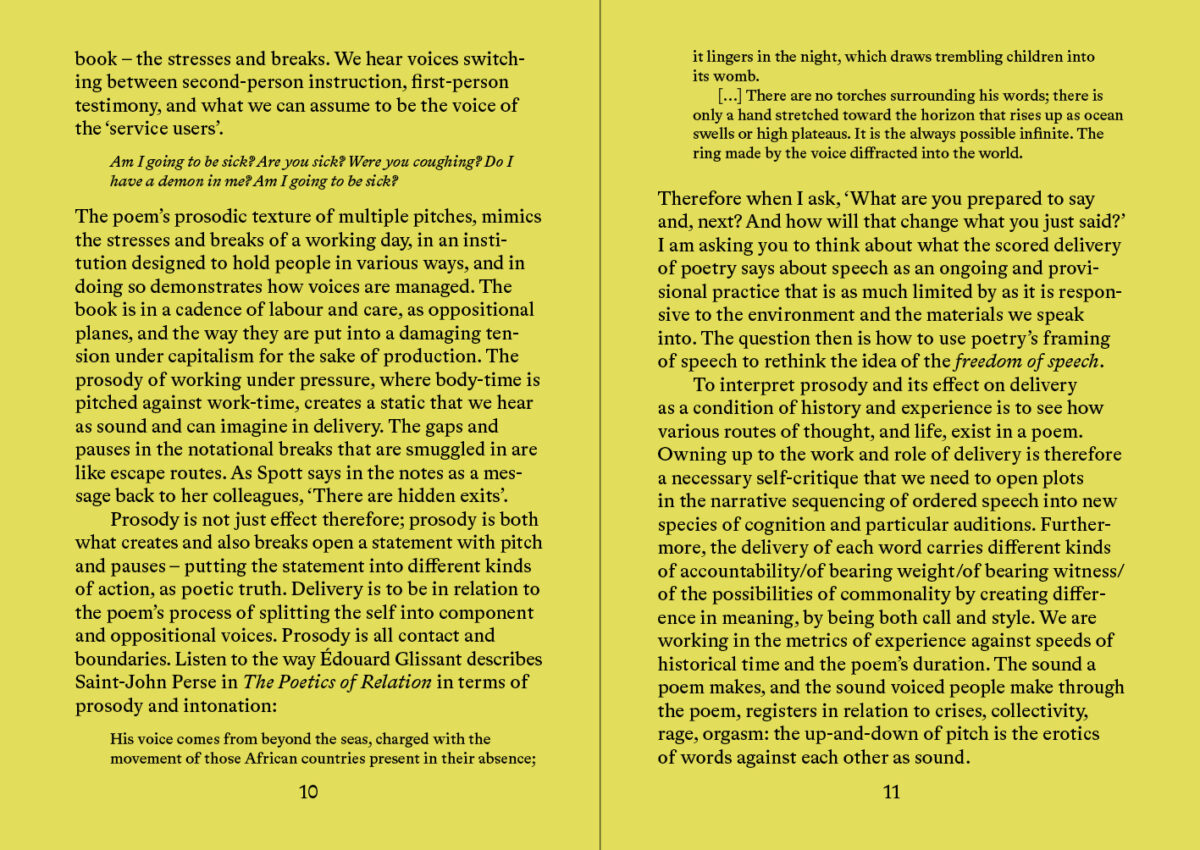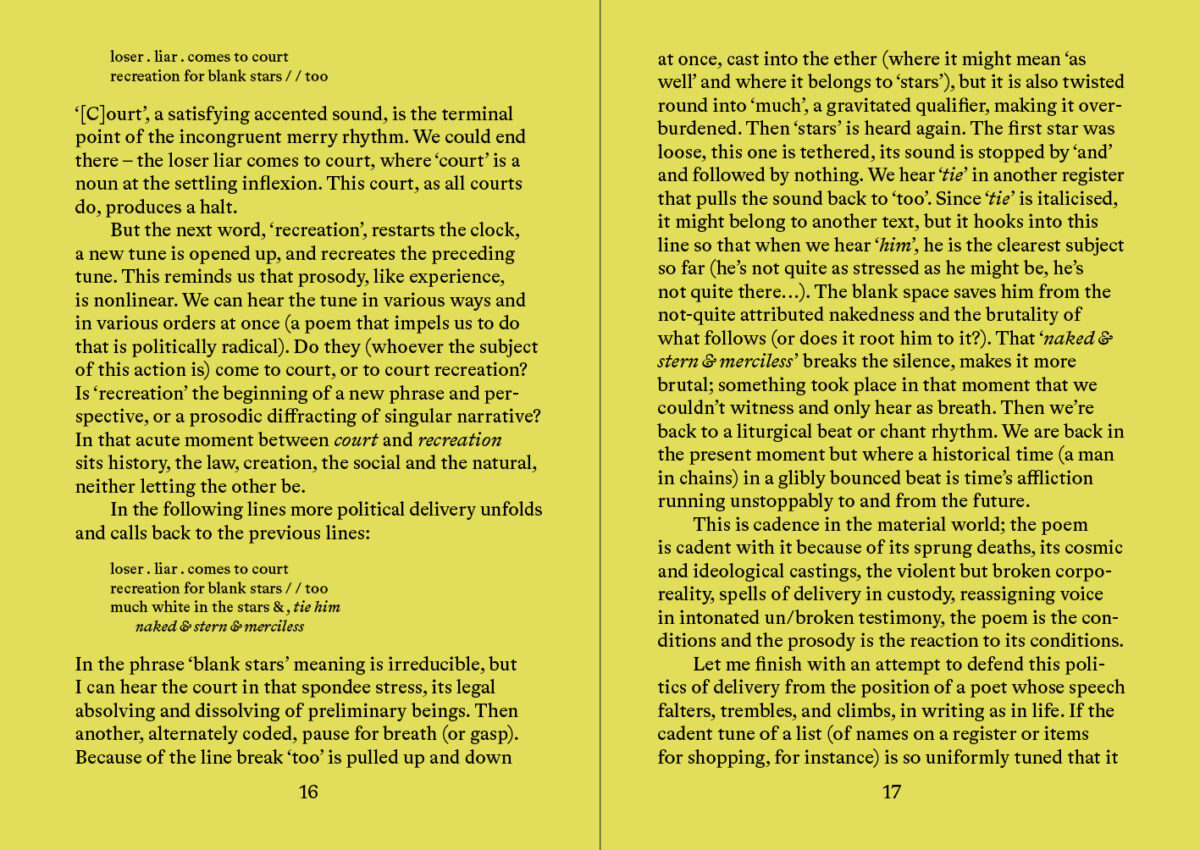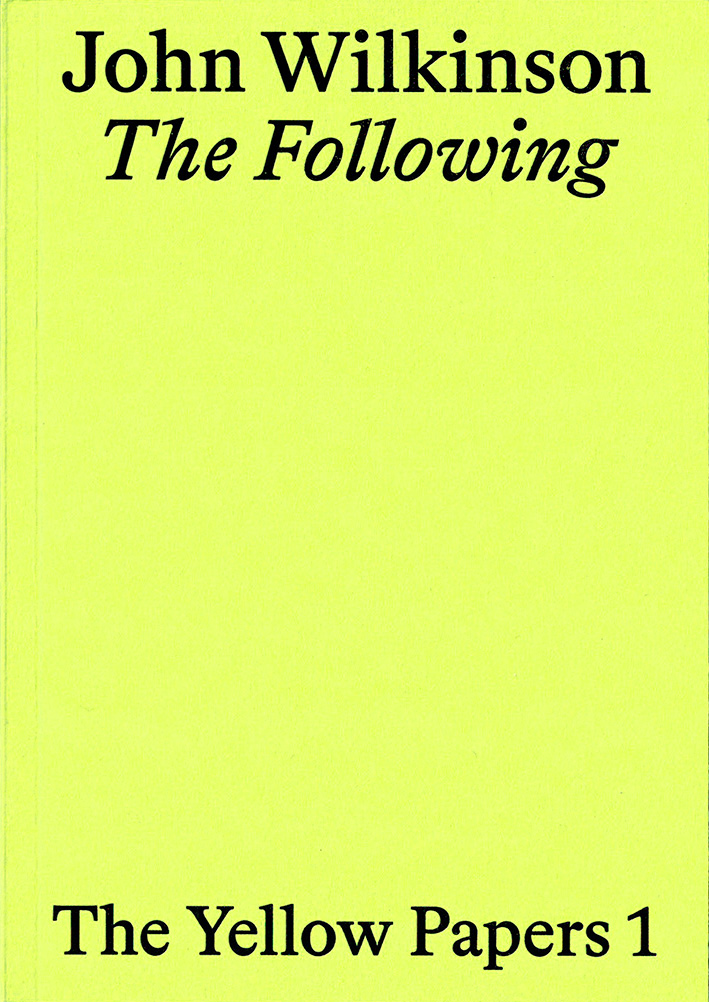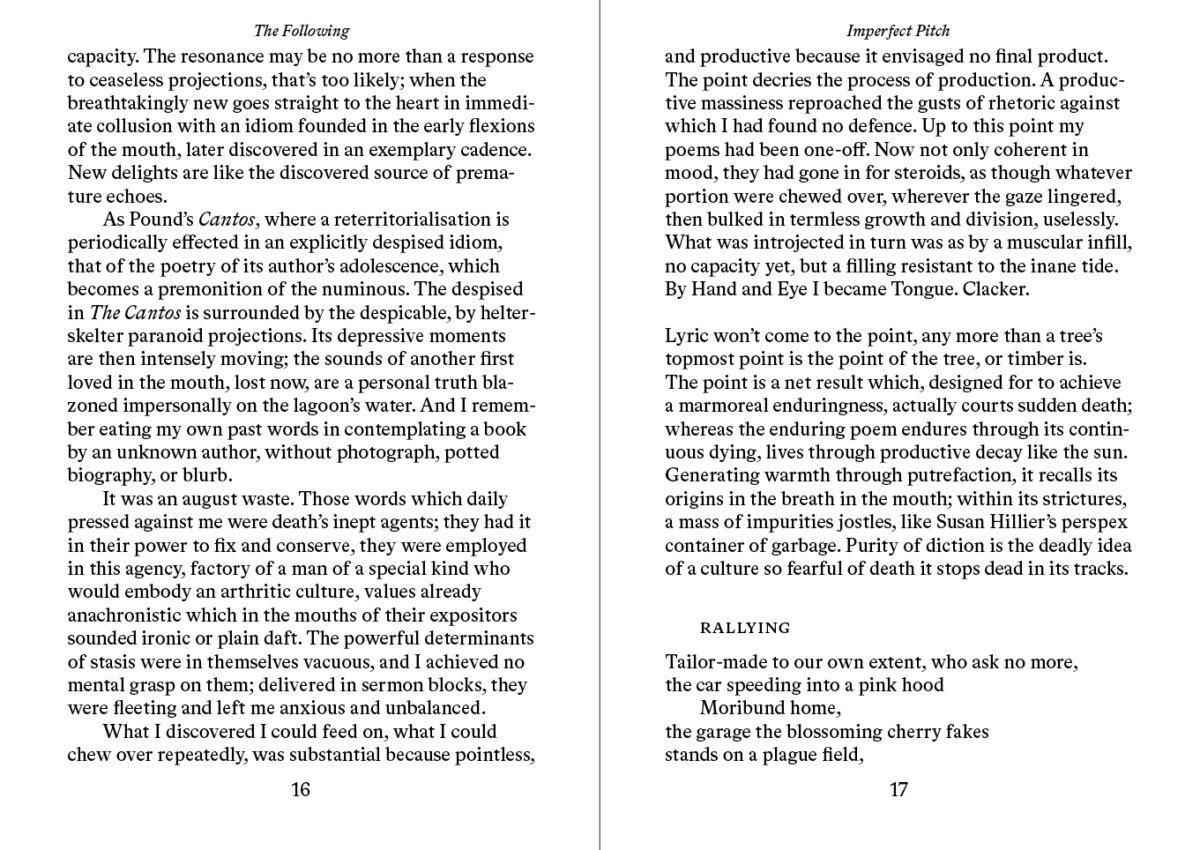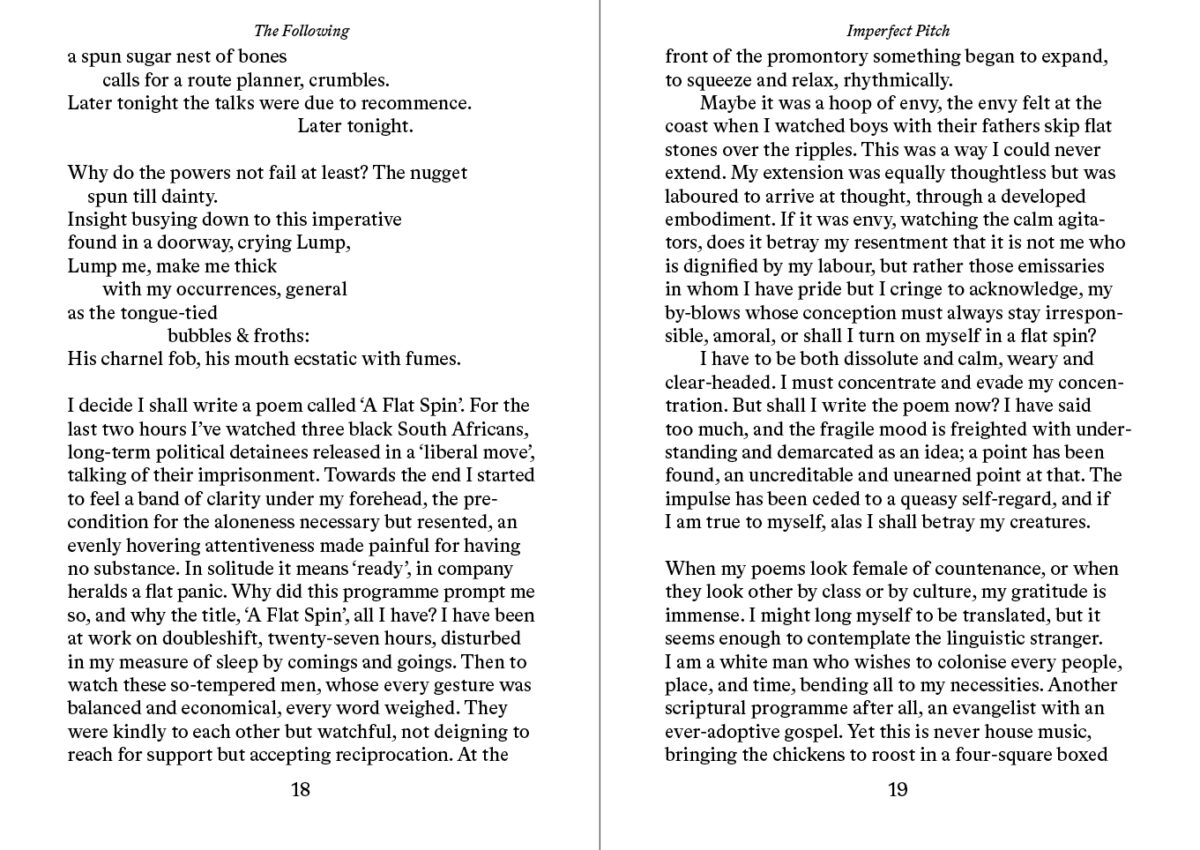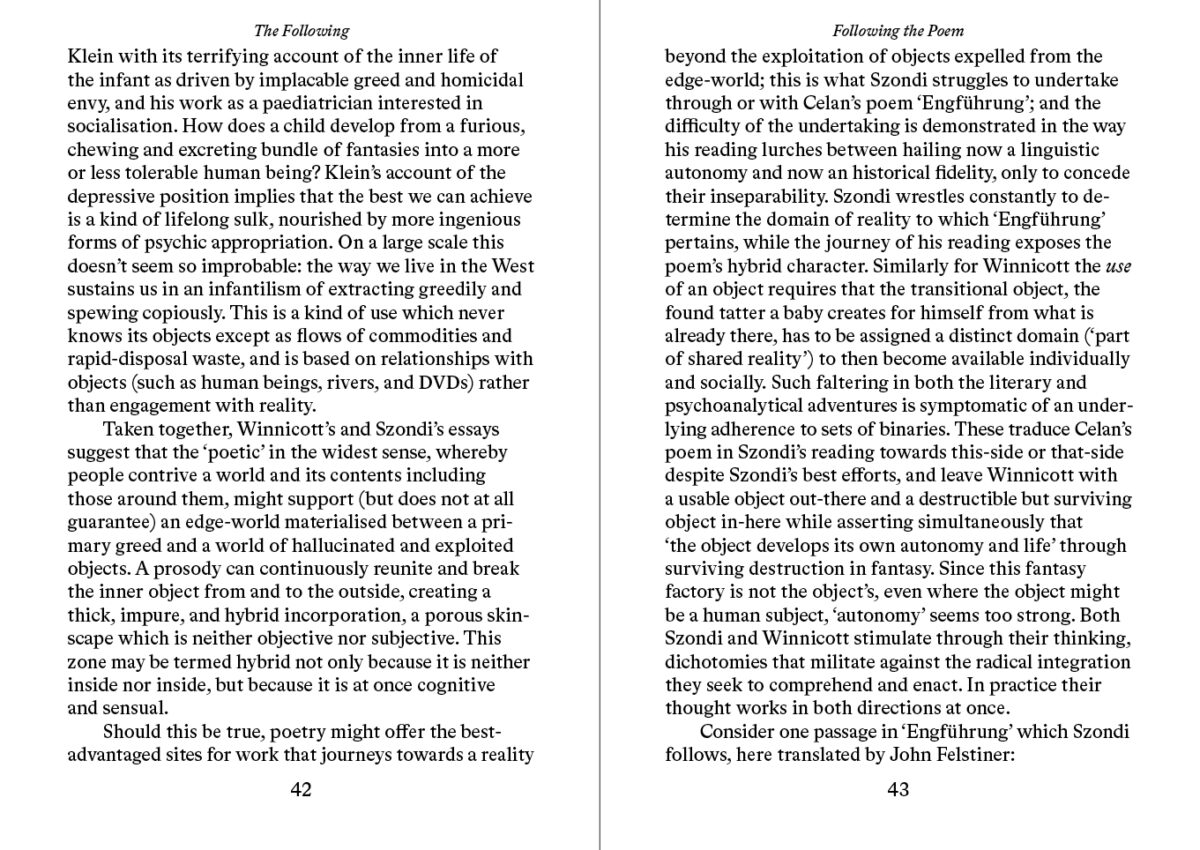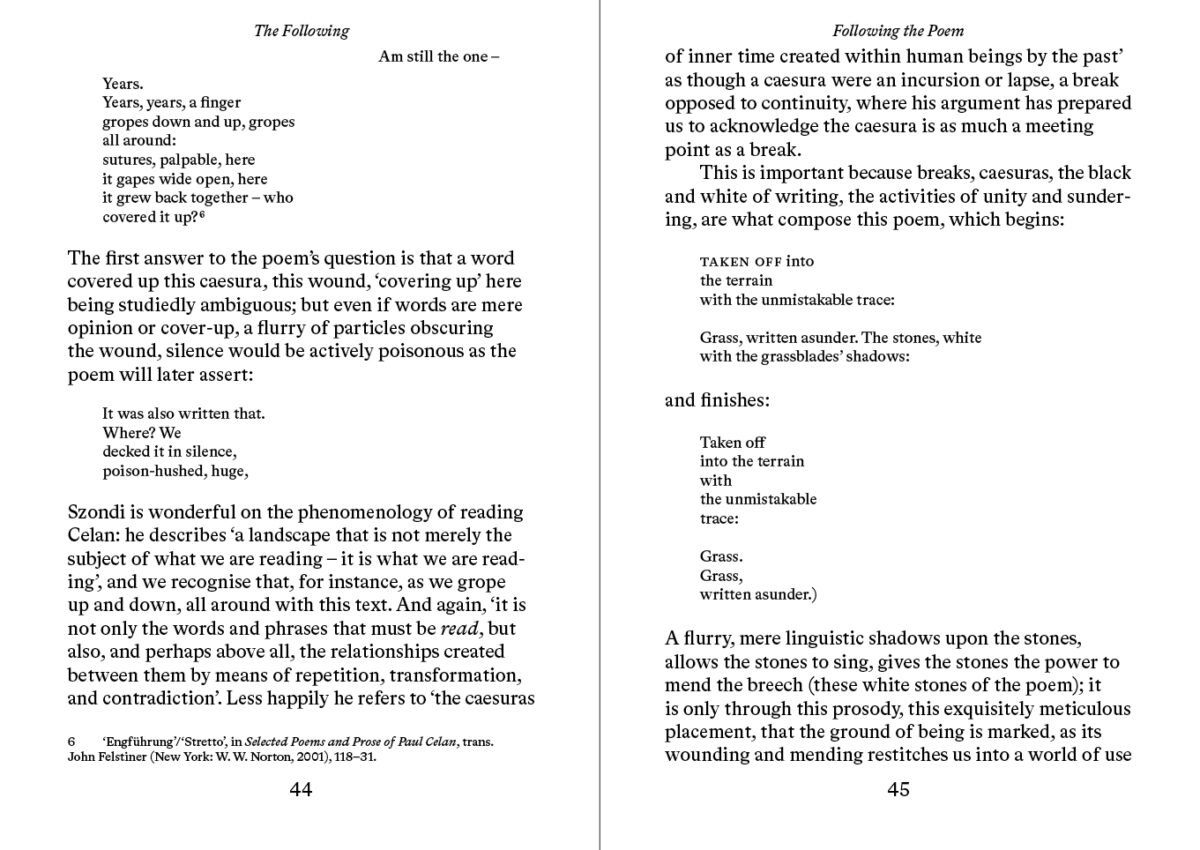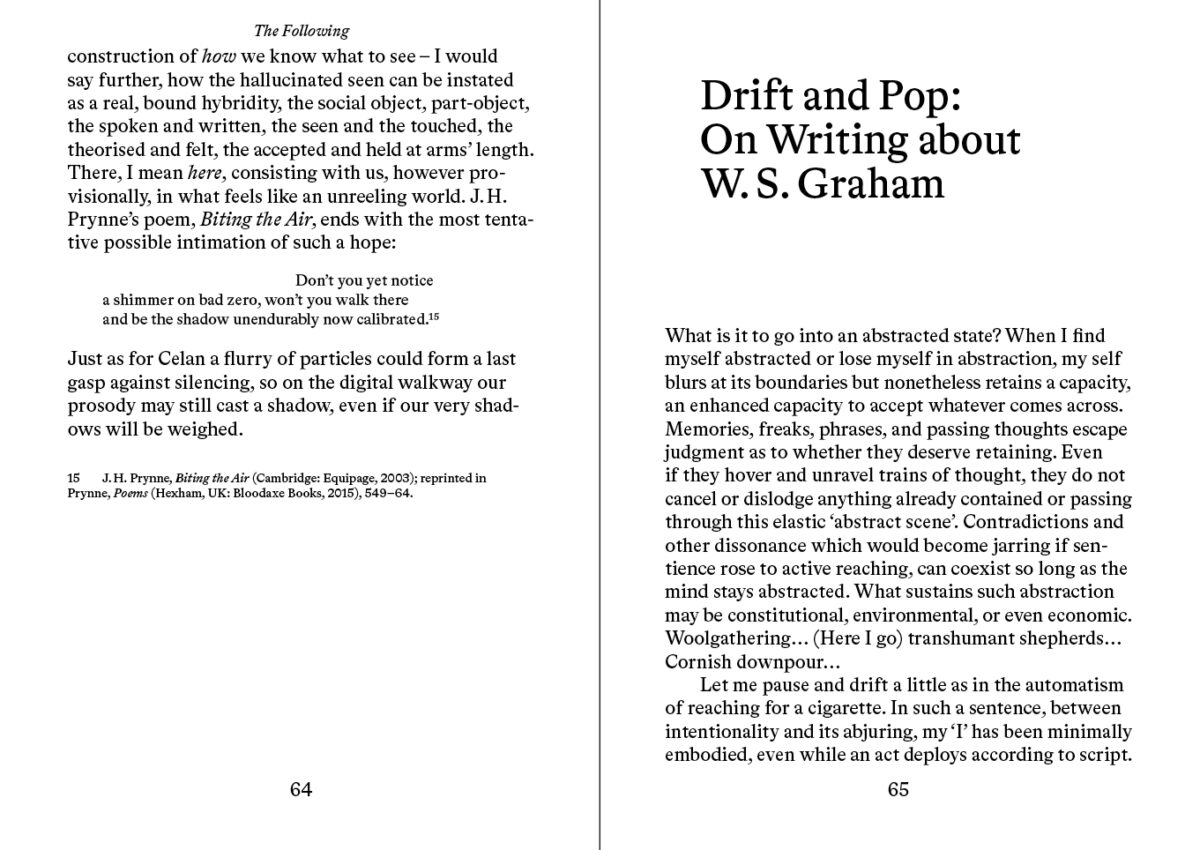The Last Books
(RRP €17.50)
Pre-orders will ship early May
Wholesale orders will soon be possible through Central Books (UK) and Asterism Books (US)
192 pp., 160 × 240 mm, sewn and flapped paperback
Edition of 600
ISBN 978-94-91780-19-6
Publication date: 29 May 2024
Designed and typeset by Phil Baber
A manual of meditations on grief blocked by trauma, pliers, goats, remedies, meaning, conduits, suicide, eggs, times, tutting, God, lifts, treasury tags, wrecking yards, Douglas Barrowman, involuntary spasms, front desks, manganese deficiency, weevil shit, Mr Sheen, coal potential, the bison, The Final Cut, tone of voice, trillions of cicadas, Elisabeth Koolaart-Hoofman, bogus antler cannibalism, the Preces Gertrudianae, parodies of communication, “Cary Grant’s Wedding,” the corruption of youth, a tripod or cable, Culverwell on the Vacuola, geese, Hemans’s line on Mary Tighe, annihilation, the proletariat, plastic bags, La Compiuta Donzella di Firenze, poetry, rooms, beheadings, S106 obligations, and planks. Containing single, double, triple, and sextuple sestinas, in the old mode of retrogradatio cruciata, and other canzoni, crushed to prose.
Also available from Central Books
144 pp., 170 × 225 mm, sewn and flapped paperback
Edition of 450
ISBN 978-94-91780-46-2
Designed and typeset by Phil Baber
What’s history? Dante Aligheri ensconced Joachim of Fiore, di spirito profetico dotato, in the heaven of the wise (Paradiso XII) as testament to the earlier writer’s visionary exegesis of John’s Apocalypse, the scripture’s last book, from which the Calabrian abbot exegeted a pictorial history of the world’s successive stages, culminating in the age of the Holy Spirit. David Brazil’s figurae collects the first eight fascicles of a projected sequence of twenty-two into a singular meditation on form, time, hope, faith, and song. We grow out of the Bible: Paul Celan. Come and see.
Also available from Central Books
208 pp., 170 × 240 mm, sewn and flapped paperback
Edition of 700
ISBN 978-94-91780-18-9
Edited with an introduction and notes by Joe Luna
Designed and typeset by Phil Baber
Douglas Oliver (1937–2000) and J. H. Prynne (b. 1936) are two of the most original and ambitious poets of the contemporary era. Eschewing the conservativism of mainstream postwar British verse and embracing influences from America and Europe, each developed their craft through continuous correspondence and exchange as part of the febrile scene of poetical community and contestation that emerged in Cambridge in the 1960s. Their works over the following decades exhibit frequent shifts in form and style, from Prynne’s radical transformation and dispersal of the lyric tradition to Oliver’s adaptation of dream visions and medieval-inspired verse satires. Their letters are a record of both the high stakes and playful experiments that constitute the writing lives of two singular poets determined not just to engage with modern political and social life during decades of crisis and upheaval, but to contribute through the circulation and publication of poetry to what Oliver calls “a community of political ethic.” Over the course of more than thirty years of friendship and mutual appreciation, the motivations for, and consequences of, their poems are constantly worked through, tested out, evaluated, and contradicted, always with a view to what the poetry means for the other, for the poetical communities they inhabit, and for the life of poetry itself.
This volume collects for the first time the majority of Oliver and Prynne’s correspondence, allowing new insights into the literary, political, and historical contexts of their lives and writing. An introduction, notes, and appendices provide a scholarly apparatus to situate Oliver and Prynne among the poets and publishers with whom they worked and socialized, and to identify and expand upon their frequent references to an enormous range of source material and reading matter.
“The correspondence between J. H. Prynne and Douglas Oliver is gripping and illuminating, brilliantly edited and completely absorbing. Two great poetic intelligences respond to each other’s work and to the society around them, thinking through the issues at stake in their poetic practice, their differences in approach, the different worlds they inhabit, their shared commitment to writing poetry and their admiration of each other’s work. The letters, complex as their matter can be, repay repeated reading; taken together, over a period of 33 years, they chart the context and creation of some of the most significant work in late twentieth-century poetry. This is an utterly engaging volume, and should be read by anybody interested in poetry and its place in the contemporary world.”
—Ian Patterson
“For writers who welcome each other as peers, the exchange of letters is the spontaneous moment of exposure, the drawing out of selves. It is thinking in mutuality. In this thoughtfully edited and carefully, even beautifully, presented correspondence between Douglas Oliver and J. H. Prynne, two of the preeminent poets of the ‘British Poetry Revival’ of the post-World War II generations, we witness two writers of immense gifts thinking with each other, coming alive to thought and, ultimately, a shared world or community of wish. There is life, there is death; there is grief, there is anger – and love – but always there is a seeking, an attempt to arrive at a language for our worlds. Henceforth, one cannot imagine reading the work of either Oliver or Prynne without this correspondence and all that it offers in openings onto what Oliver himself saw as ‘the poet’s full performance [which] is the whole life’s work.’ It is a glimpse into an athanor of poetic creation.”
—Michael Stone-Richards
“[A] major documentation of what was going on behind British poetry in the mid-century.”
—Peter Riley, Fortnightly Review
“Luna’s glosses on the scholarly material – presented as marginal annotations rather than footnotes, and supported by a thorough introduction and well-chosen appendices – are assiduous, consistently enlightening and deployed with a lightness of touch that prevents them overwhelming the text. […] These letters […] will enrich the appreciation and understanding of both Oliver’s and Prynne’s work, and the contexts in which that work was written.”
—Alex Latter, PN Review
“[T]he recent volume of letters edited by Joe Luna – and produced to the usual fine standards of its publisher, The Last Books – could hardly be more absorbing and valuable.”
—Jeremy Noel-Tod, TLS
(RRP €14)
Also available from Central Books
64 pp., 156 × 238 mm, sewn and flapped paperback
Edition of 500
ISBN 978-9-49178-015-8
Designed and typeset by Phil Baber; cover image by Elisabeth Rafstedt
“The pastoral has always been a civic genre: shepherds’ songs written by city workers dreaming of release, of timely coincidence between feeling and nature. In Wood Circle, one of Wilkinson’s most powerful poetic books, the green thought in a green shade perishes – wildfire destroys the canopy, the Calais jungle is cleared by immigration police. The pathetic fallacy is now literal, dawn chorus imitating car alarms. And yet, each line of this astonishing collection offers a new analysis of the earth’s fever dreams. If ‘None had loved enough what / they must find by losing’, in this book’s moratorium we can find time to remember what we never loved enough. These poems sing for mortal creatures, some human, and collect their leavings: skin, bees, infants, fruits, tires. Seared by the world and everything in it, Wilkinson’s poems are radiant, damaging, a consuming memorial fire.”
—Andrea Brady
“These are the poems I’ve wanted Wilkinson to write for ages, which bring his peerless craft and commitments to a new degree of focus. A lyric cycle emerging from his daily walks to a local beauty spot, but finding itself about the settler-colonial and ecological devastations which made that spot possible and the ongoing violence of the migration crisis which it is destined to exclude. Wilkinson carefully walks the limits of what a poet in his position can say about all this, of what is morally at stake in calling all of this ‘representation’: ‘Will you listen to us now / our lips are sewn, will you see us now / we stand blind in front of you? ’ Wilkinson’s customary density of image and thought is broken up here by what he takes to be more direct and expressive ‘impromptus’, but in fact these breaks and gasps of register spill out powerfully across the whole sequence – until it feels like it’s breathing its politics.”
—Jack Belloli, Spam Zine
● Essay by Cal Bedient in Lana Turner, no. 15
● Review by Rupsa Banerjee in the Fortnightly Review
● Review by Mark Scroggins at Hyperallergic
(RRP €15)
Also available from Central Books
80 pp., 160 × 240 mm, sewn and flapped paperback
Edition of 600
ISBN 978-94-91780-32-5
Designed and typeset by Phil Baber
Scherzos Benjyosos is a set of four poems, scherzos in prosimetrical blocks, a comical, wild, and delirious sifting through the carnage of the financial crash, the dreamscapes of capitalist infancy, histories of sadism and persecution, the fetish bars of canonical literature, and the psychoanalysis of grass. The book also includes “Sinking Feeling,” Sutherland’s long poem from 2017, described by J. H. Prynne as “breathtakingly lovely, and desperate, racked with desire to become truthful love.”
● Review by Connie Scozzaro in the Chicago Review
● Review by John Wilkinson in Blackbox Manifold, no. 26
● Review by Mark Scroggins at Hyperallergic
● Interview with Keston Sutherland at BOMB Magazine
● Two letters by Joe Luna at SPAM Plaza
● Essay by Phil Baber at Jacket2
252 pp., 144 × 222 mm, sewn and flapped paperback
Edition of 600
ISBN 978-94-91780-06-6
Translated with an introduction, notes, and commentary by Christopher Middleton
Edited and designed by Phil Baber
This volume gathers all of Christopher Middleton’s Hölderlin translations, comprising thirty-one poems and fourteen letters. With an introduction, notes, and four essays on (translating) Hölderlin’s poetry.
“Christopher Middleton is an extraordinary translator, bringing his fine poet’s ear and inventiveness to the task. In addition to the brilliant versions, this volume offers Middleton’s essays on the poet and a selection from Hölderlin’s letters – a great gift to us all.”
—Rosmarie Waldrop
“This is an extraordinarily rich and powerful selected assemblage of Hölderlin’s writings – poems and also letters – bilingual and translated with intense inwardness, situated by accompanying commentary and discussion in both the historical contingency of the poet’s Lebenswelt and at the same time in his passional spirit-thinking as it evolves and informs his poetical experiments. There have been many previous versions into English of the most celebrated of these poems, but these here come unmistakably from the imaginative intelligence of another strenuously original poet, at exceedingly close connection with Hölderlin’s wrestle with language, its upward reach into the fleeting semi-permanence of the divine presences and its probing downwards into the Germanistic roots of a language-culture at this time in historical and political turbulence. Middleton’s full and thoroughgoing Introduction pre-empts earlier (and later) translation dalliance with spirit-fancy by his rigorous and persistent precision.
As example, the development of ‘Andenken’ (Remembrance) (approx. 1803) is deeply investigated. The notorious final line is ‘Was bleibet aber, stiften die Dichter,’ given here as ‘What abides, even then, the poets ordain it.’ In his 1972 version ‘aber’ was given as ‘But [poets] alone…’; Hamburger in 1943 (1943!) had written ‘But that which endures the poets give,’ then in 1966 ‘But what is lasting the poets provide’ – each honourably careful and slightly clumsy; not to mention Leishman in 1944: ‘What the poets bestow remains.’ Middleton’s radical and even drastic ‘even then,’ held in suspensive parentheses, is part of his project to ‘track the syntactical design of “Andenken”’ (p. 198); after brilliant exegesis he will not merely write but, recognising that ‘aber voices resistance’ (p. 222) and concluding with a further appositional pronoun-object, ‘it’; poet’s workmanship!”
—J. H. Prynne (Cambridge, September 28, 2018)
“A joy of a book. […] It contains material written and published by Middleton between the 1960s and the first decade of the twenty-first century, material now difficult to get easy access to, but made available here in a useful and well-thought-out way. […] Various texts by Middleton (previously published in several places) serve as an introduction to the poet and his work, and offer detailed analysis and interpretation of poems and discussions of translation tactics. The whole volume, indeed, is something of a translation workshop conducted by one of the best translators of German literature in the business.”
—David Malcom, Poetry Salzburg Review
“It is wonderful to have all this ‘bound by love in one volume,’ as Dante said in a different context, allowing us to see more clearly the nature of Middleton’s long engagement with Hölderlin and to appreciate the close relationship between his roles as a translator, as a critic and, more obliquely, as a poet.
[…] A sense of risk and acuity, sharp stabs of intellectual venture, can be felt in everything [Middleton] wrote. The translations are reliable, modest and intense. Middleton’s sensitivity to formal questions, to the way the shape and timbre of the poem modulate with the development of its preoccupations, is present in both his translating and his critical writing, and joins them together. […] We are taken right into the sense-making heart of the writing, and witness not the transposition of meaning but its reconstitution on the page, in the different conditions of the new language and time. […]
[This] volume – beautifully produced – is a model of imaginative and committed publishing, and its value is self‑evident.”
—Charlie Louth, TLS
● Named one of Ignota’s Books of the Year 2020 by Mathias Zeiske
● Review by David Malcom in Poetry Salzburg Review 36
● Review by Charlie Louth in the Times Literary Supplement
● Review by Patrick James Dunagan at Rain Taxi
● Notice by Peter Riley at the Fortnightly Review
● Notice by John Wilkinson on the Poetry Magazine editor’s blog
64 pp., 170 × 255 mm, hardcover
Edition of 500
ISBN 978-94-92139-05-4
Edited and designed by Phil Baber
Commissioned and co-published by If I Can’t Dance, I Don’t Want to Be Part of Your Revolution as part of Edition V – Appropriation and Dedication (2013–14), with curatorial support from Frédérique Bergholtz and Tanja Baudoin
Distributed by Idea Books
“I will sing of bareness a new song,
for true purity is without thought.
Thoughts may not be there,
so I have lost the Mine:
I am decreated.”
—The Song of Bareness, Anonymous
Acoustic Thought is an exegesis of the Gospel of Thomas, an apocryphal gospel found at Nag Hammadi in Upper Egypt in 1945.
With a score for six female voices by Lisa Holmqvist; a collage of writings by medieval female mystics; and photographs taken by Jeff Weber at the Coptic Museum in Cairo, during a research period at Beirut project space.
The book’s covers reconstruct patterns found on the covers of Nag Hammadi Codex II, which, as well as the Gospel of Thomas, contains the Apocryphon of John, the Gospel of Philip, the Hypostasis of the Archons, On the Origin of the World, the Exegesis on the Soul, and the Book of Thomas the Contender.
Presented and performed during Perfomance Days, Amsterdam (November 2014) and Hotel Theory, REDCAT, Los Angeles (November 2015).
48 pp., 108 × 176 mm, softcover with flaps
Edition of 500
ISBN 978-94-91780-01-1
Translated by Scott Abbott
First German edition published in 1986 by Suhrkamp Verlag
The first English translation of Peter Handke’s long poem To Duration (Gedicht an die Dauer). The poem was written in the immediate aftermath of the novel Repetition, to which it serves as a kind of postscript.
“Peter Handke’s long poem Gedicht an die Dauer came out in 1986 and has only just been brought out in English, as To Duration, in a fine translation by Scott Abbott… That the same person could write Offending the Audience, Essay on Tiredness, Repetition, and this poem is quite remarkable. Handke is one of the shining literary lights of our time and it says a great deal about the insularity of our culture that this profound and beautiful poem has had to wait almost thirty years to appear in English.”
—Gabriel Josipovici, TLS, “Books of the Year 2015”
12/16 pp., 353 × 250 mm, softcover
Printed on demand
T–O (written in 2013 for Neue Vocalsolisten, for two sopranos, countertenor, tenor, and bass) and Die Elbe (2015, for flute, voice, and cello) are scores by Italian composer Silvia Rosani. T–O is based on texts by Predrag Matvejevic and Carlo Stuparich, and Die Elbe on a poem by Kinga Tóth.
Elba
a nő csikóhal combján válla
hal sellőn hullám az Elba
a hangok a sípcső alapon
száján adja ki egyszerre
ereszti a levegőt
testét átfúrják az énekléshez
a sípcsöveket kihúzzák engedi
a levegőt száján és az új
helyeken felületéhez
rakják fújnak a kis réseken
áténekelnek a mellkasán
Also available from Central Books (UK)
352 pp., 108 × 176 mm, softcover with flaps
Edition of 500
ISBN 978-94-91780-00-4
Translated by Ralph Manheim
First German edition published in 1986 by Suhrkamp Verlag
Also available from Central Books (UK) and Book Depository (with free global shipping)
A reissue of Ralph Manheim’s English translation of Handke’s 1986 novel Repetition, previously out of print for a quarter of a century.
“In Repetition, Handke allows the peculiar light which illuminates the space under a leafy canopy or a tent canvas to glisten between words, placed here with astounding caution and precision; in doing so, he succeeds in making the text into a sort of refuge amid the arid lands which, even in the culture industry, grow larger day by day.”
—W. G. Sebald
“In his earliest work … Handke found a way of conveying a state of mind … where words seem to come between you and the world, where nothing coheres or appears natural, and from the vantage-point of which the ease with which other people talk and go about their business seems deeply suspicious. But just as Kafka felt there were moments when, miraculously, a written sentence – even one written by himself – seemed full light, seemed to fill its own space and establish its own rhythm, and when even the whole story seemed mysteriously to stand as solidly in the world as a tree or a rock, so it has been with Handke. He has, in his later work, appeared to make a conscious effort to escape from the debilitating awareness of his own lack of authority or authenticity, and tried to write as though somehow the story were already written, had, in a sense, always been there… Repetition is the triumphant climax of his career so far…
What saves the book from the sort of sentimentality we find in John Berger’s recent work is first of all Handke’s uncanny ability to convey what it is this urge for pattern has to overcome, and secondly, his extraordinary attention to detail, historical, geographical, botanical, and linguistic. (No review can possibly convey the richness of Filip’s meditation on his brother’s two books, or Handke’s magical way with images.)
His narrative … is one of the most dignified and moving evocations I have ever read of what it means to be alive, to walk upon this earth.”
—Gabriel Josipovici
From Repetition (pp. 118–19):
“The previous night, I had taken in the details of the valley, but now I saw them as letters, as a series of signs, beginning with the grass-pulling horse and combining to form a coherent script. I now interpreted this land before my eyes, with the objects, whether lying, standing, or leaning, which rose up from it, this describable earth, as ‘the world’…
And so my further progress in that predawn hour became a deciphering, a continued reading, a transcribing, a silent taking of notes. And I then distinguished two bearers of the world: on the one hand, the earth’s surface that supported the horse, the hanging gardens, and the wooden huts; and on the other hand, the decipherer, who had shouldered these things in the form of their hallmarks and signs. And I literally felt my shoulders broaden in my brother’s too-spacious coat and – because the perception and combination of signs operated as a counterweight to the burden of material things – straighten up as though my deciphering transformed the weight of the earth into a single freely flying word, consisting entirely of vowels, such a word as the Latin Eoae, translatable as ‘At the time of Eos’, ‘At dawn’, or simply, ‘In the morning’.”
● Review by Gabriel Josipovici in the Guardian
● Review by Eugene Lim here
● “Across the Border,” an essay on Repetition by W. G. Sebald (translated by Nathaniel Davis)
● “The Sun of Words,” excerpts from a 1986 interview between Handke and Herbert Gamper (translated by Nathaniel Davis)
80 pp., 160 × 240 mm, hardcover
Edition of 500
ISBN 978‑954‑92943‑1‑6
Edited and designed by Phil Baber
From the title page:
“For it is not we who know, but rather a certain state of mind in us that knows.”
—Kleist
Published on the occasion of the exhibition Beyond Imagination at the Stedelijk Museum, Amsterdam, with a seminar by Snejanka Mihaylova in dialogue with Mladen Dolar.
The photograph of the cover is by Jeff Weber.
80 pp., 203 × 261 mm, softcover
Edition of 500
Edited and designed by Phil Baber
The second issue of Cannon Magazine. On things and their words.
“As I was going up the hill, I was surprised to see rising above the June-grass, near a walnut, a whitish object, like a stone with a white top, or a skunk erect, for it was black below. It was an enormous toadstool, or fungus, a sharply conical parasol in the form of a sugar loaf, slightly turned up at the edges, which were rent half an inch in every inch or two…
I put the parasol fungus in the cellar to preserve it, but it went on melting and wasting away from the edges upwards, spreading as it dissolved, till it was shaped like a dish cover. By night, though kept in the cellar all day, there was not more than two of the six inches of the height of the cap left, and the barrel-head beneath it and its own stem looked as if a large bottle of ink had been broken there. It defiled all it touched.”
—Thoreau, The Journal, June 18, 1853
144 pp., 203 × 261 mm, softcover
Edition of 250
Offset lithography, risography, wood-cut
Edited and designed and with a series of editorials by Phil Baber
Named Magazine of the Year 2009 by 3:AM
The first issue of Cannon Magazine. Written, edited, designed, and printed in sixteen-page sections. Including texts by Donald Porter, Stefan Themerson, Nathalie Sarraute, Robert Smithson, and others, and a series of editorials by Phil Baber.
“Beautifully written, designed, and thought through, Cannon is more than just another arts magazine: it is a work of art.”
—Andrew Gallix, editor of 3:AM
The Yellow Papers
74 pp., 112 × 182 mm, softcover
ISBN 978-94-91780-12-7
Also available from Central Books
And so, beginning in September of 2020, and carrying on, with occasional interruptions and dilations, until the next April, we read from the first page of J. H. Prynne’s Parkland to the last. After that first pass through the nineteen sections, we gathered all the emails and printed them out. In their raw form they told the story of an evolving, dialogic critical encounter, written not from the omniscient vantage of the reader who has got to the last page, but in real time and close to the ground – each linguistic event, as we encountered it, blocking our view of the pages ahead.
74 pp., 112 × 182 mm, softcover
ISBN 978-94-91780-09-7
The five essays printed here are excerpted from Part I of Present Continuous, a book of prose written during the first year of the coronavirus pandemic between March 2020 and April 2021 in Lewisham, London. The essays in the present volume were written between March 2020 and June 2020: the movement from spring to summer, from the first announcement of a national lockdown to the Black Lives Matter protests sparked by the murder of George Floyd and Breonna Taylor in the United States and the death of Belly Mujinga in the UK. Nearly two years on, following a seemingly endless series of virus variants and subvariants, an apparent shift from pandemic to endemic, and a kind of exhaustion of vocabulary and will, I hope they provide some sort of record, not just of where “we” were in 2020, but where “we” are – or might be – now. (David Grundy, London, January 2022)
“It’s 2018 and we’re still on a train out of London, it’s 1967 or 1970 and Coltrane and Ayler are still in their material form, it’s 1943 and Artaud’s letters spill their remainder on the page, it’s April 2020 and all those presences are gone but their traces remain in the split voice, the overtone, the greater frequency overwhelming that base note which no longer guides in circumscribed lines. The actual presence of actual ghosts, silver on the mirrors, lost poetry, the noise it makes.
It’s from the condition of being in the abyss itself that we learn how to climb out of it.”
66 pp., 112 × 182 mm, softcover
ISBN 978-94-91780-08-0
Also available from Central Books
In A Talk on Rhyme, a text distilled from a lecture given in 2014, poet David Brazil reflects on rhyme’s “emergence, progress, inoperativity, and prospect.” The Talk is supplemented by an essayistic bibliography on subjects ranging from classical prosody to American folk music, via writings on and by poets long dead whose names are obvious: Saint Paul, Dickinson, Herbert, Spicer, Hölderlin, Dante, O’Hara.
64 pp., 120 × 170 mm, softcover with metallic foil-stamp
ISBN 978-94-91780-00-4
This pamphlet excerpts from Blackfishing the IUD, published in 2019 by Wolfman Books, Oakland. With thanks to Caren Beilin, Jacob Kahn, and Justin Carder
Excerpts from Caren Beilin’s 2019 essay/memoir about reproductive health and the IUD, gendered illness, medical gaslighting, and activism in the chronic illness community.
“The moon is hollow. The moon is hollow says a certain contingent of people, because of aliens (and, also, the moon has experienced bangs on its surface that have apparently made it ring just like a bell).
These people are conspiracy theorists. Paranoid, conclusive, certain. Too certain. They connect the dots with their eager, enormous chalk. They want something to be true. They want, I think, something new to be true, and they are taken (as I am) with the moon being like a bell, two phonemes, moon, bell, beautiful and struck across each other’s false armor, mutable and beautiful.
The moon is a bell, as the theorist Georges Bataille, in 1931, said, ‘The sun is an anus.’ He was arguing about the beauty – the absolute energy – of the copula.
‘The verb to be is the vehicle of amorous frenzy,’ he wrote, the year that Benjamin unpacked his library, alone.
The moon is a bell, and I believe this absolutely, sure. The IUD is the RA. The sexual force of the verb, is, to be, of my verbacious being, will knock any noun into the moon and beyond. Everything is a parody, can be anything. The moon is hollow and made of muleskin.
The moon is hollow, insofar as it is coated with the agglutinate, the shining coat, of a limit. I cannot go into the moon with my eyesight.
I can’t enter my womb from that time (in November 2015) and sit crosslegged by the device, at the base of its suspending embedding, in the oaty red fist of my uterus, and watch the metal loam off its rigid cross-branch – and leech into tissues and activate, or reanimate, flare, or push over my problem. I can’t spy the center of the inception or the core of my being. I only know the timing. My health deteriorated rapidly after it was in, and I know how horrible it is, to cease planning for trips, outings, applications, or children, waiting and watching for how bad and how soon, and that the moon is hollow.”
20 pp., 120 × 170 mm, softcover with metallic foil‑stamp
ISBN 978-94-91780-07-3
On prosody, “poet-voice,” and the politics of delivery.
“Following a political impulse that I cannot shake, I want to oppose poet-voice. Not to smirk, but to suggest that poet-voice, that is, to lay a given mutual voice on top of the text, is a kind of opting out. It’s a self-absolving move. What’s being opted out of is the rough stuff of delivery and the ethical shrapnel in intonation. Such materials of poetic intonation are not, I will argue, irrelevant to the political questions of one’s speech in society and its disputed freedoms.
I have a fully felt and fraught relationship with delivery. I care about delivery compositionally; I enjoy the effects of composition working on and into my voice. Sometimes it feels as if my voice is the victim of some impossible contract with the text. The effort and timbres of delivery are therefore potentially very significant to a political poet. This sounded aspect of my work often gets short-handed as performance, but it’s not that. Performance art and performance poetry are distinct art forms with histories and styles, learned and studied by talented performers. Delivery is as banal or as eccentric as the material, but not necessarily correspondingly. It is part of the craft of poetry that isn’t unrelated to the intrinsic vocal identity of the poet (accent, etc.) yet has as much to do with tensions within the communities, heritages, and civics of poetry as with the individual. ”
96 pp. + 4 pp. fold-in appendix, 120 × 170 mm, softcover with metallic foil‑stamp
ISBN 978-94-91780-28-8
Also available from Central Books
The Following selects from John Wilkinson’s essays of the last three decades, with a preference for what has come to be known as creative criticism, and adds a new essay on reflected boughs in poems by Shelley and a photograph by Sally Mann, and a poem in homage to Sean Bonney. The book’s title is a broken reflection of the essay title “Following the Poem.”
“Through following a poem (not just any poem), a reader can become involved in the evocation and enactment of a radical hybridity, pulling together ways of thinking about the world modernity has categorically but falsely separated; but such reading takes place in time, so continuously a reader unpicks and reintegrates elements of the poem in a felt motion which can restore a healed and full being in the world, involving in its fullness and as a condition of it, the detours, the lapses, and the breaks in his or her journey.”
